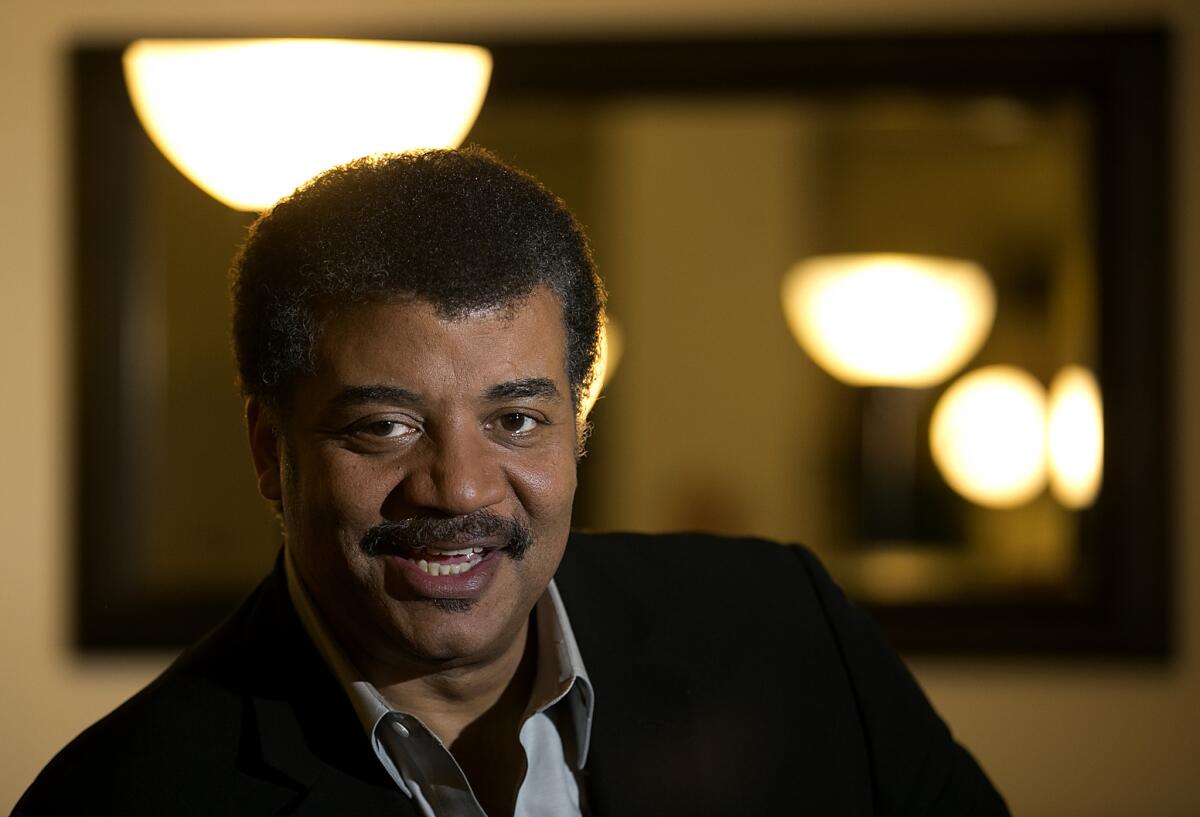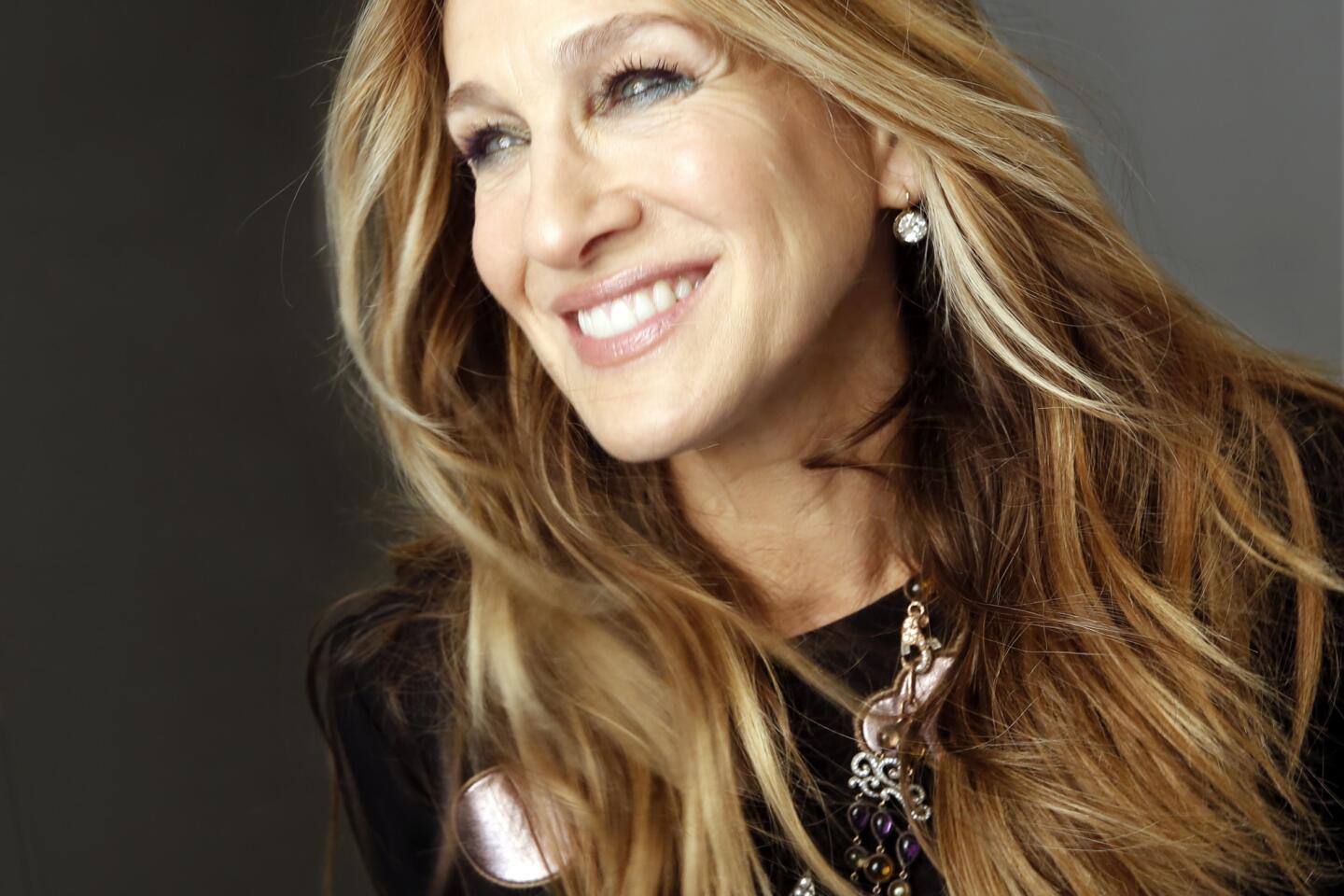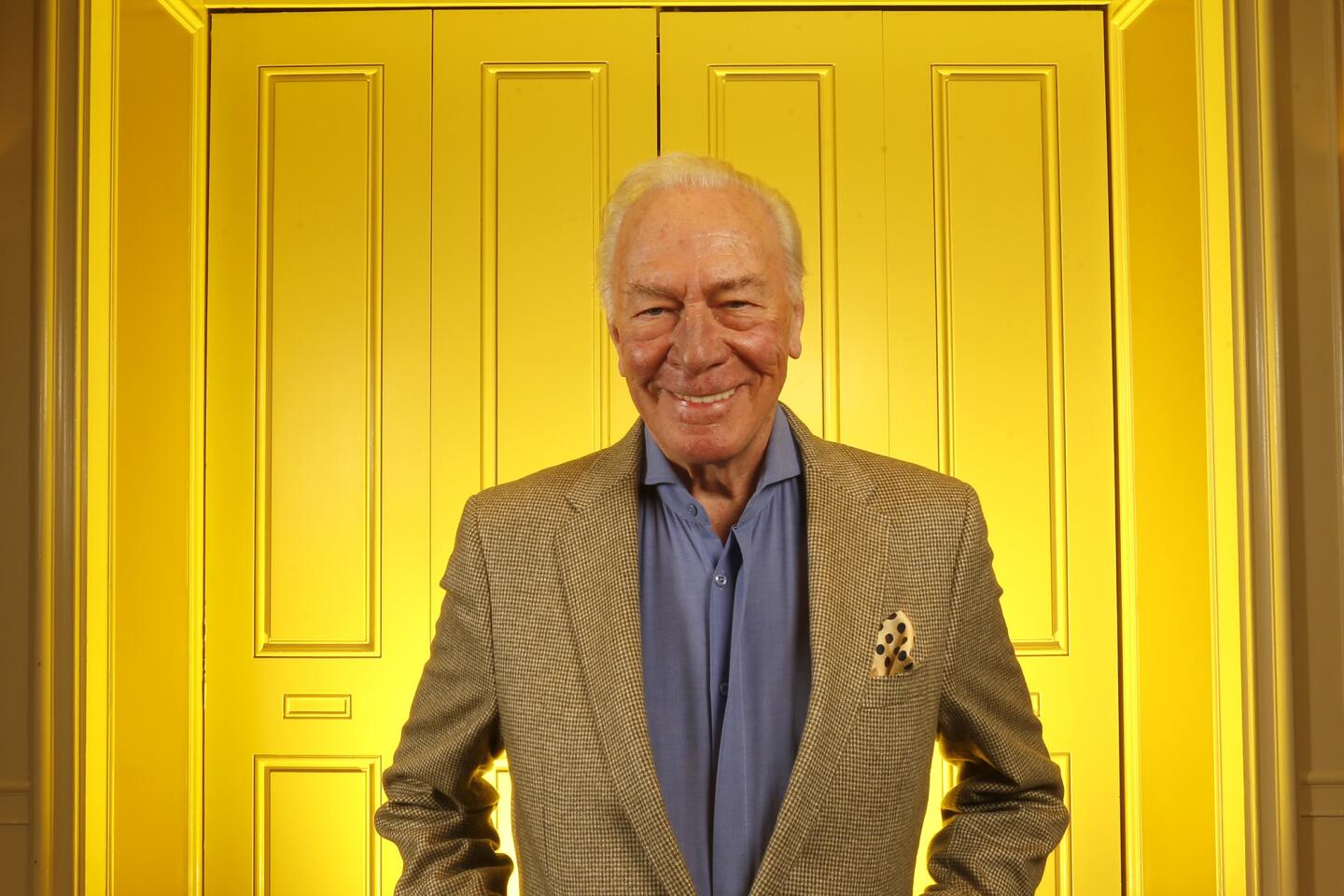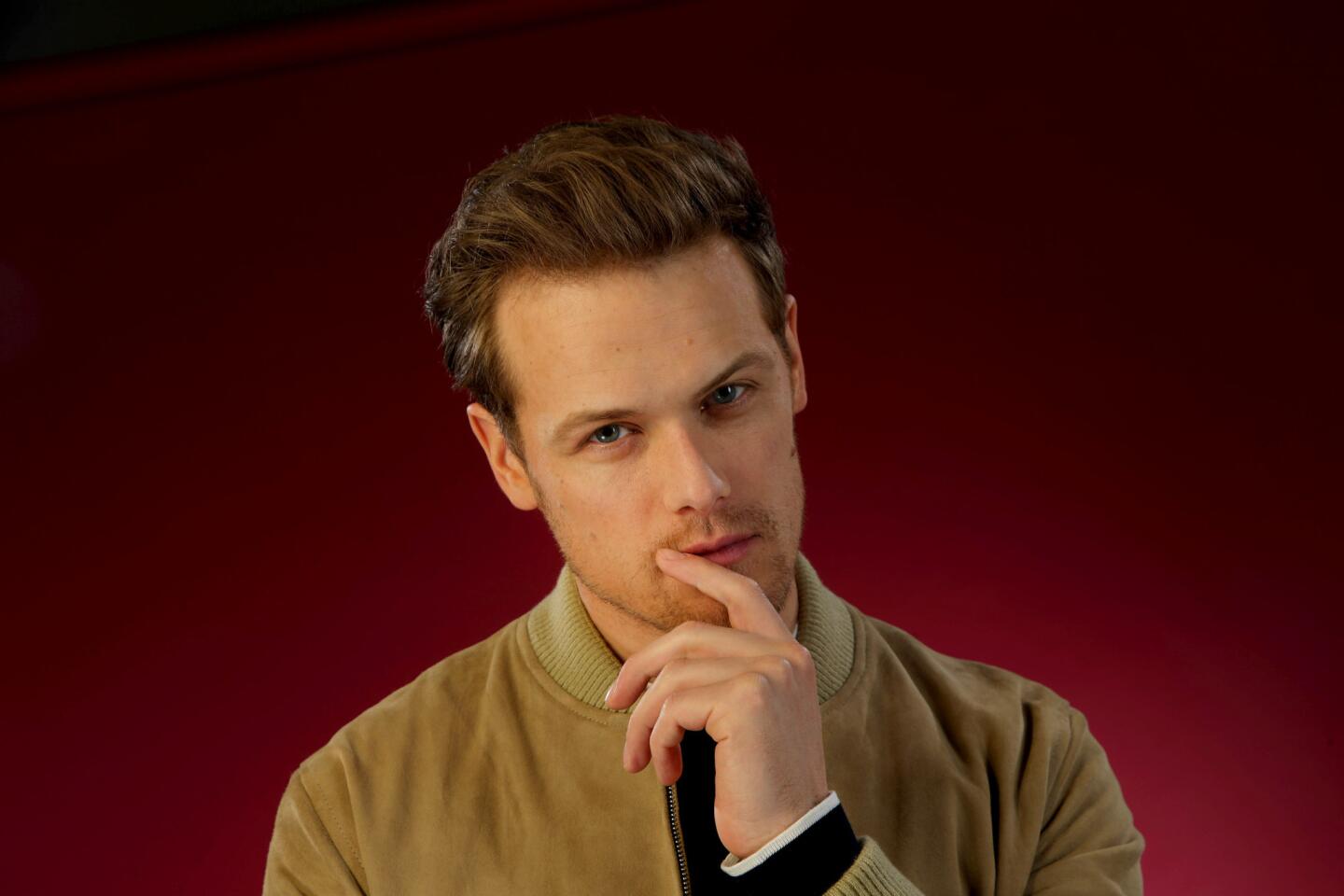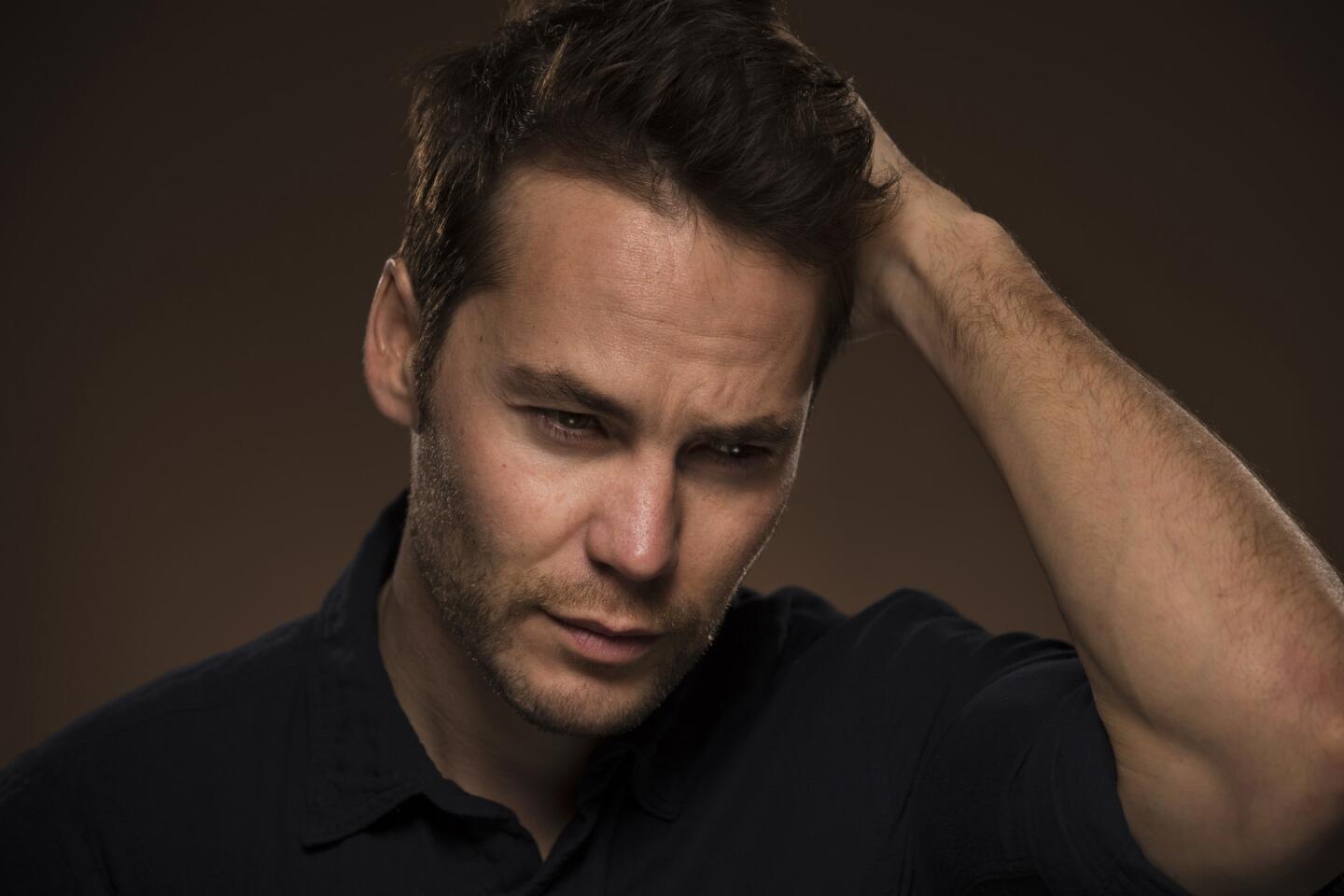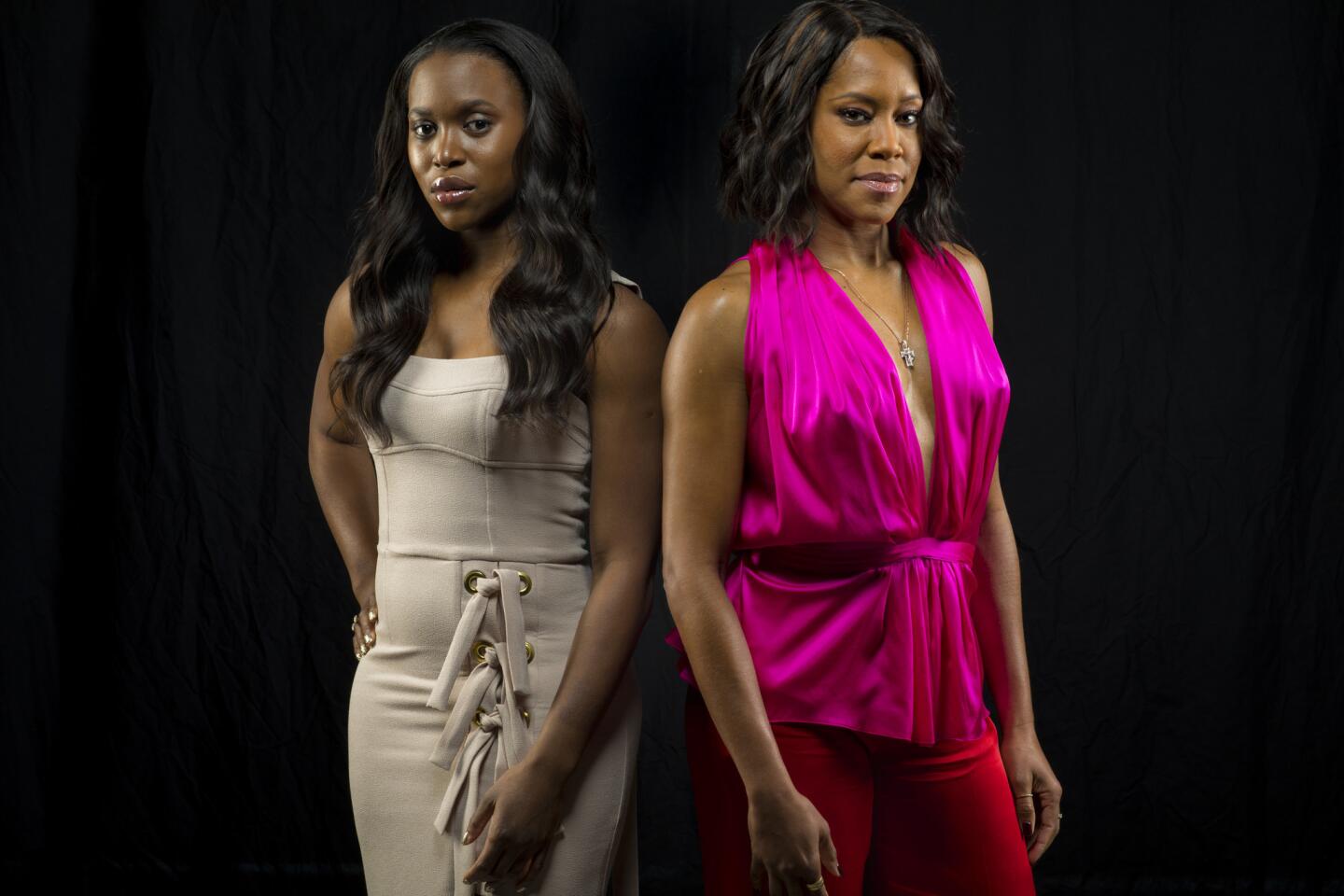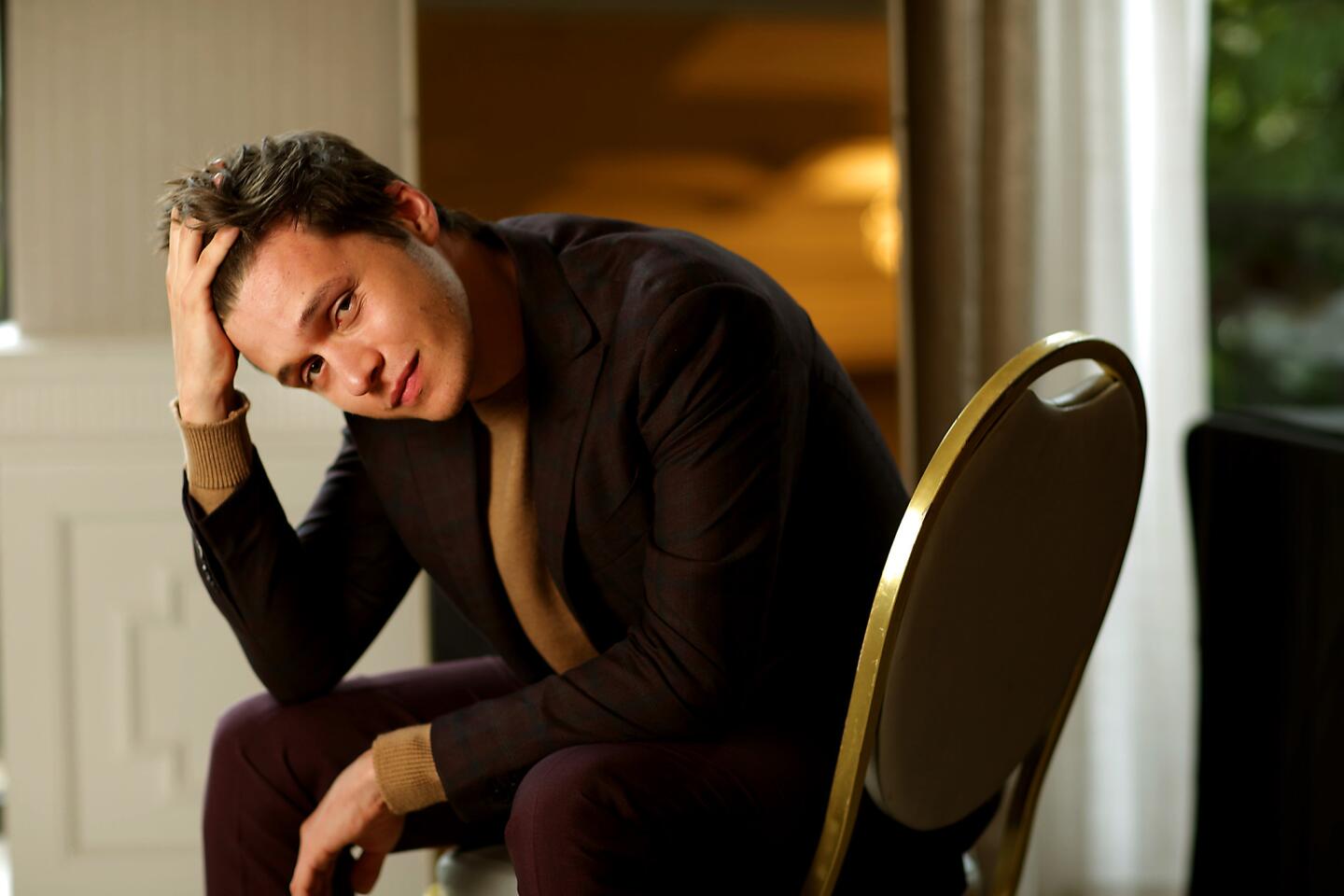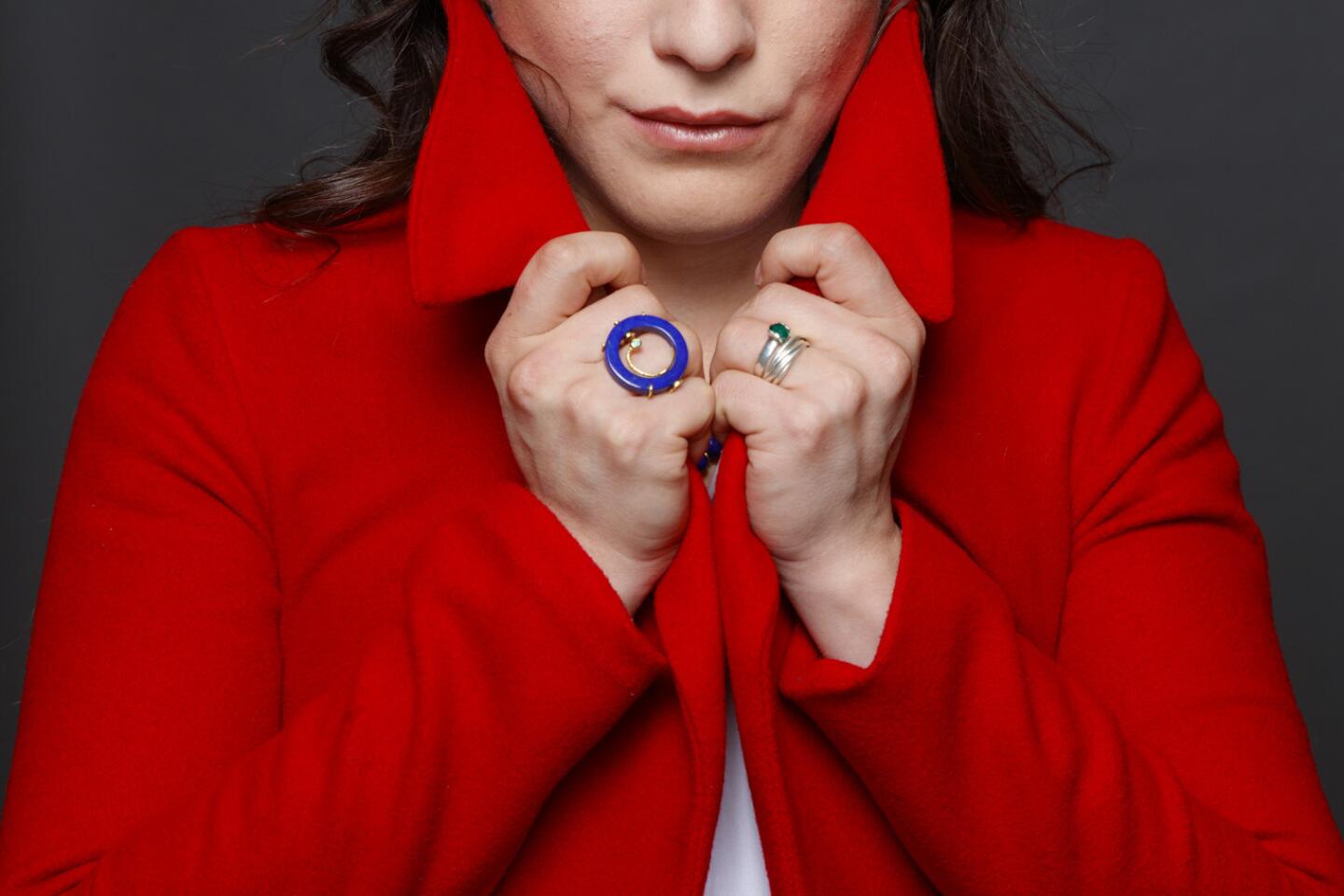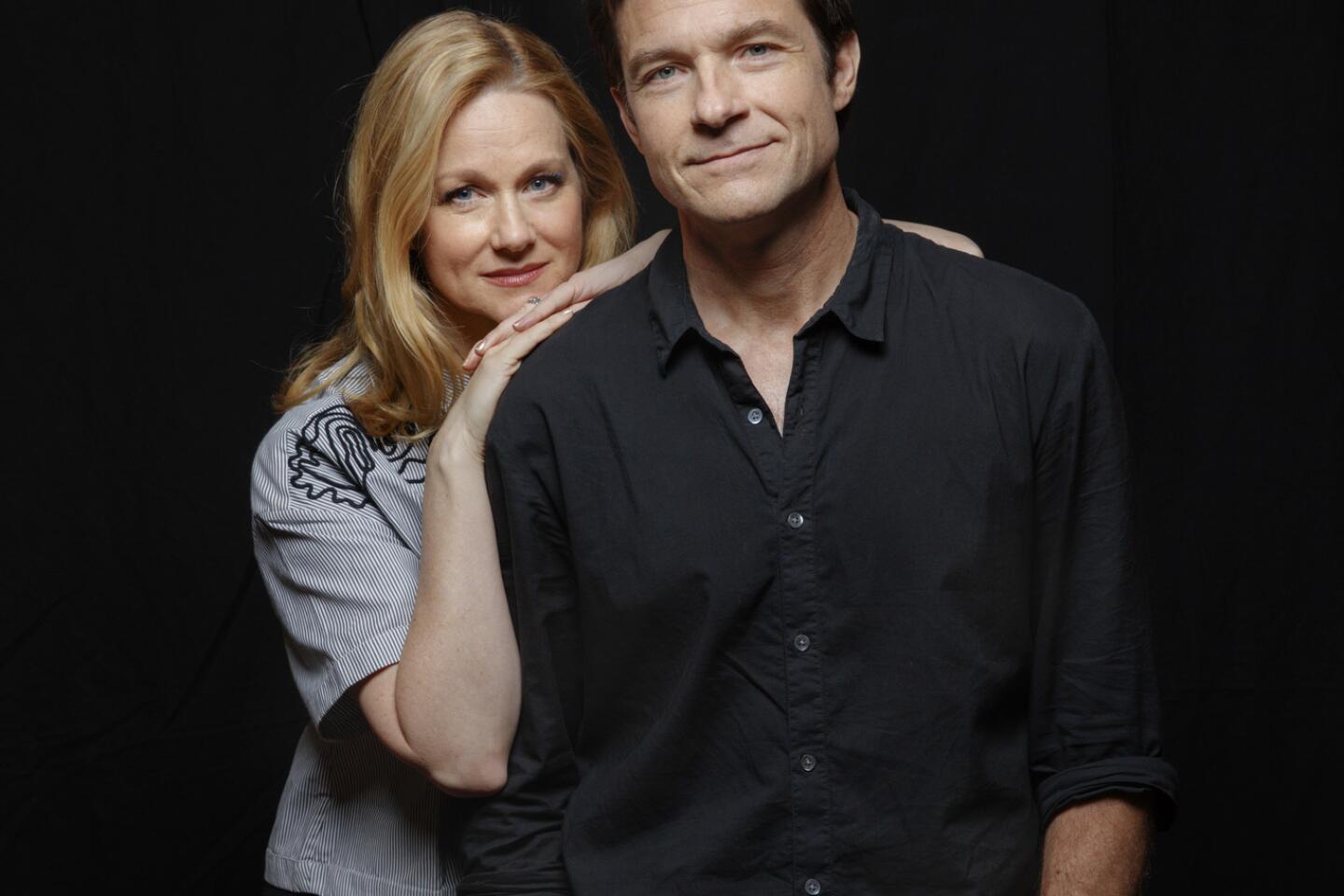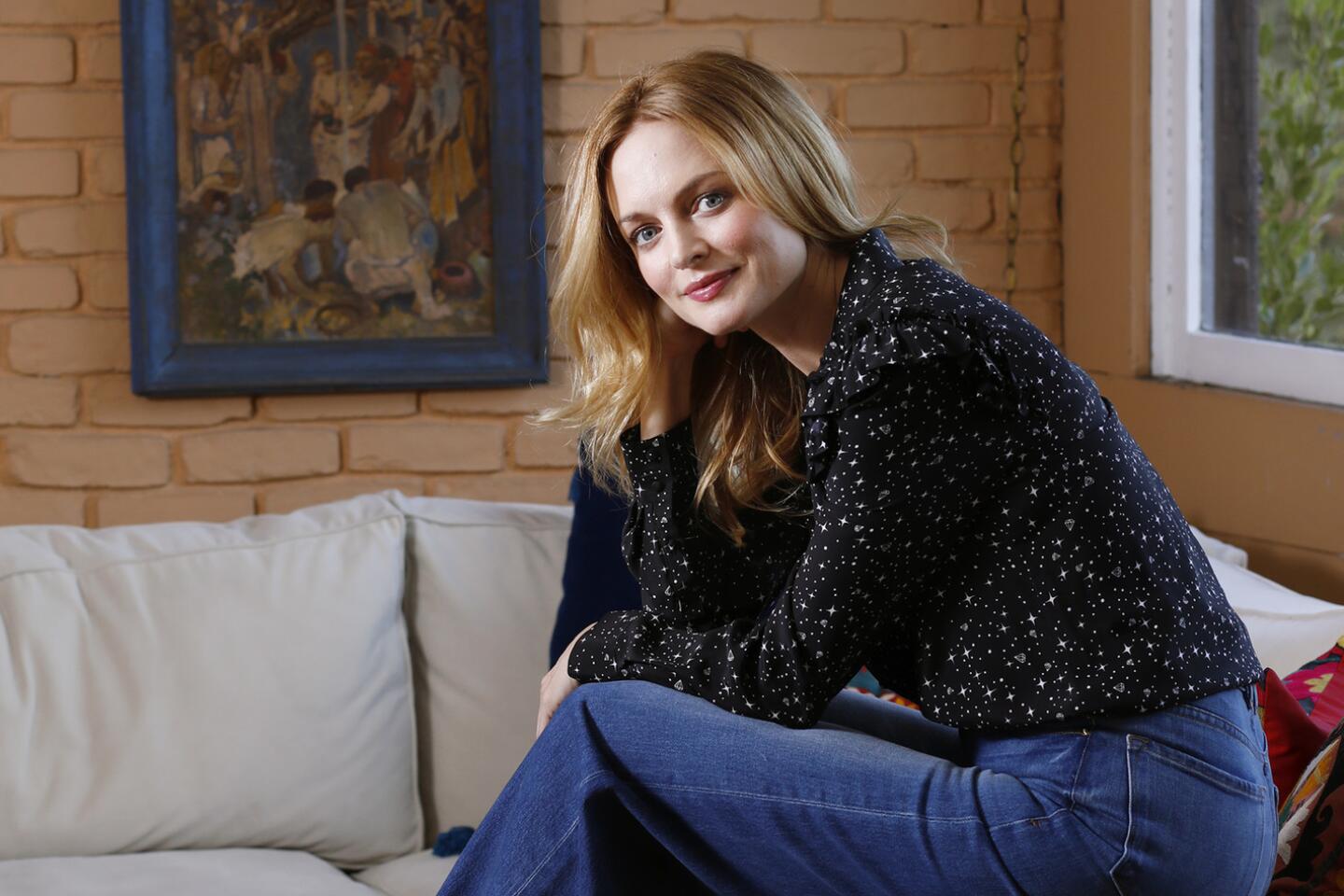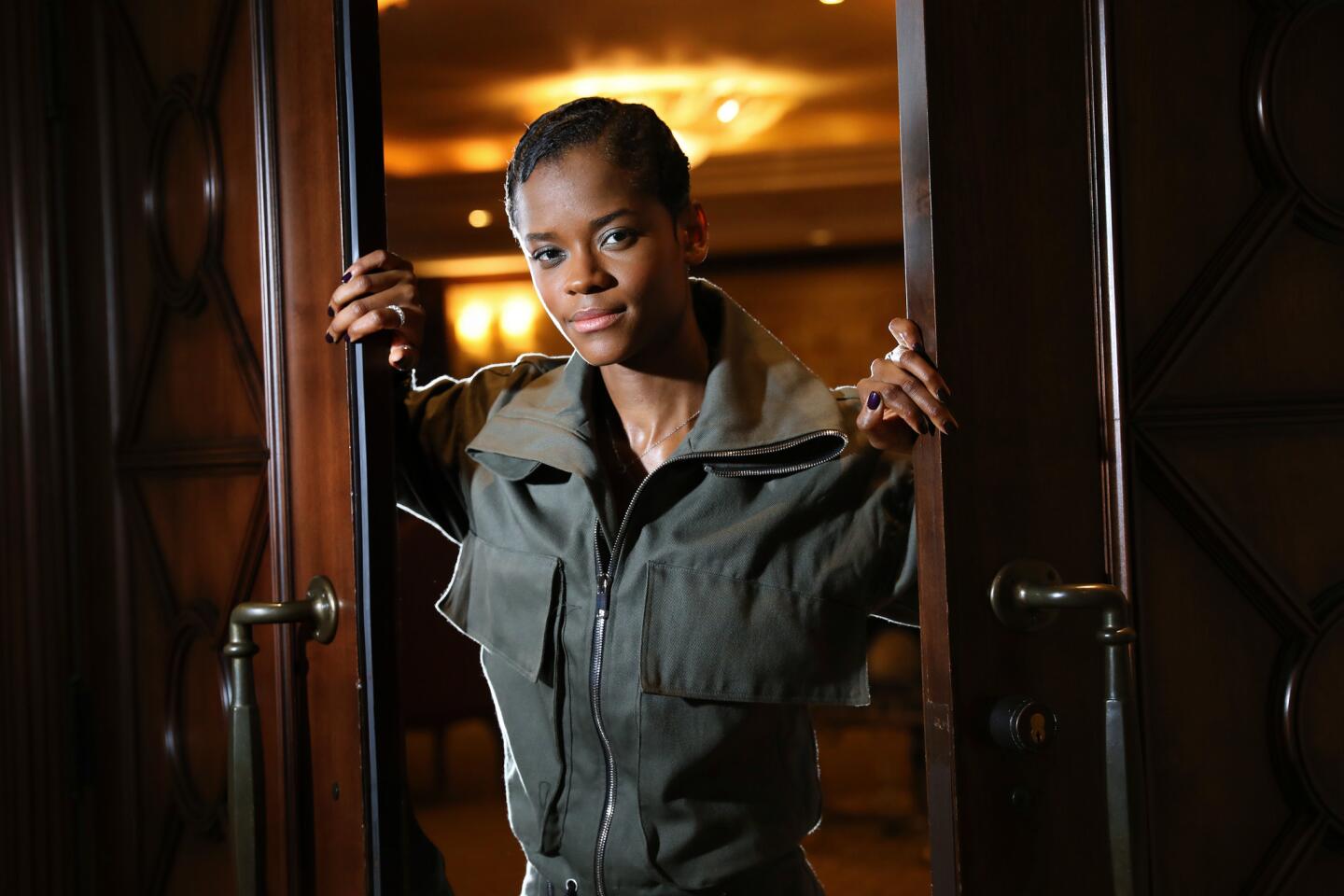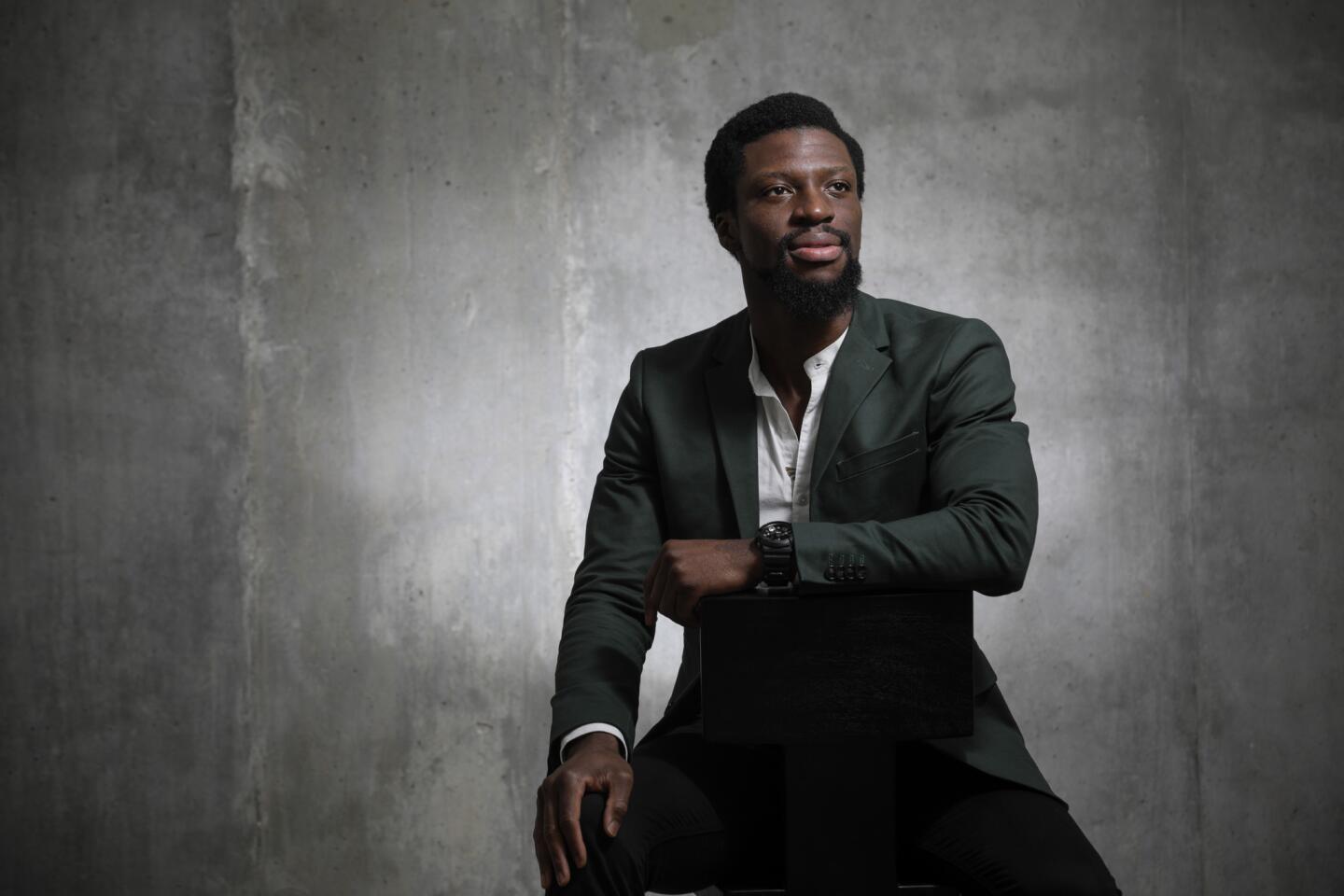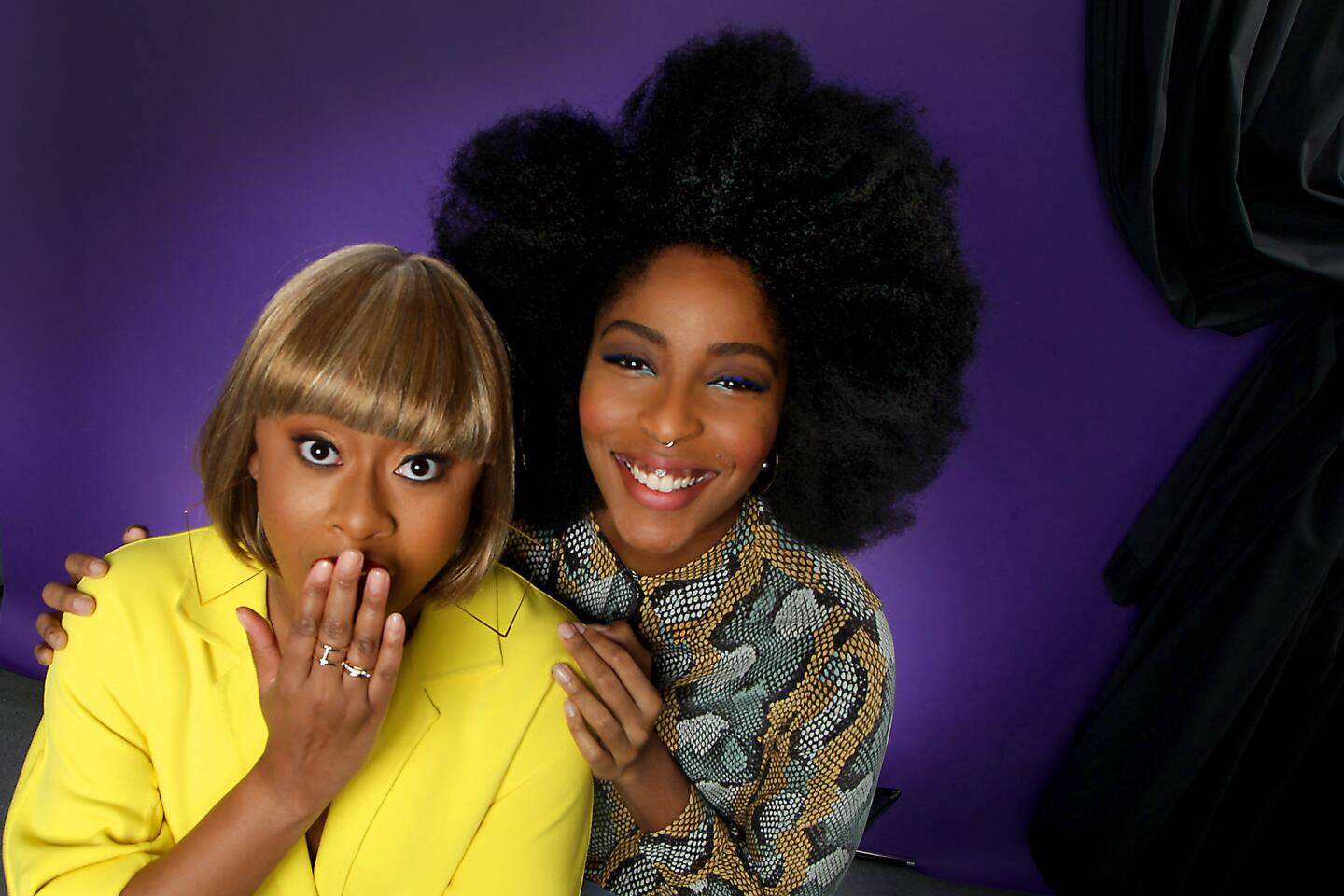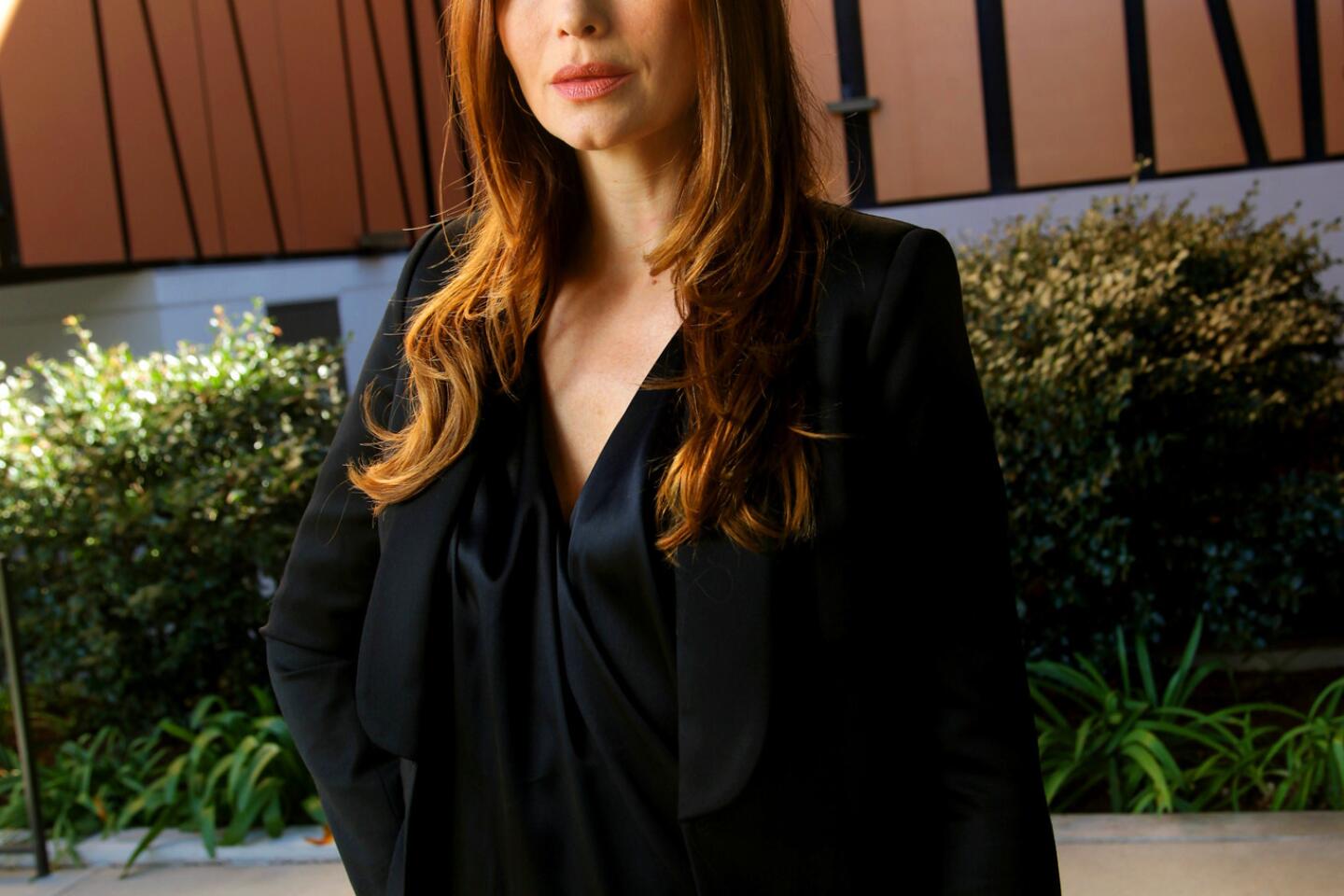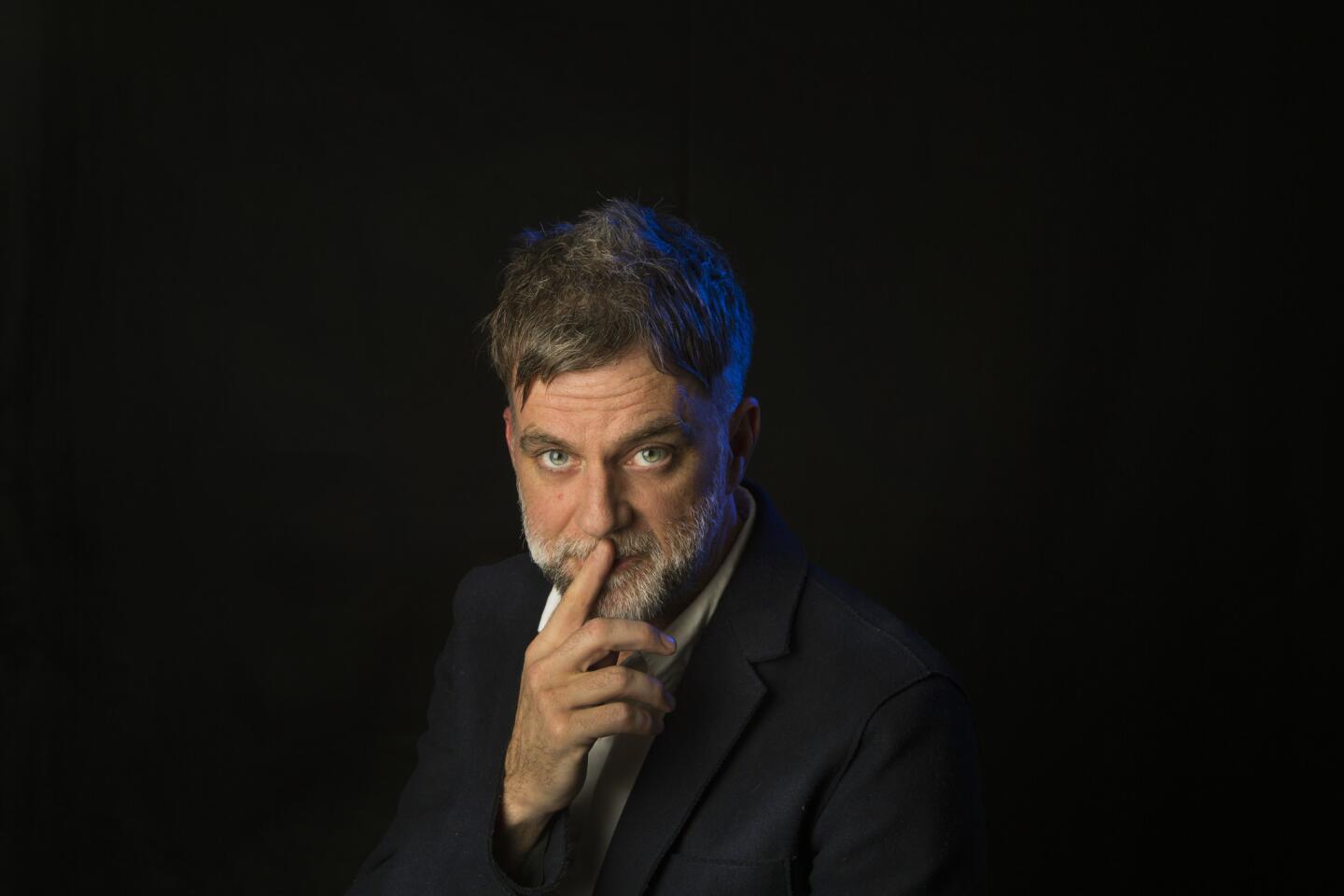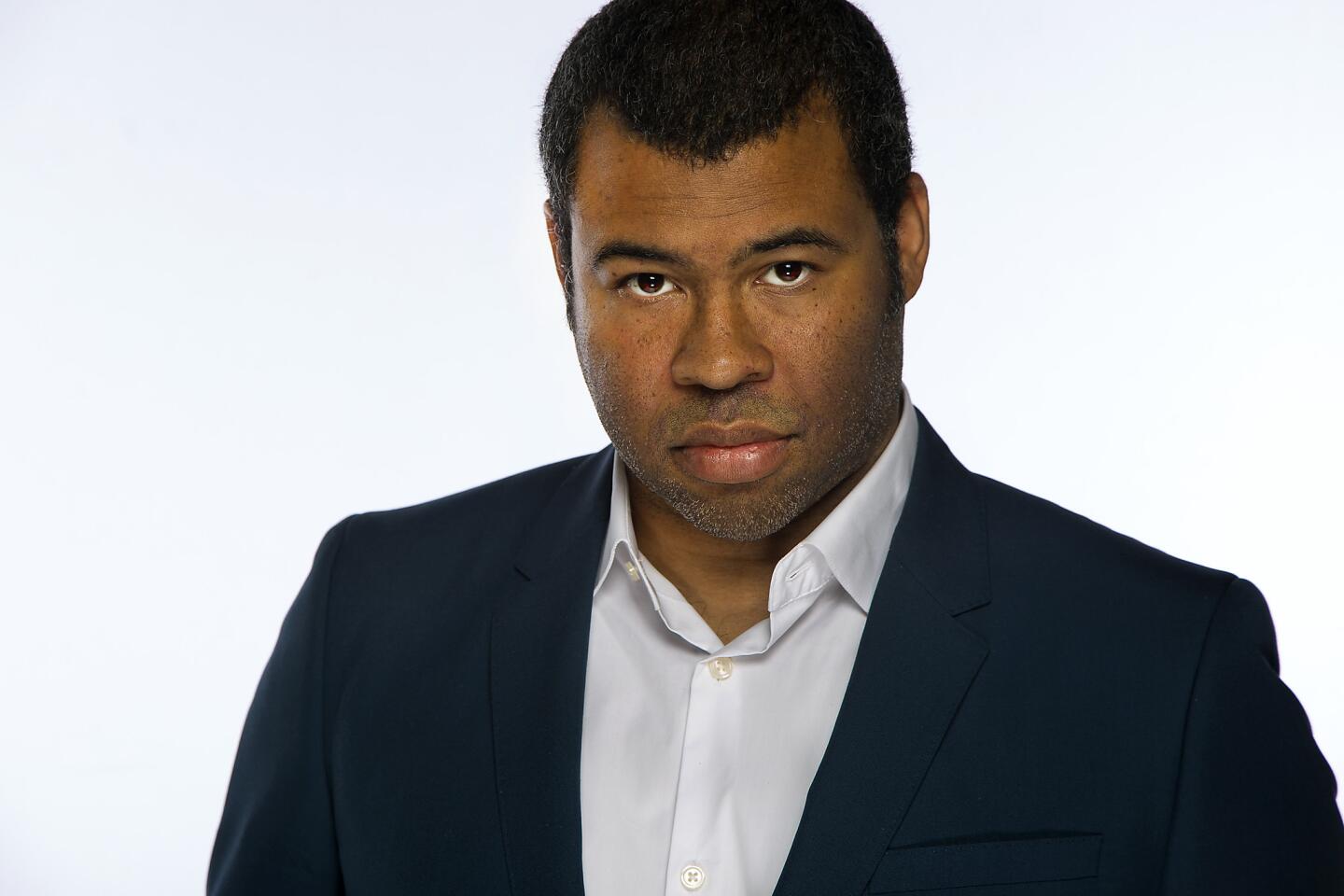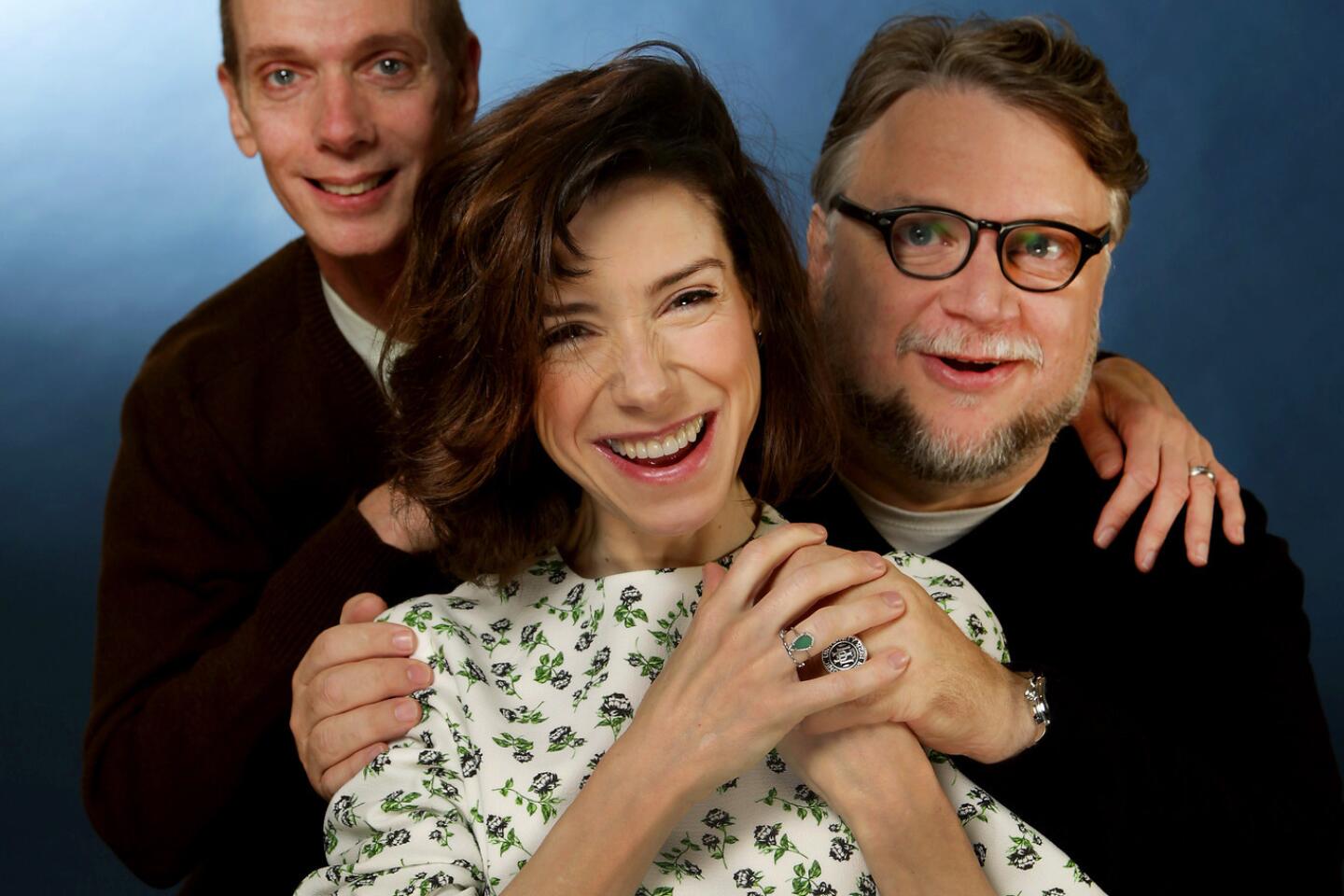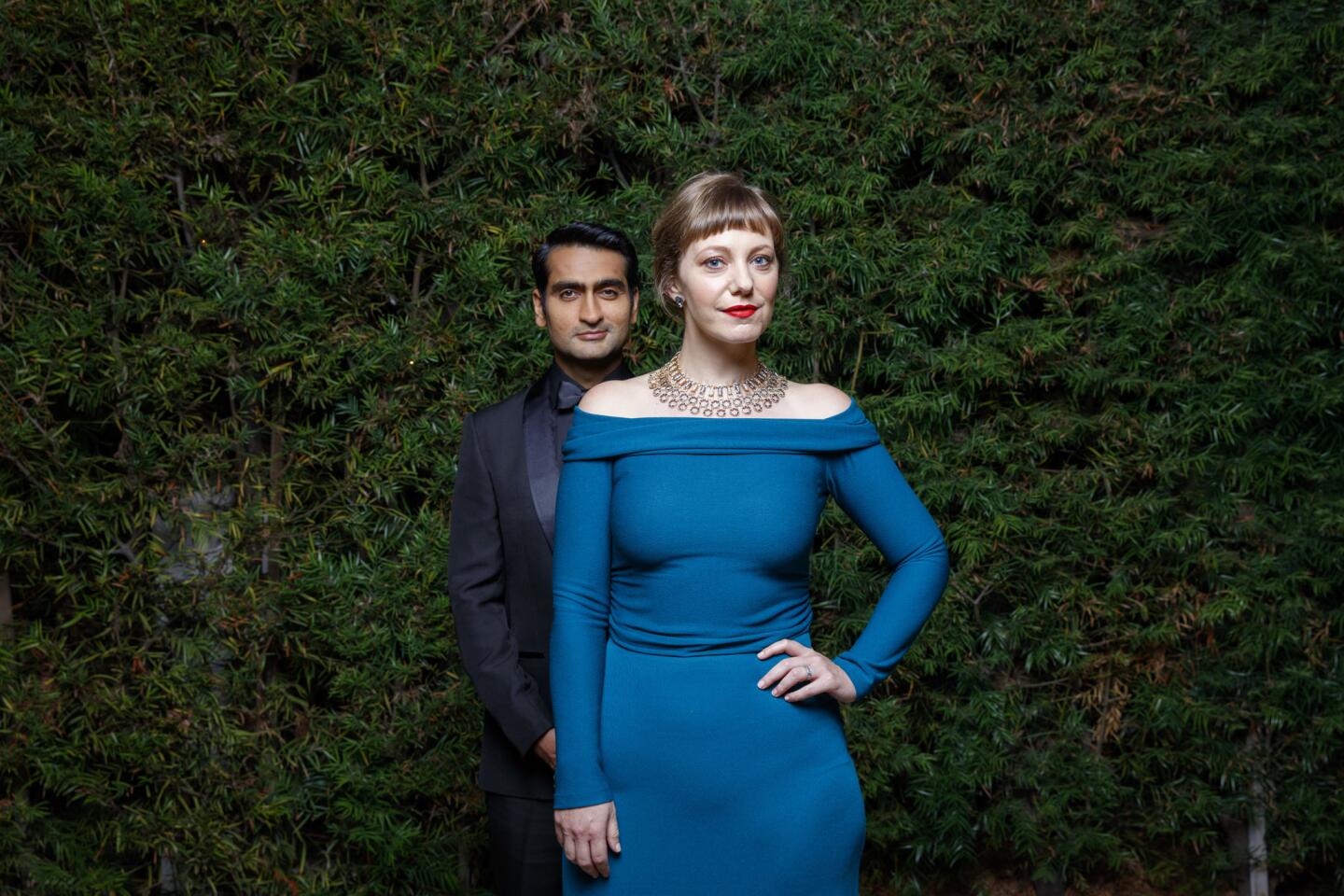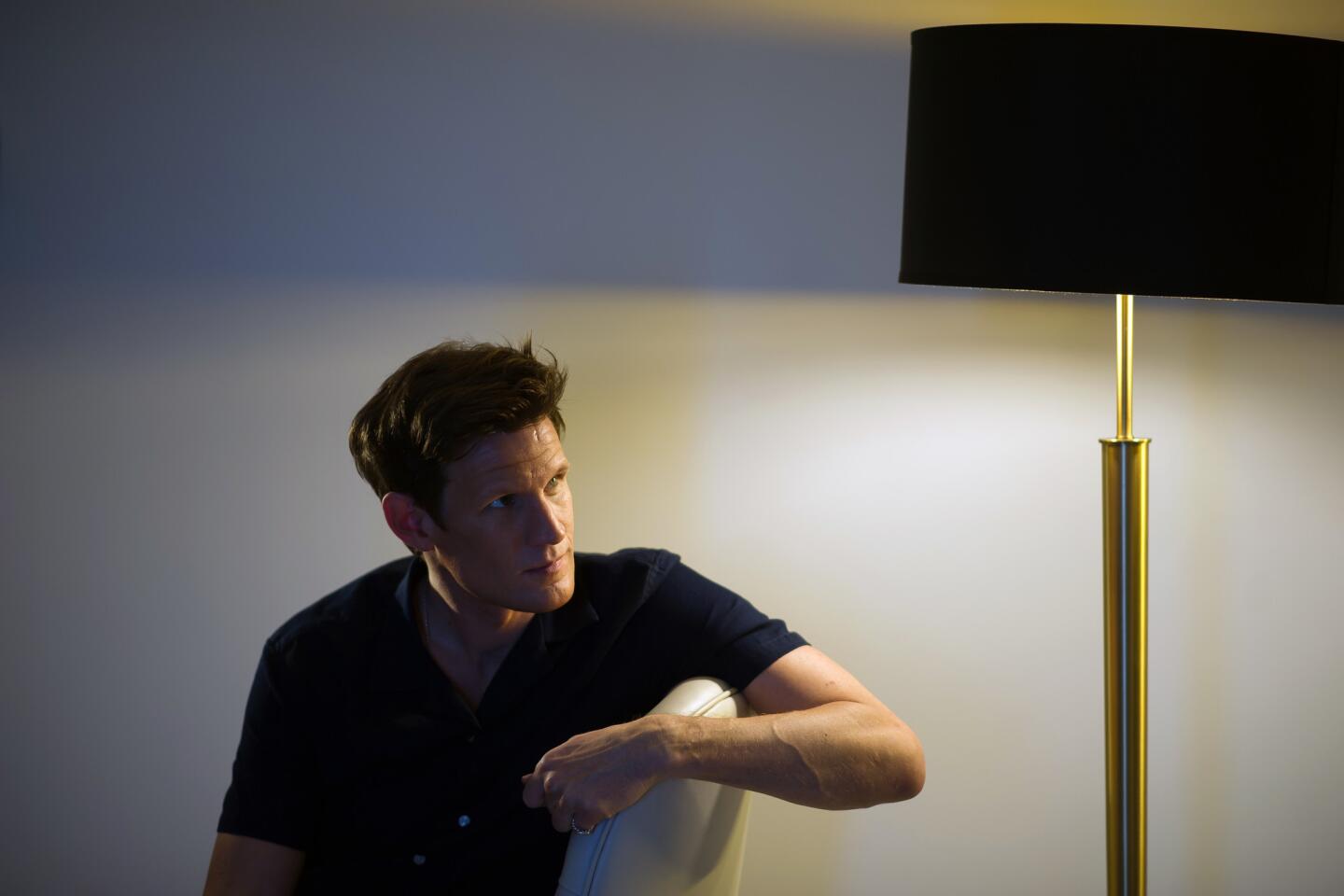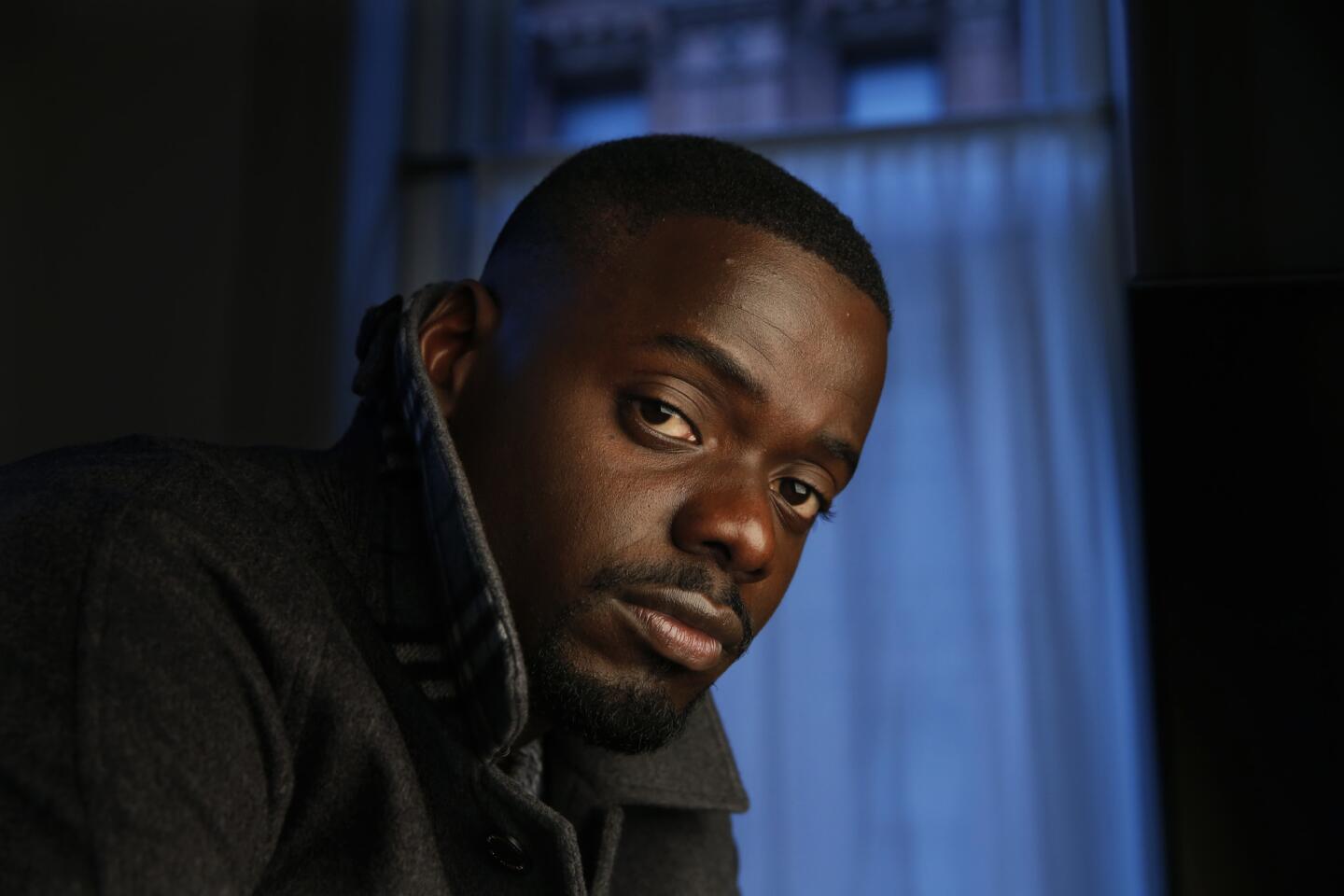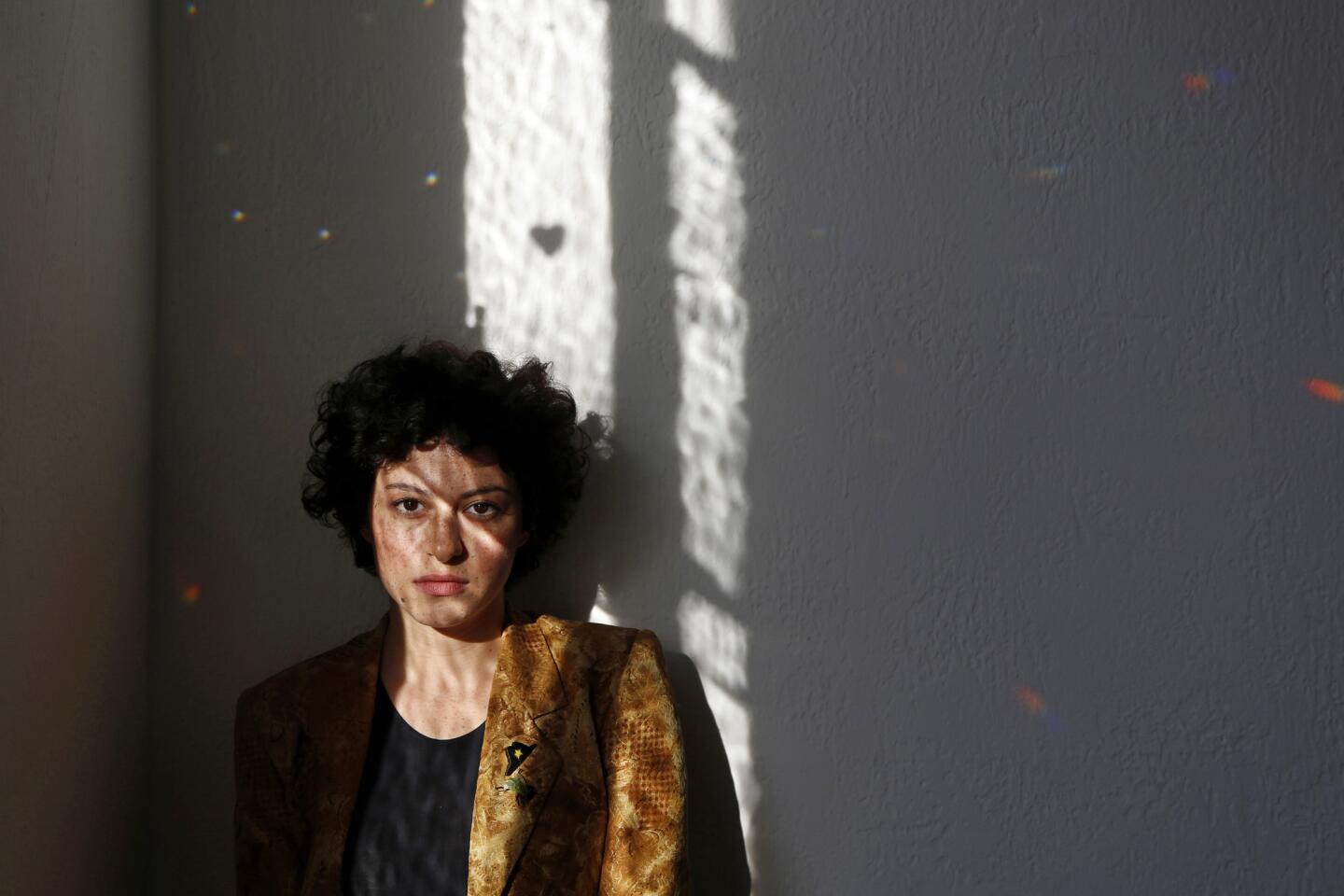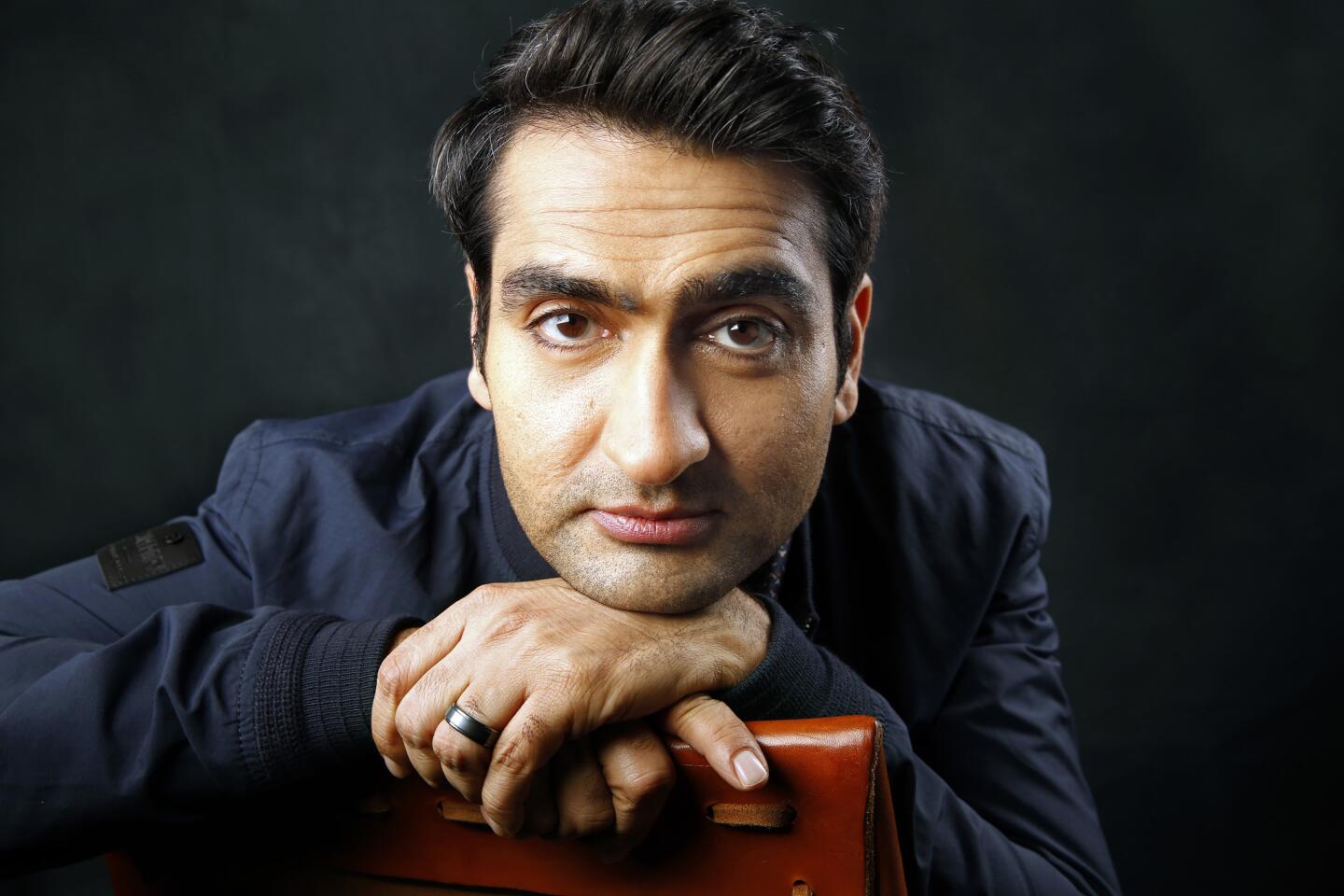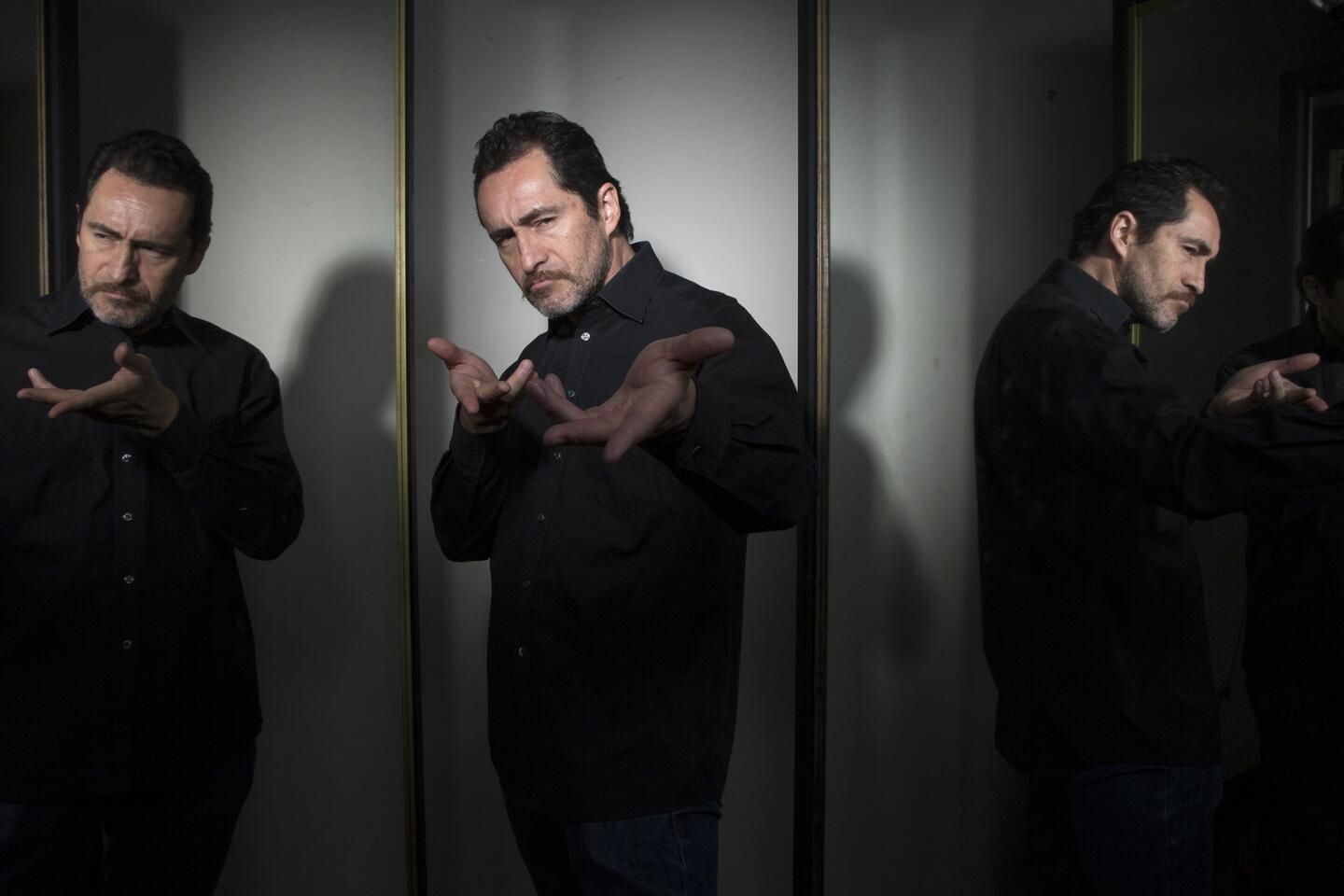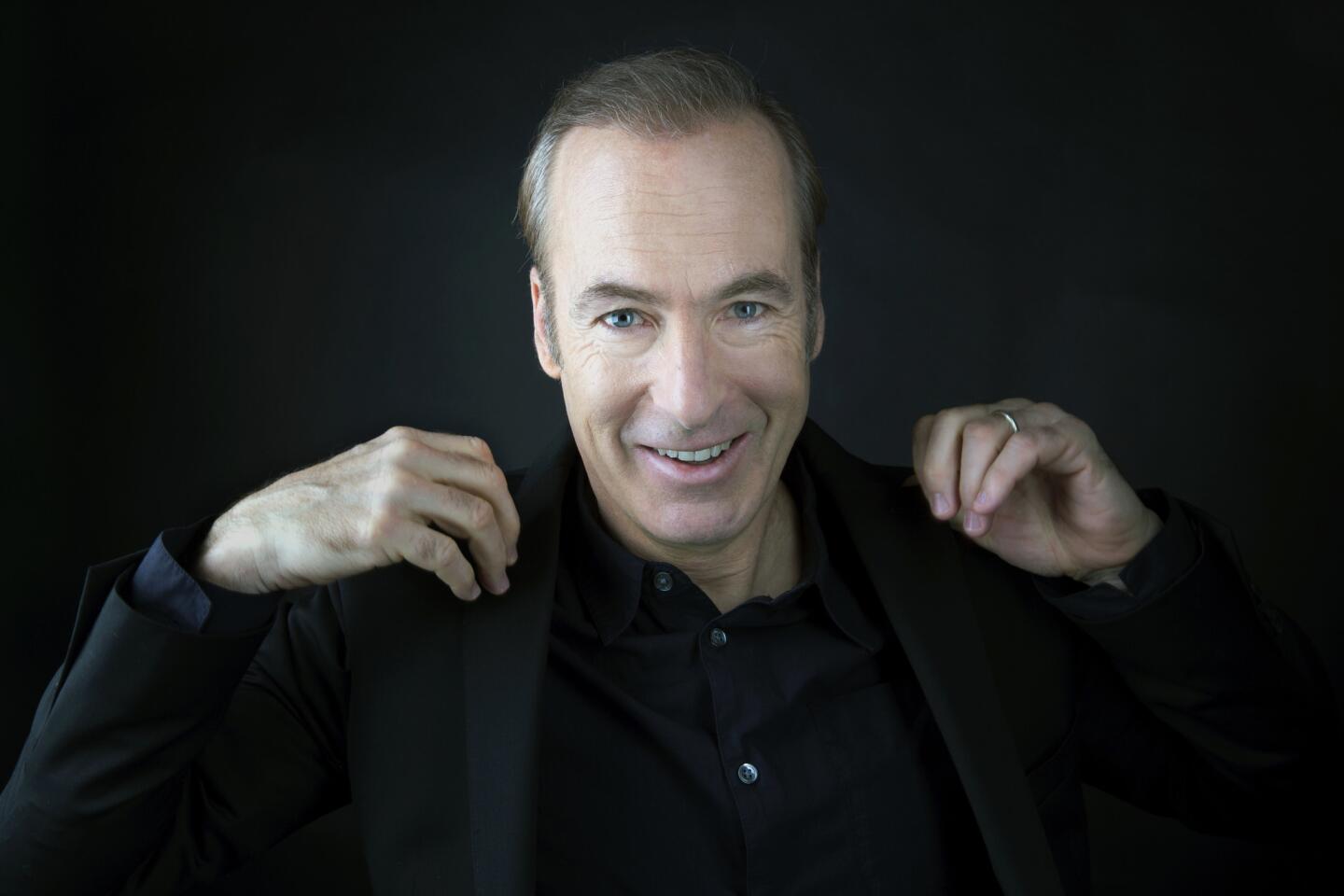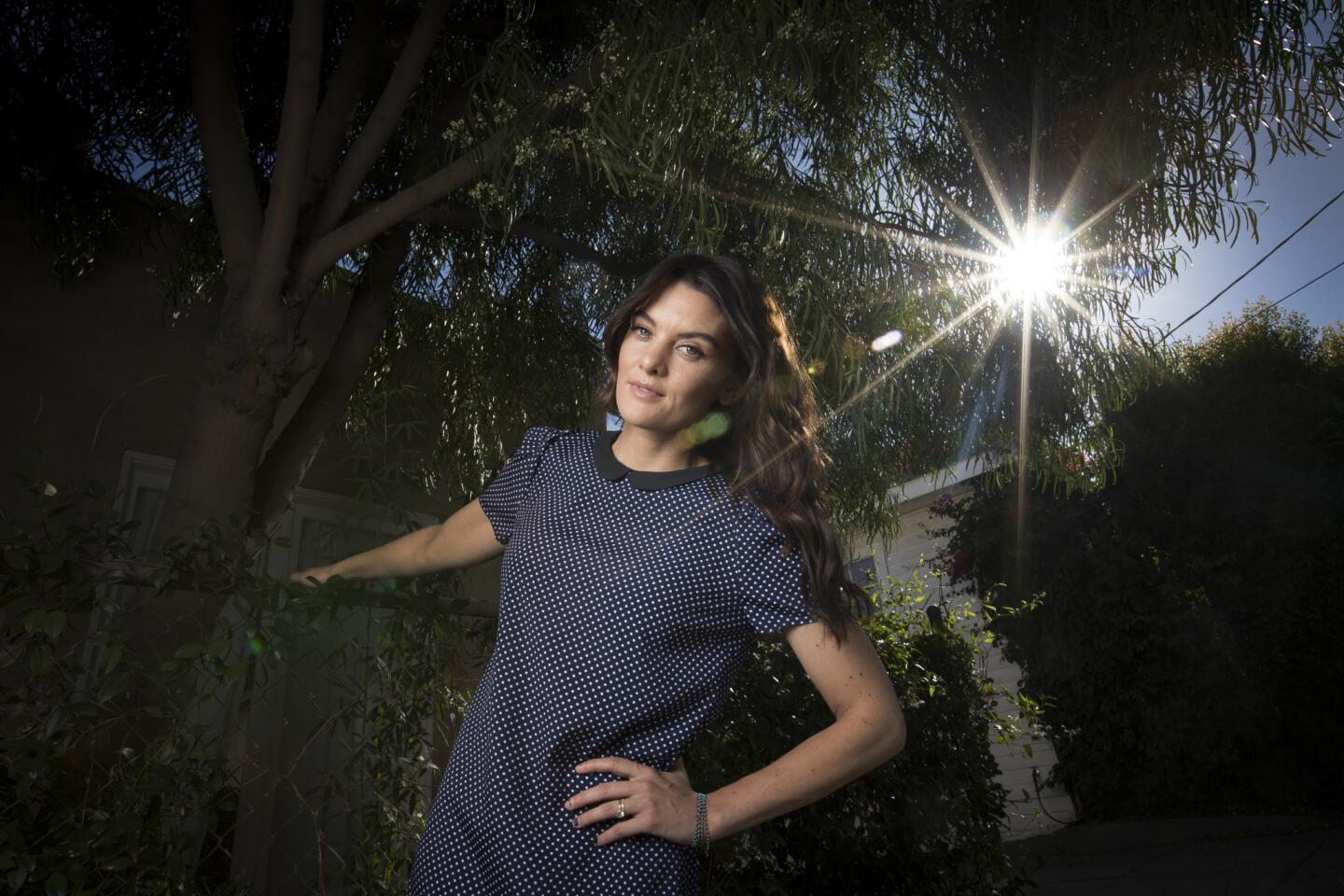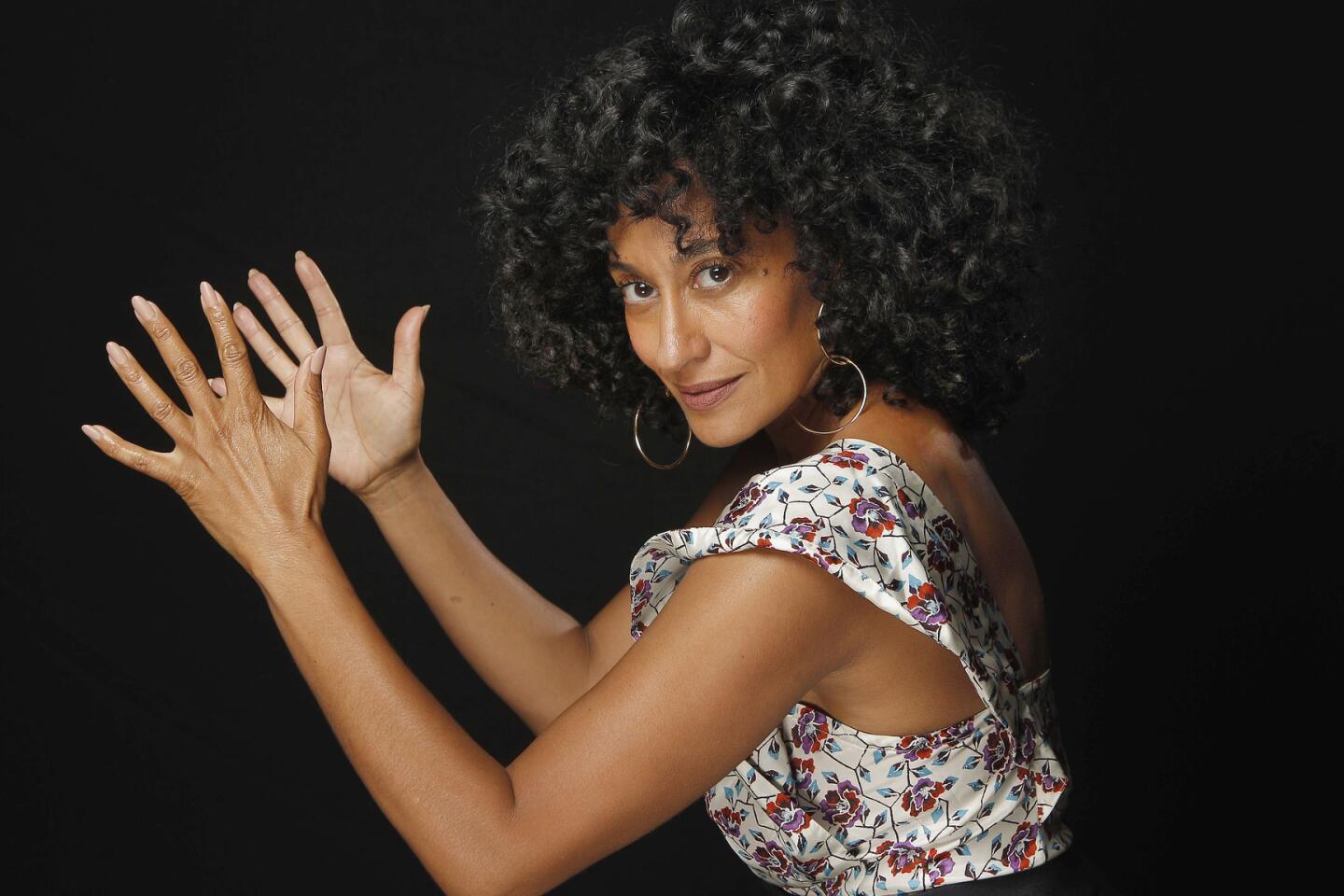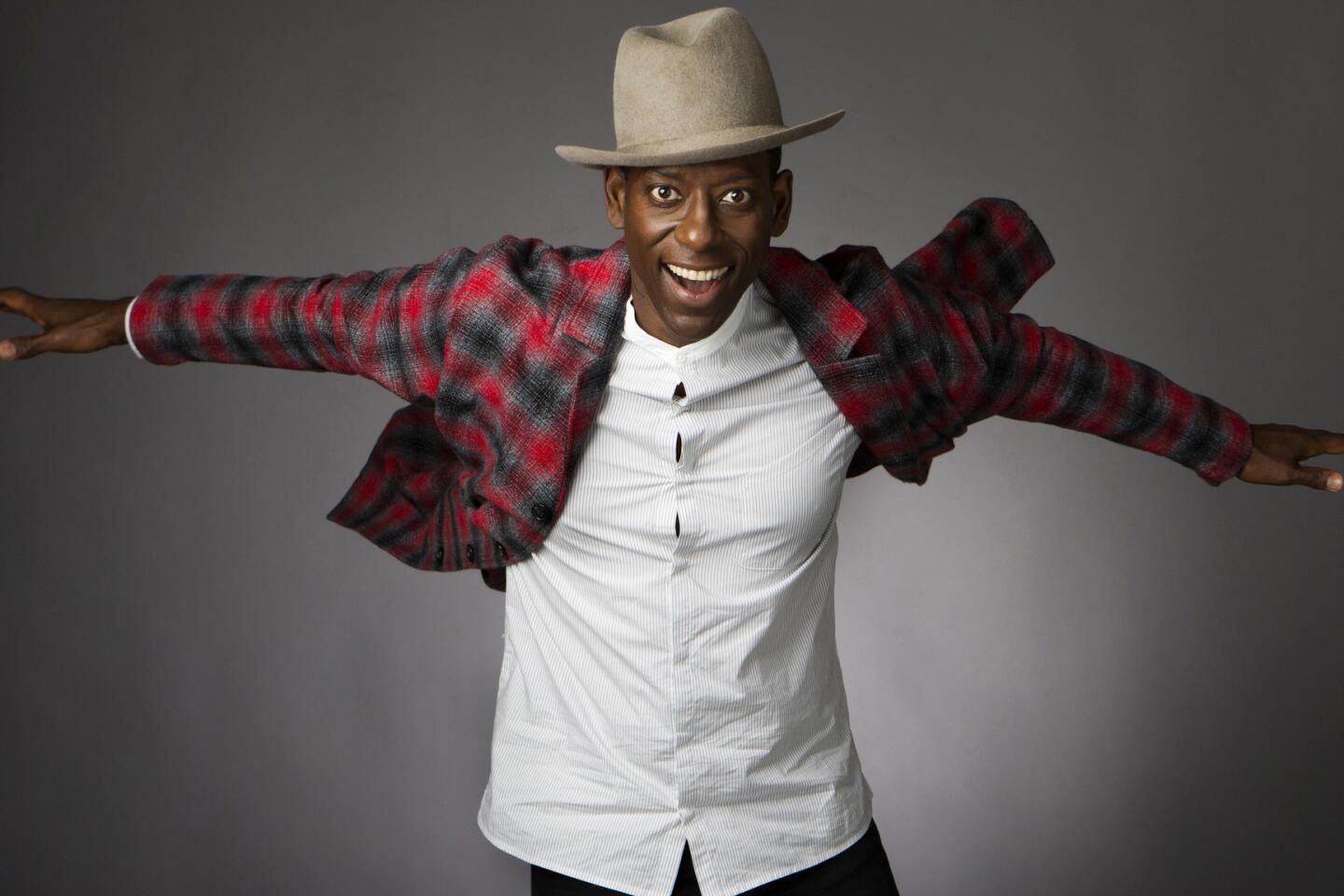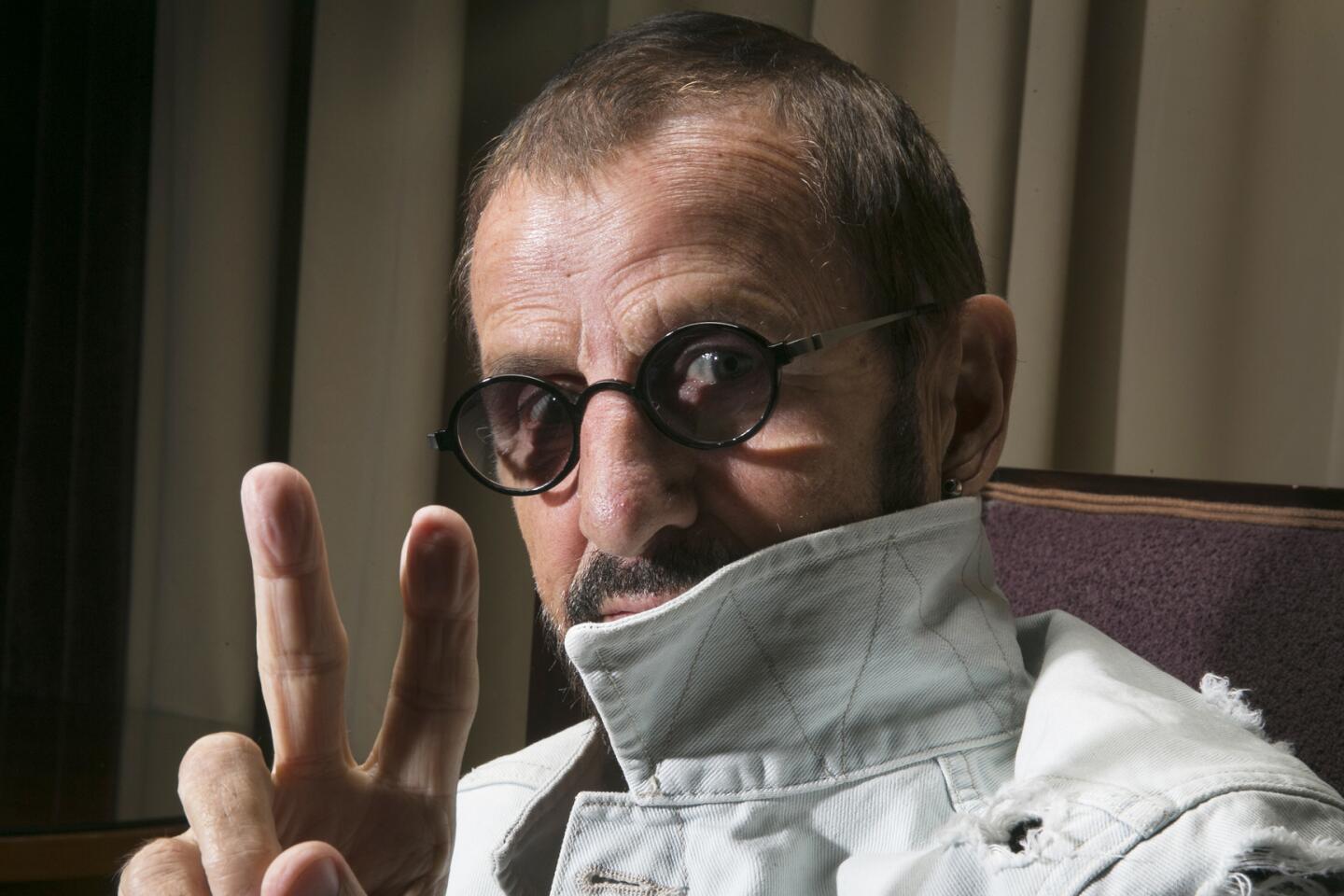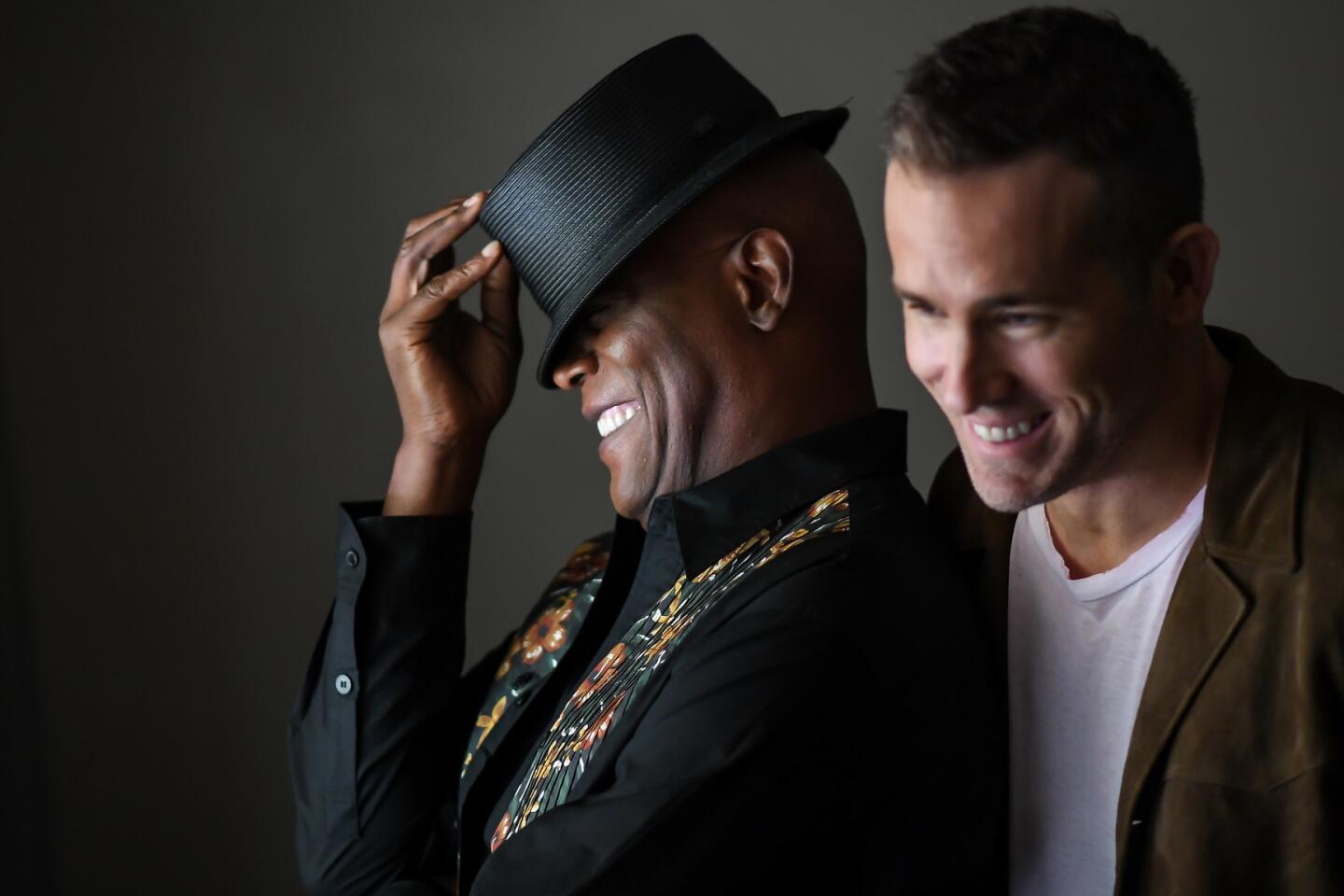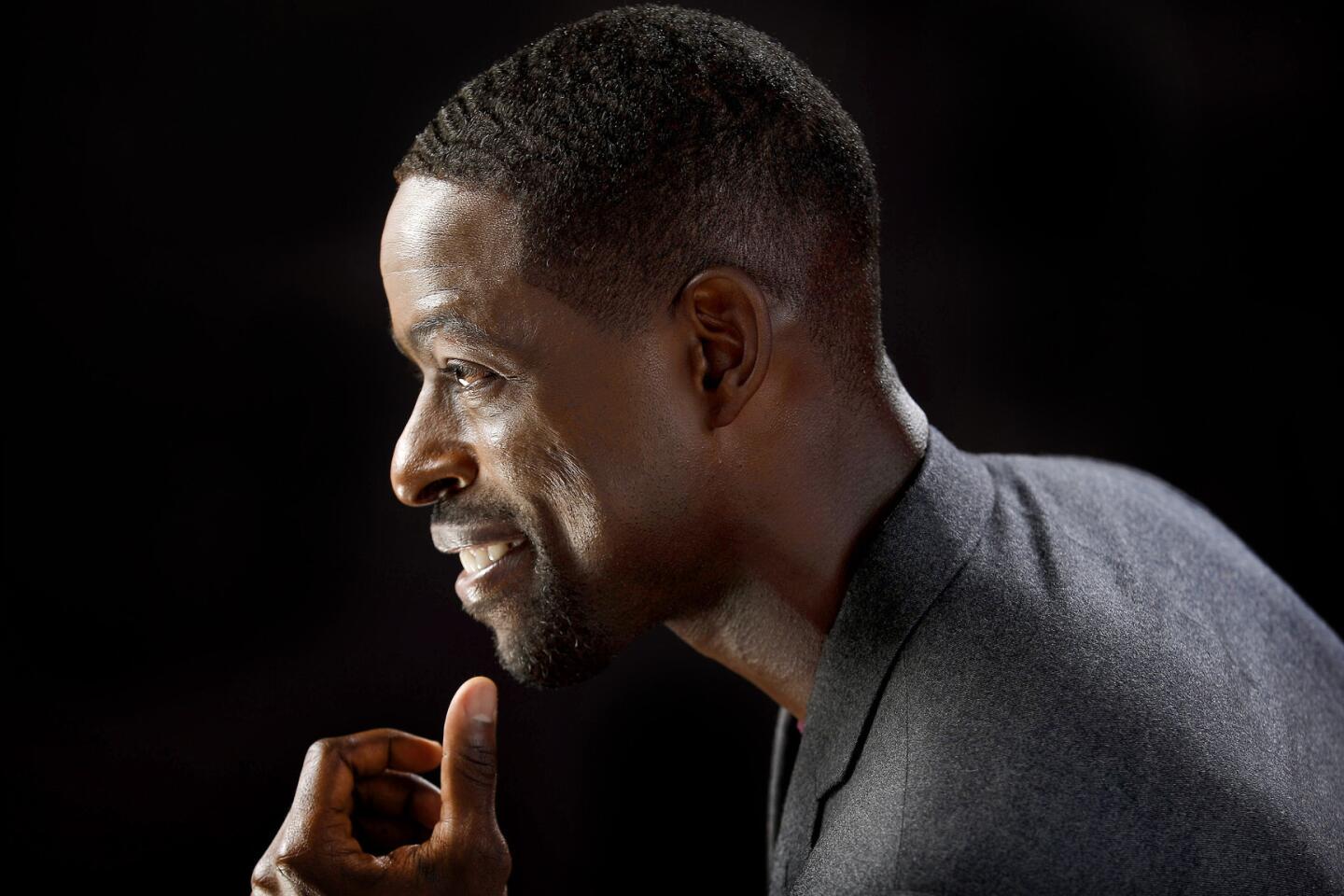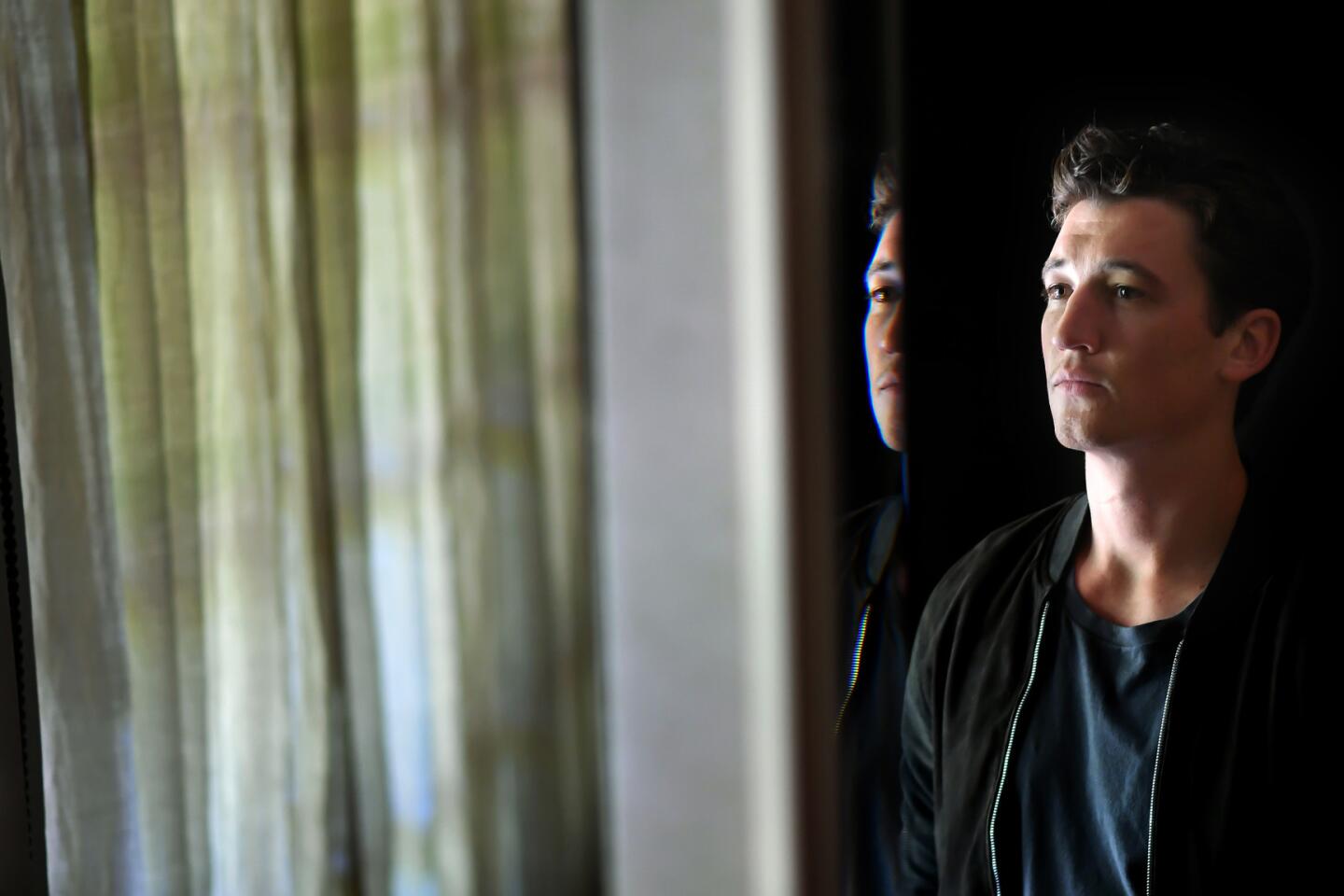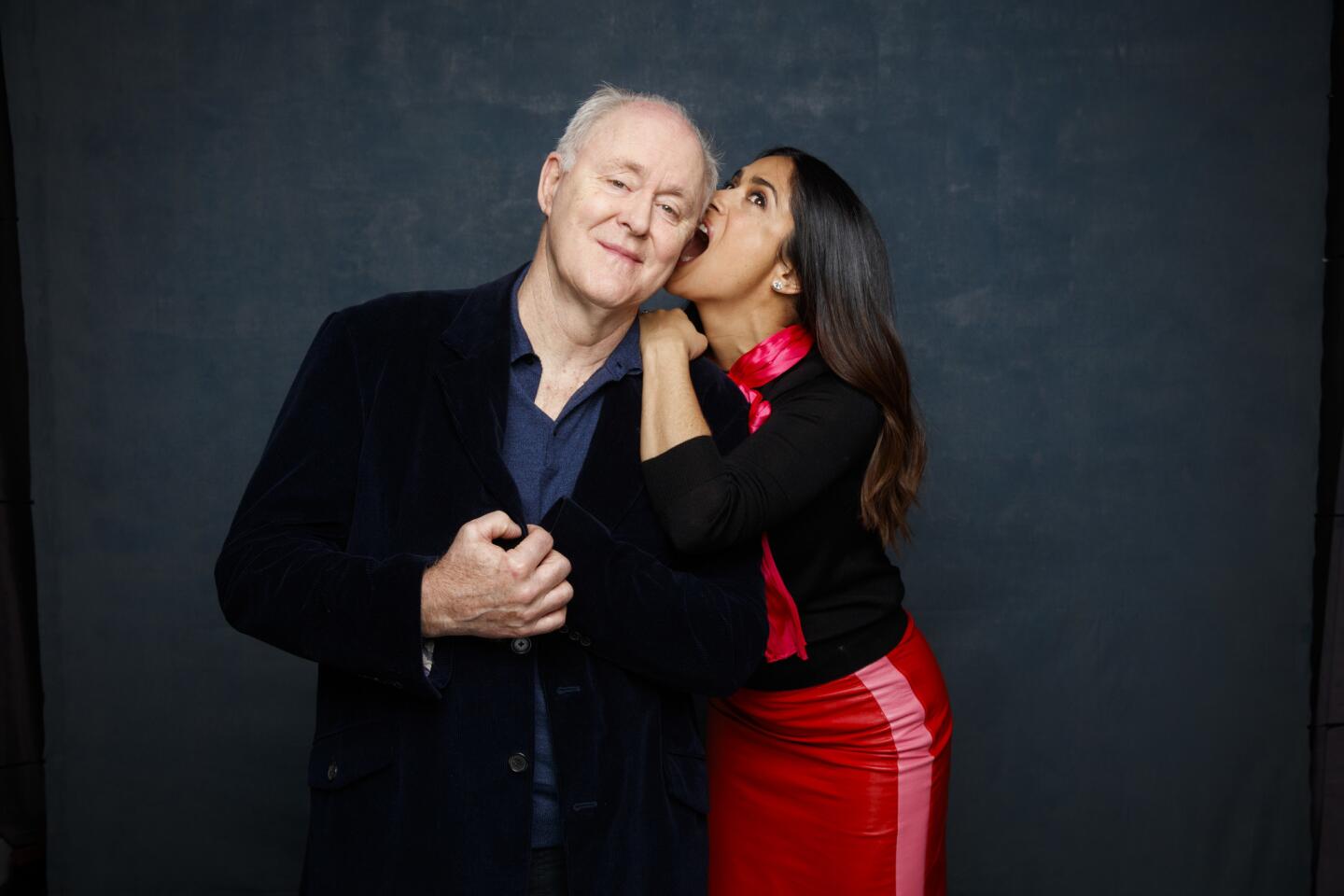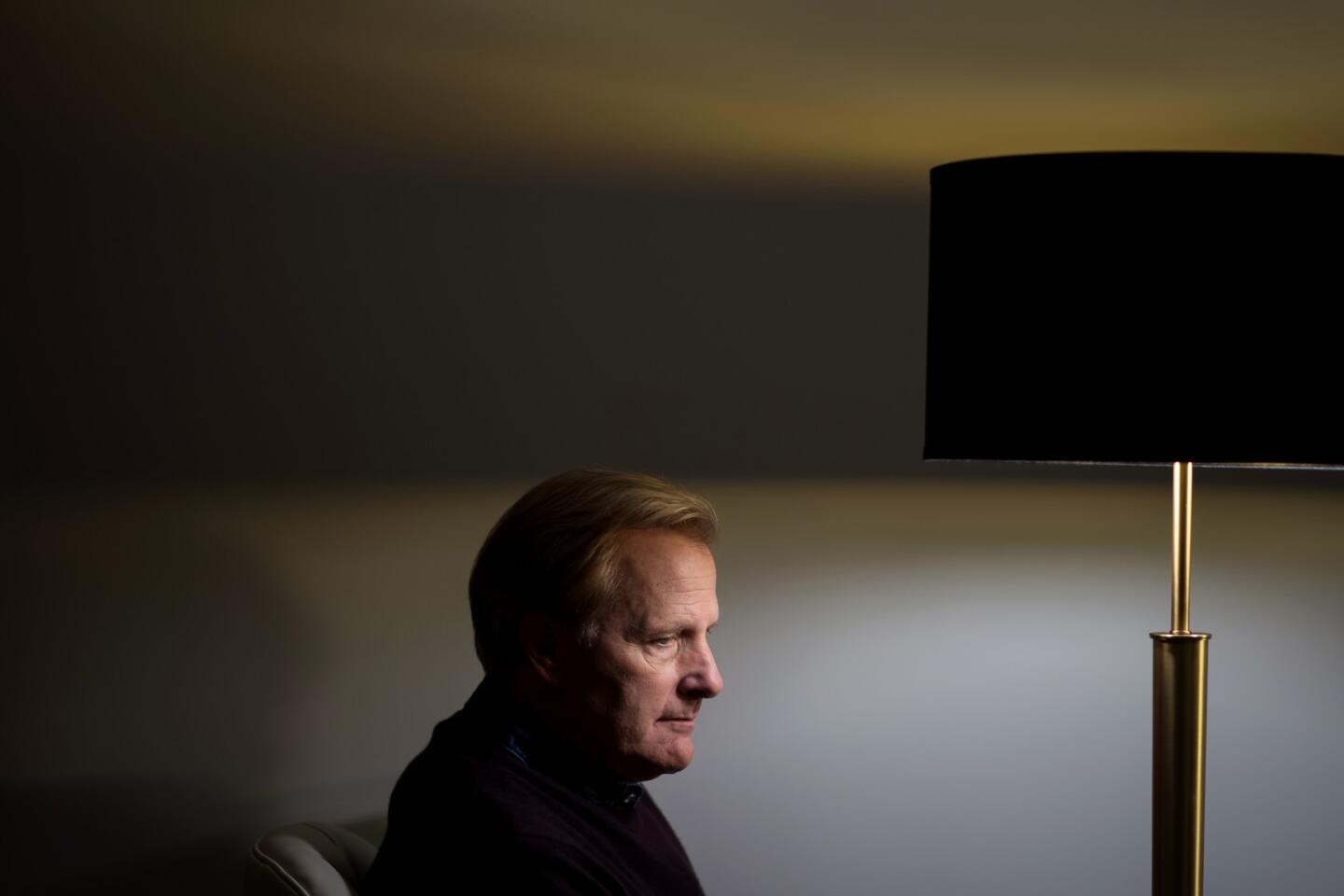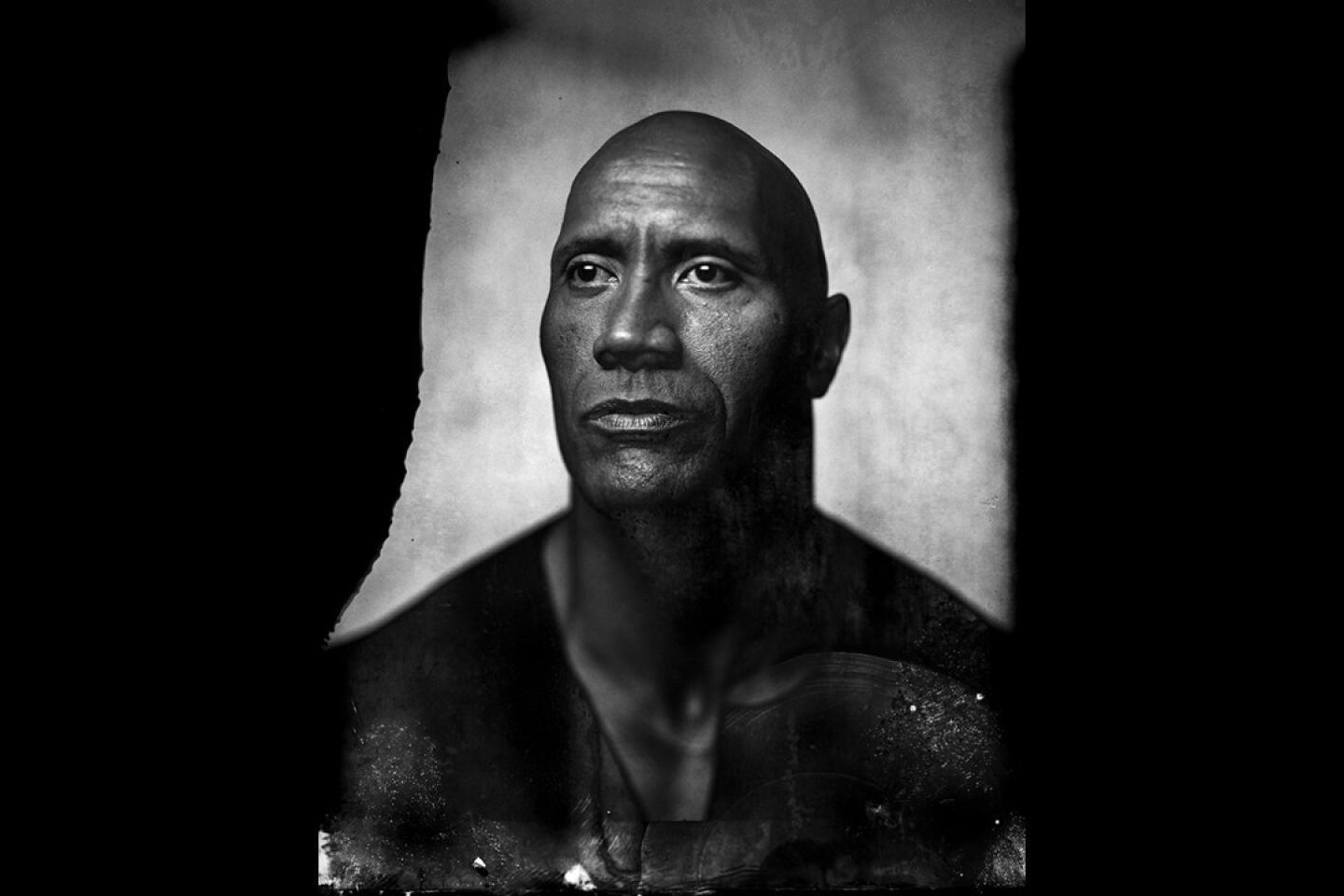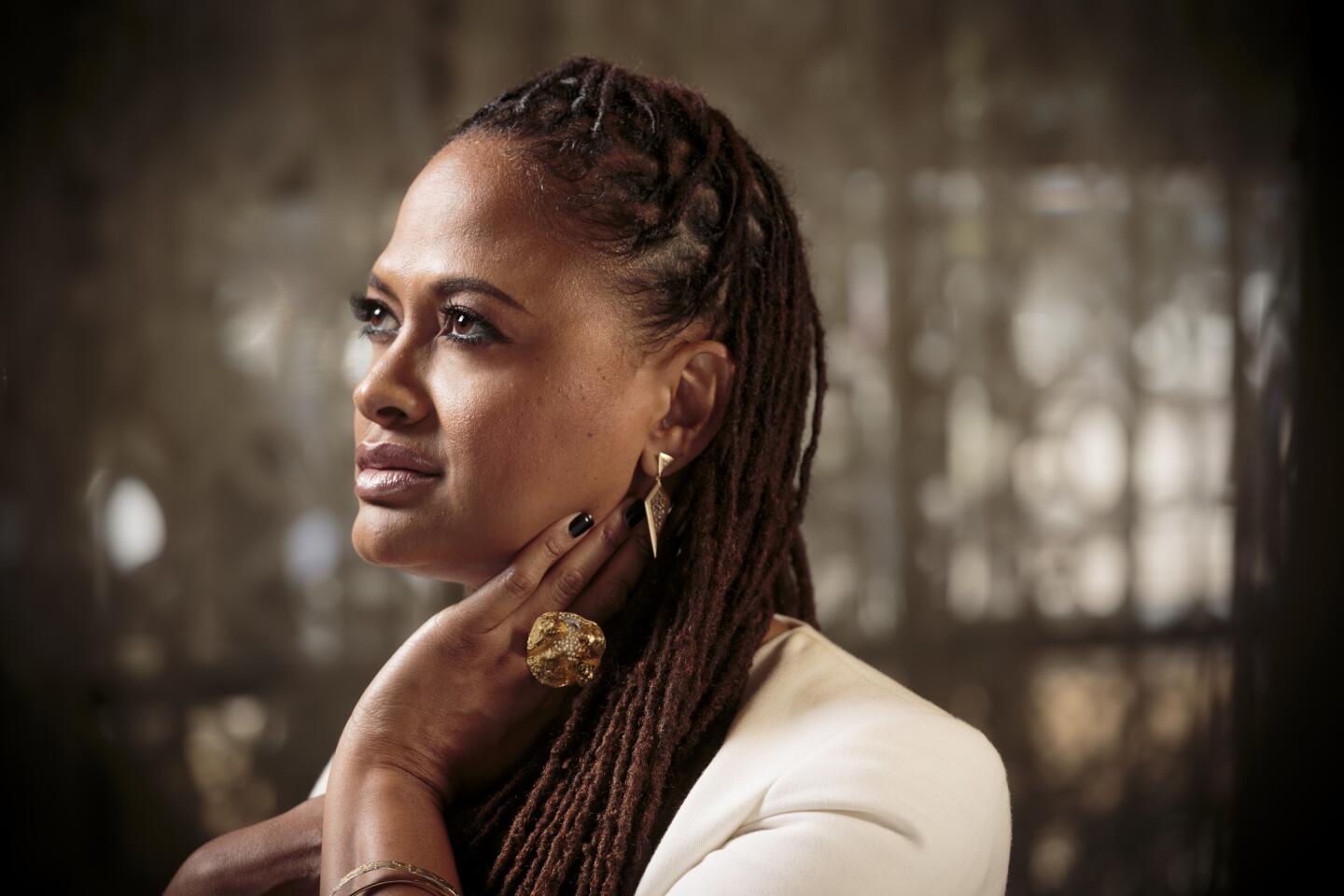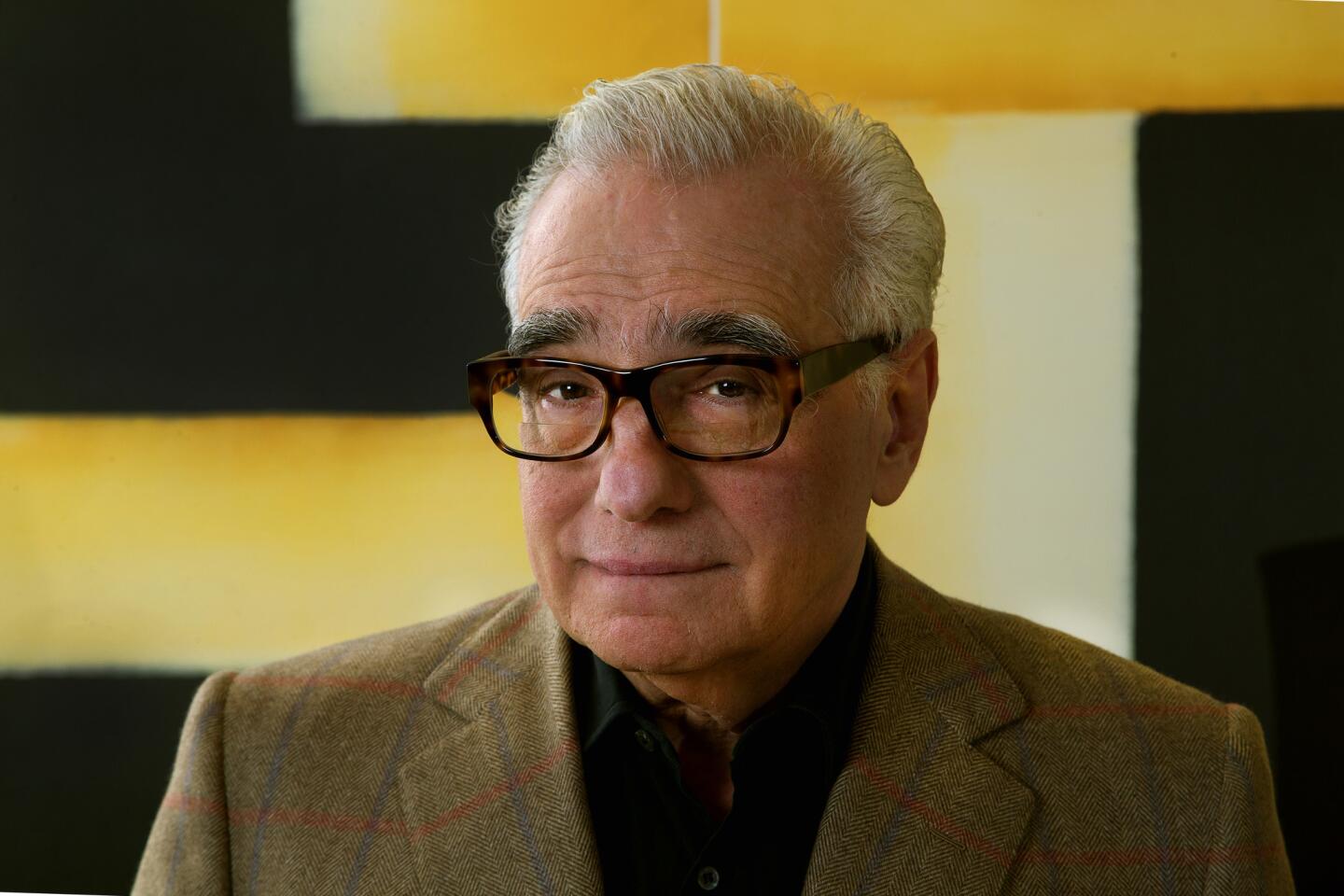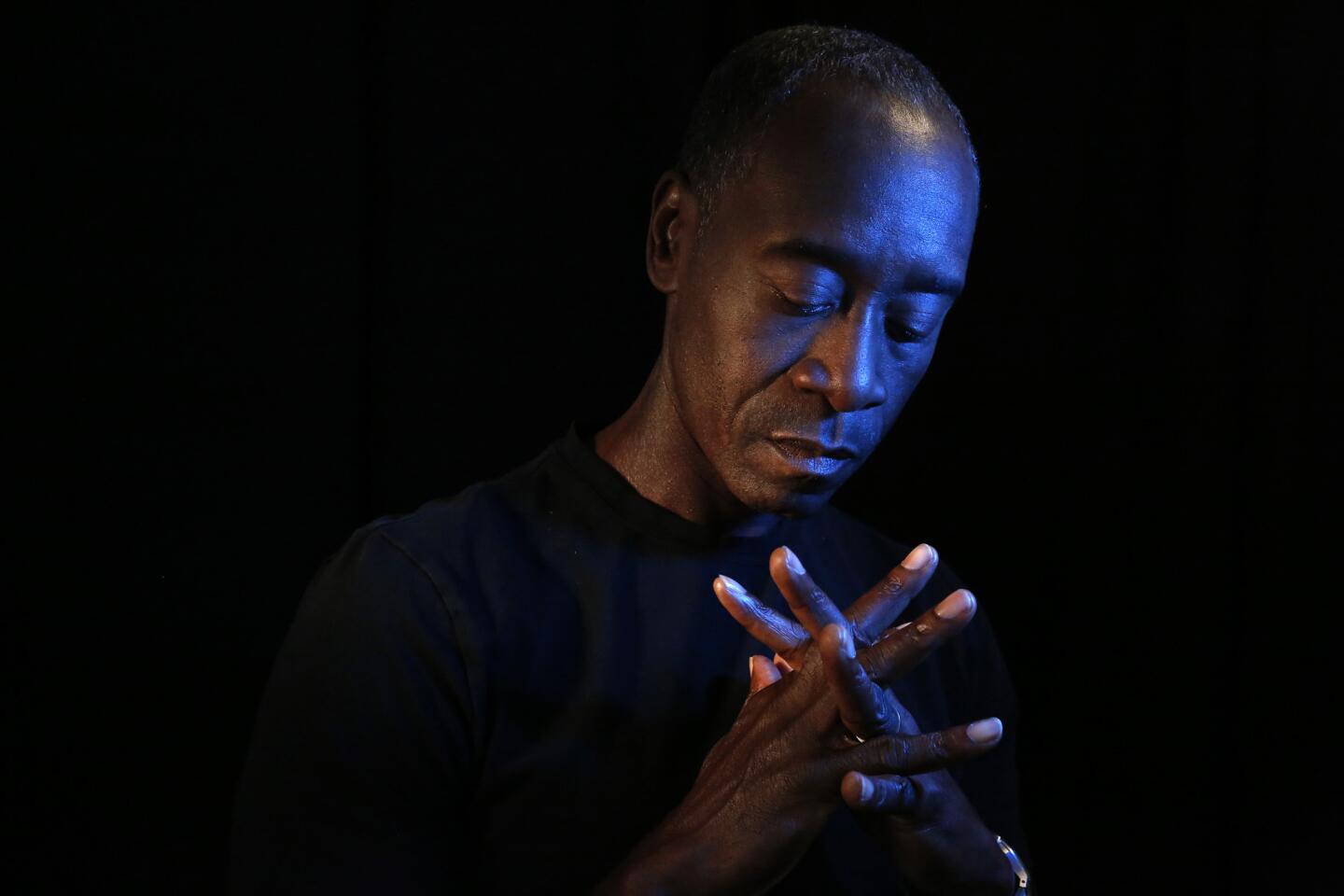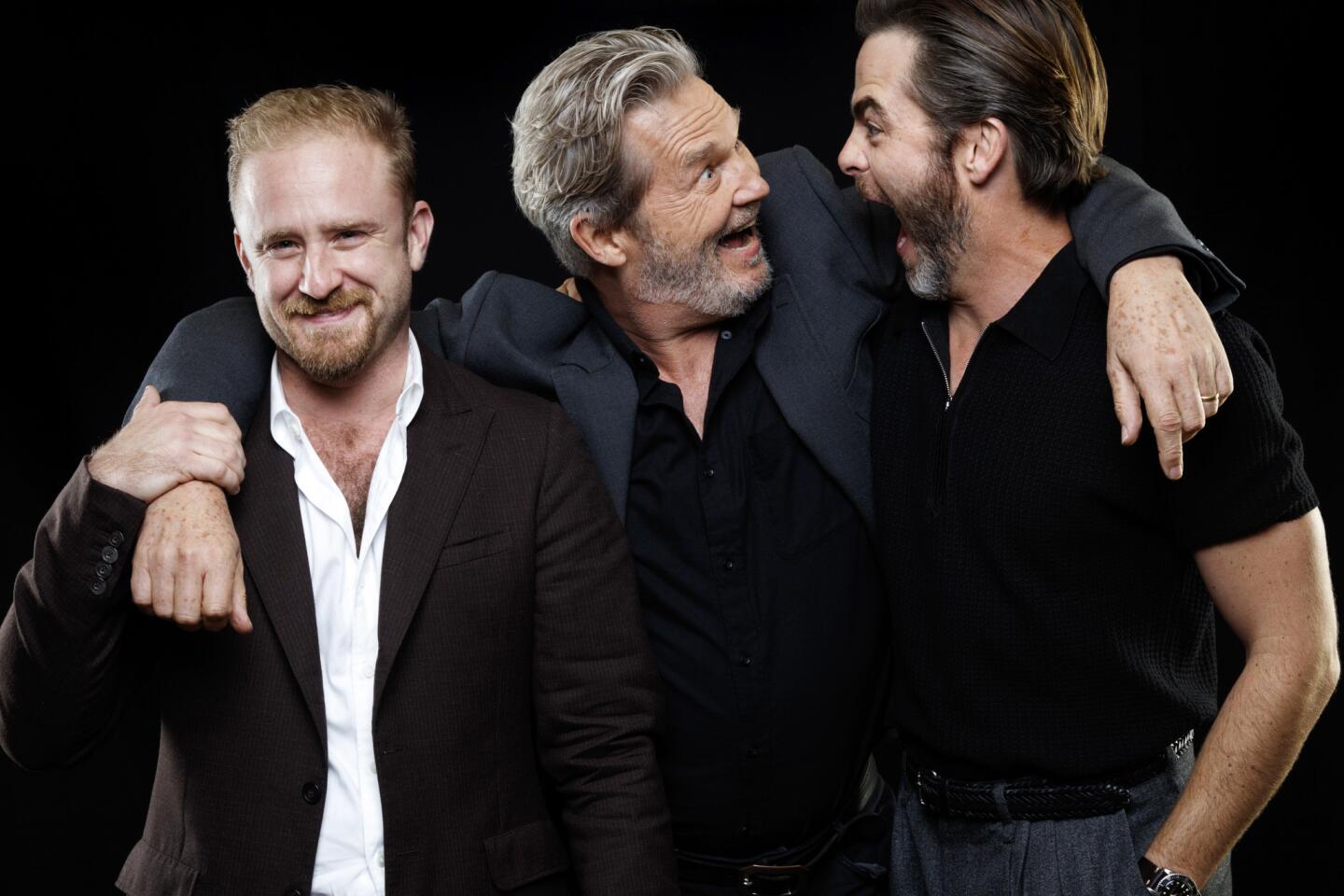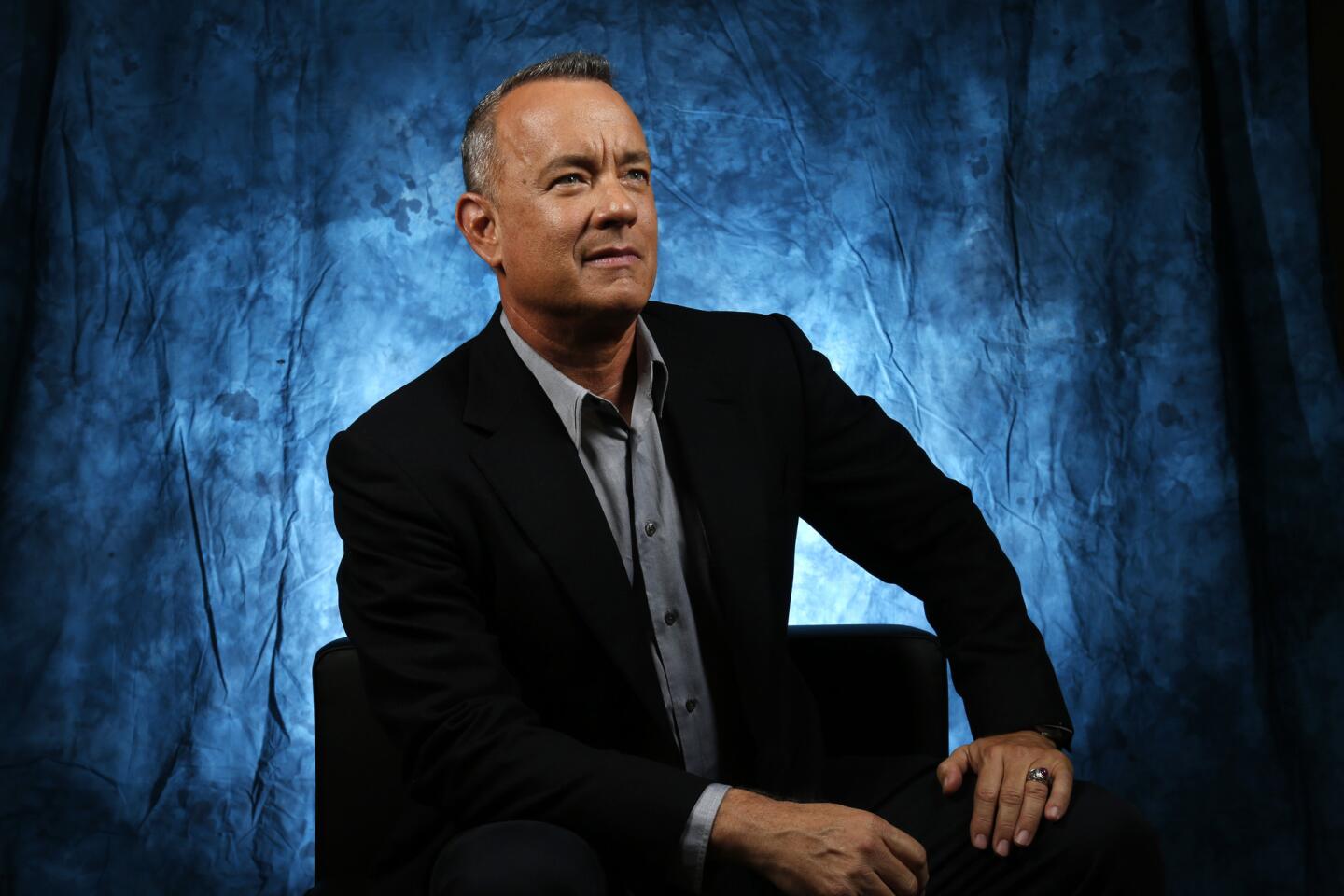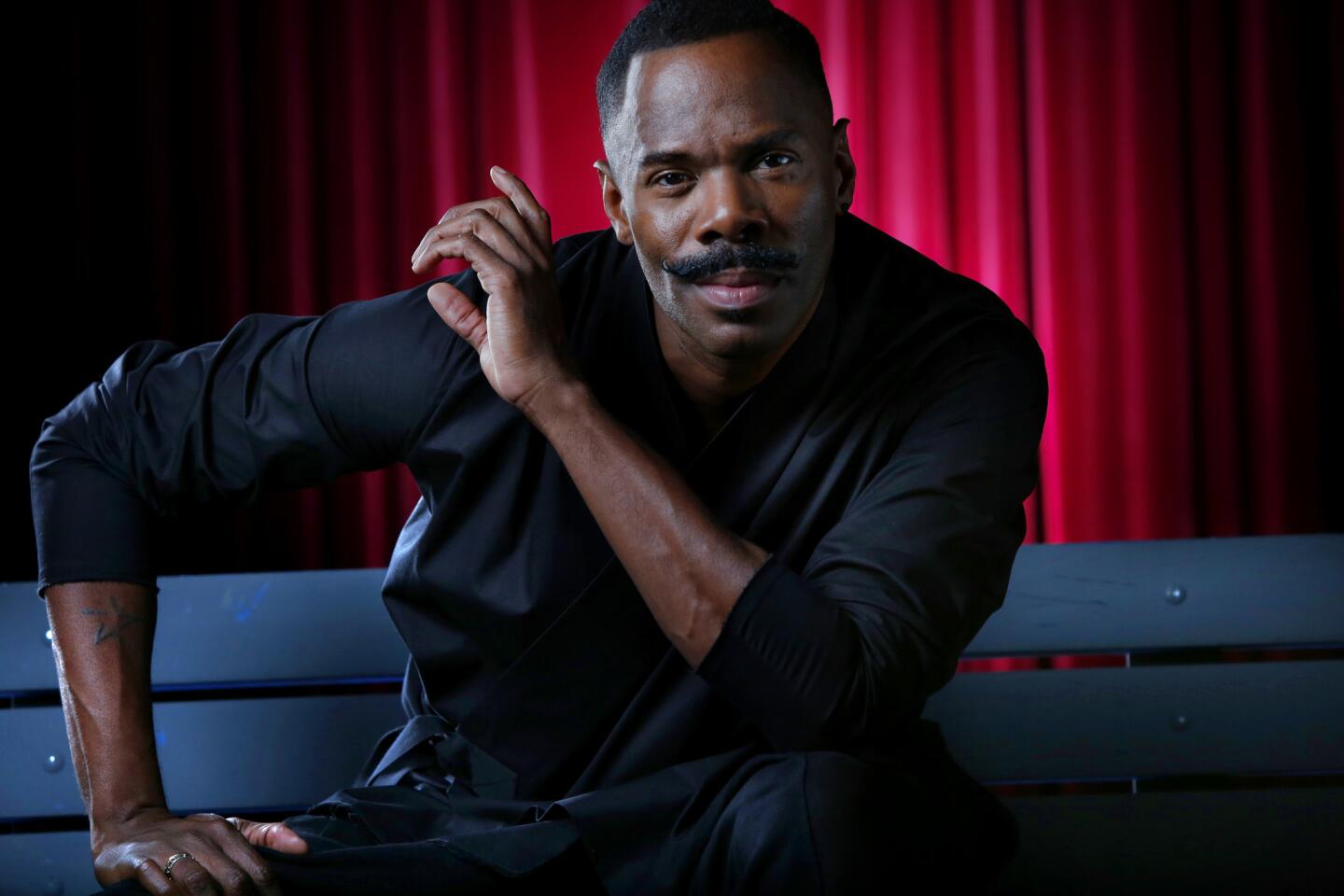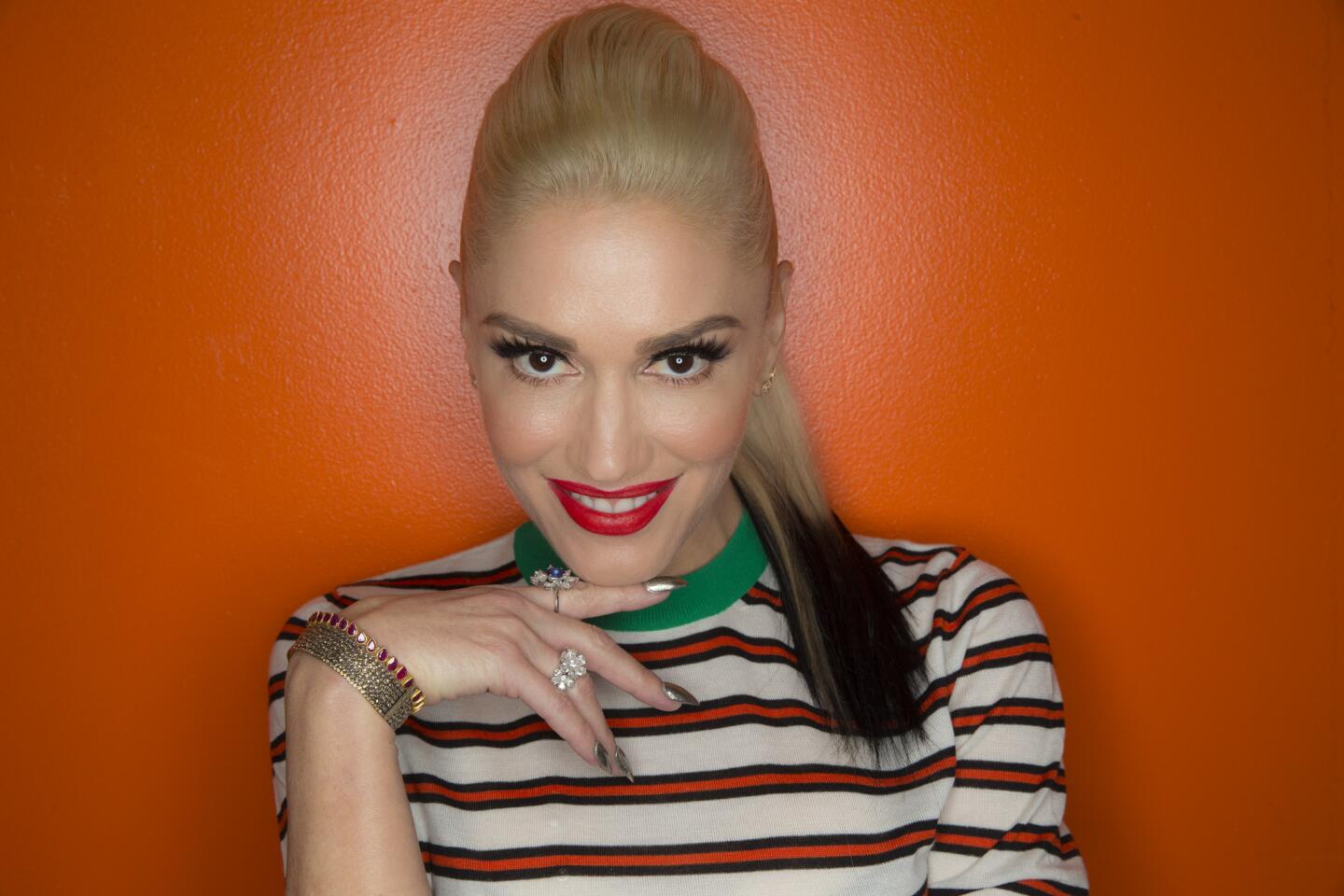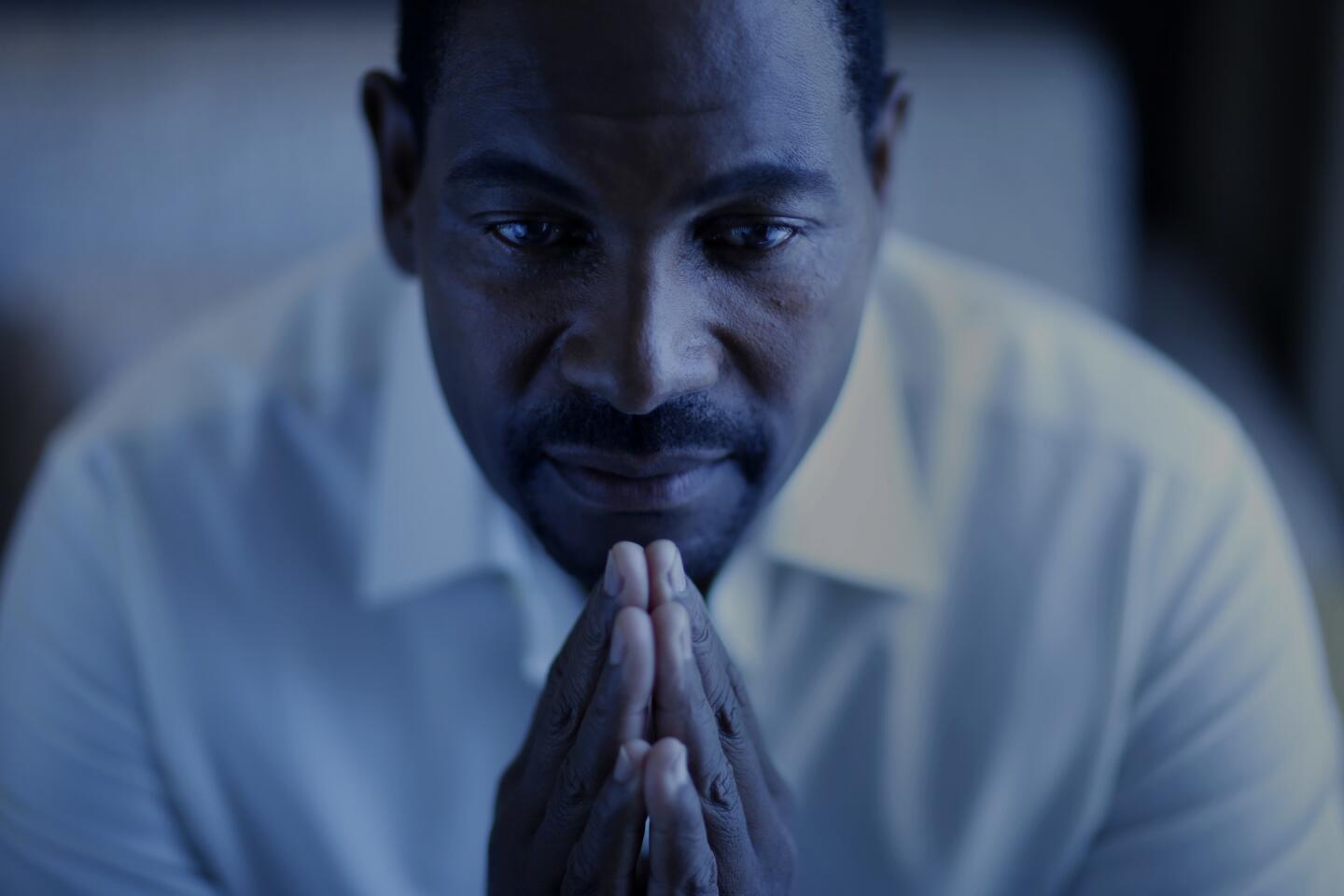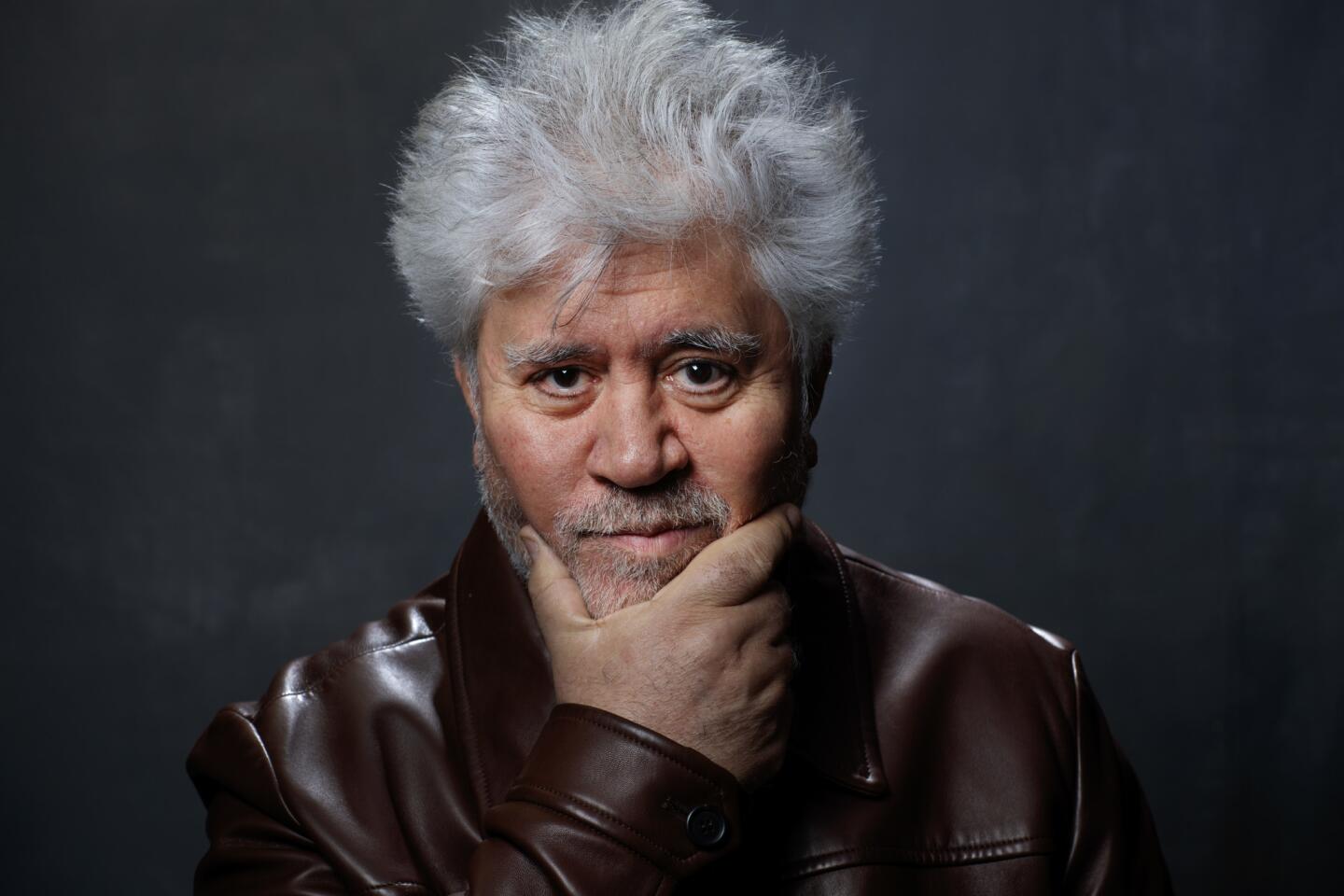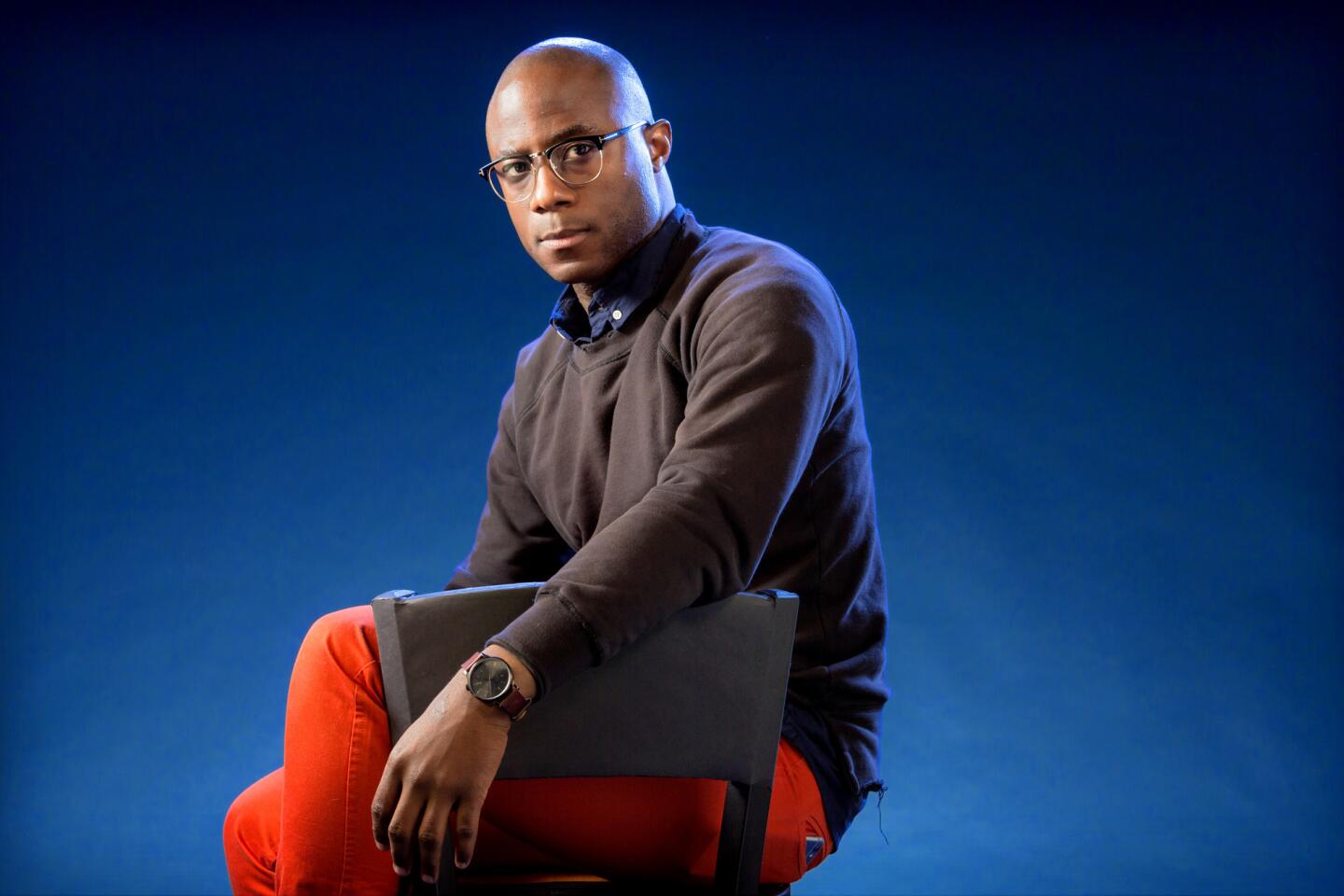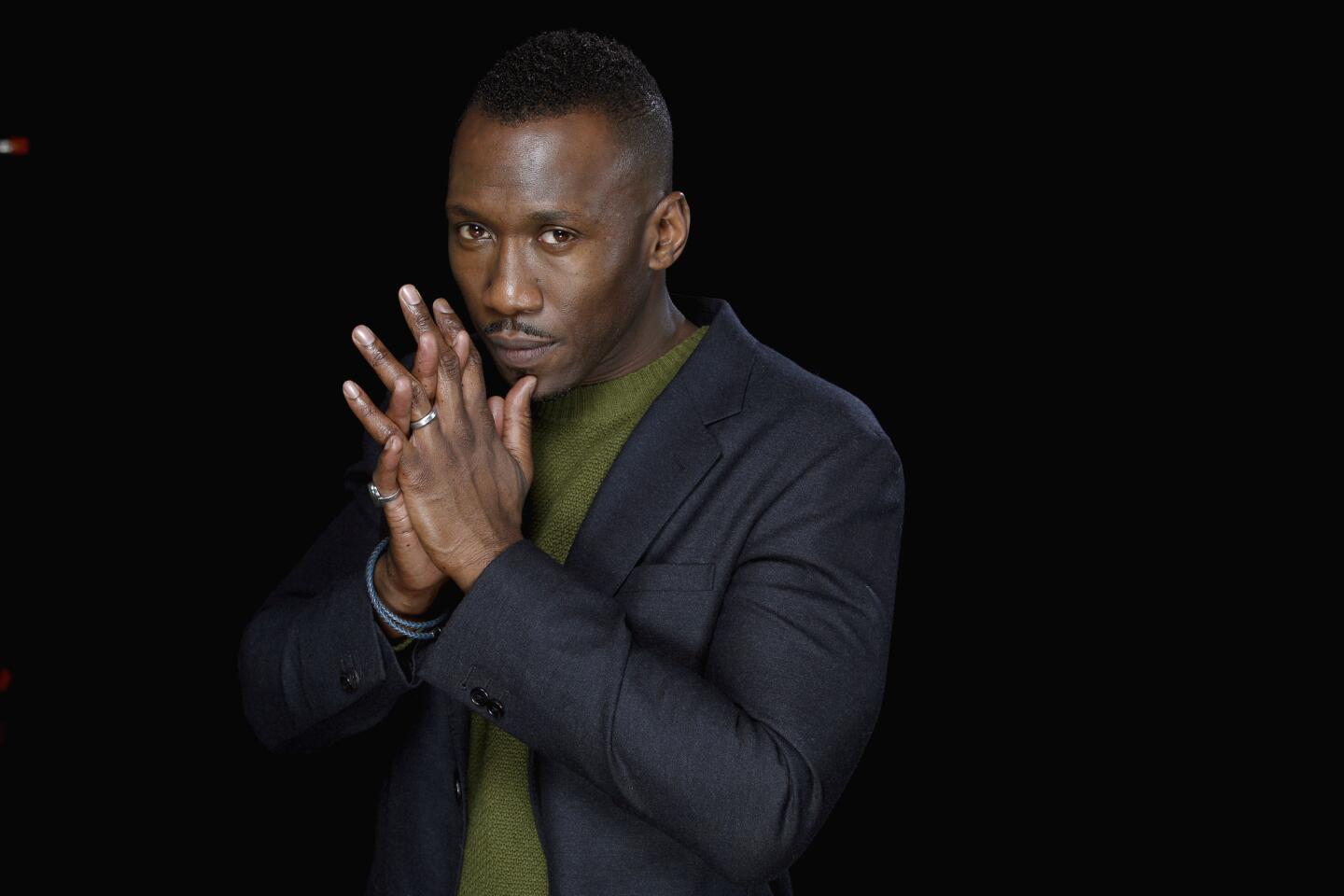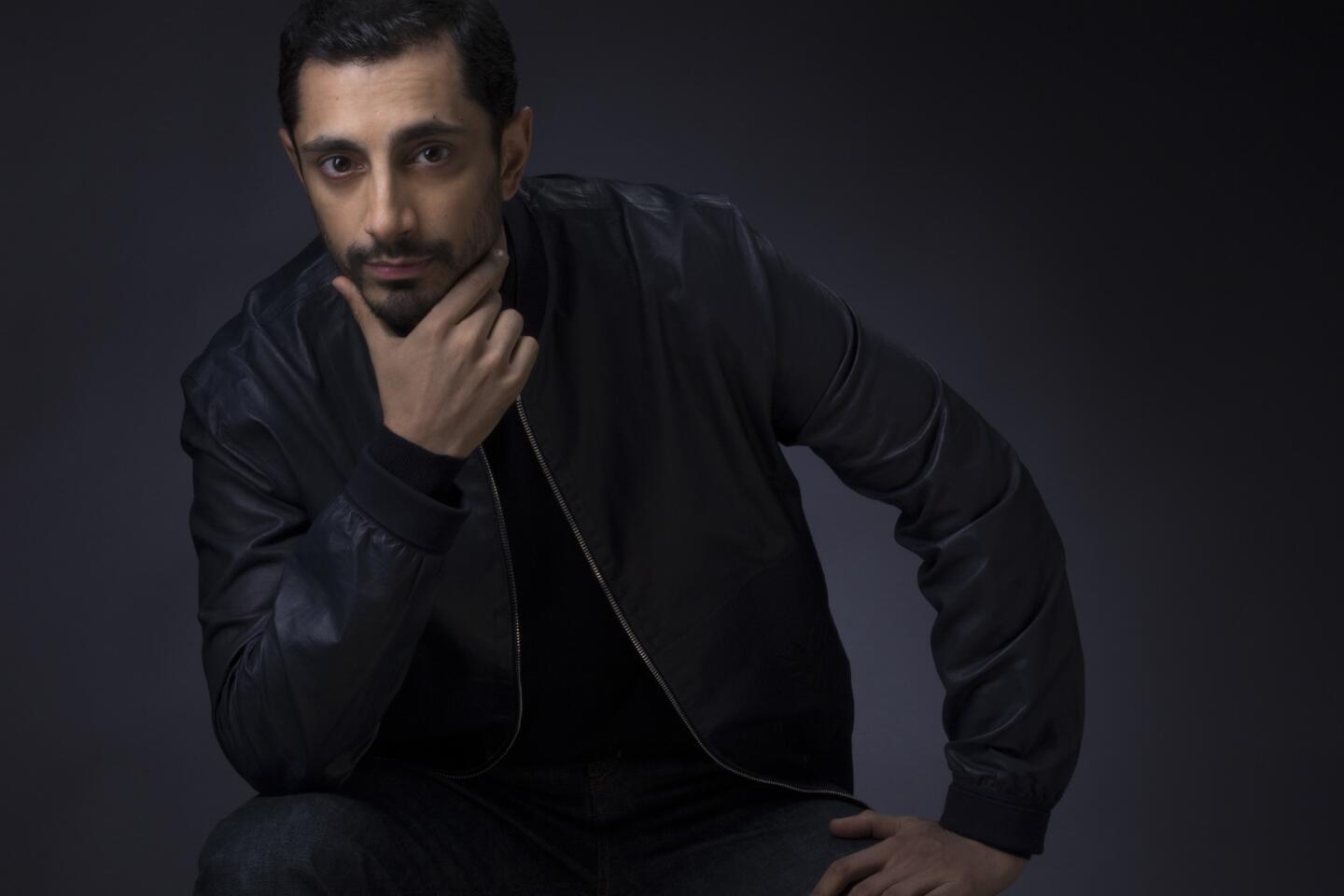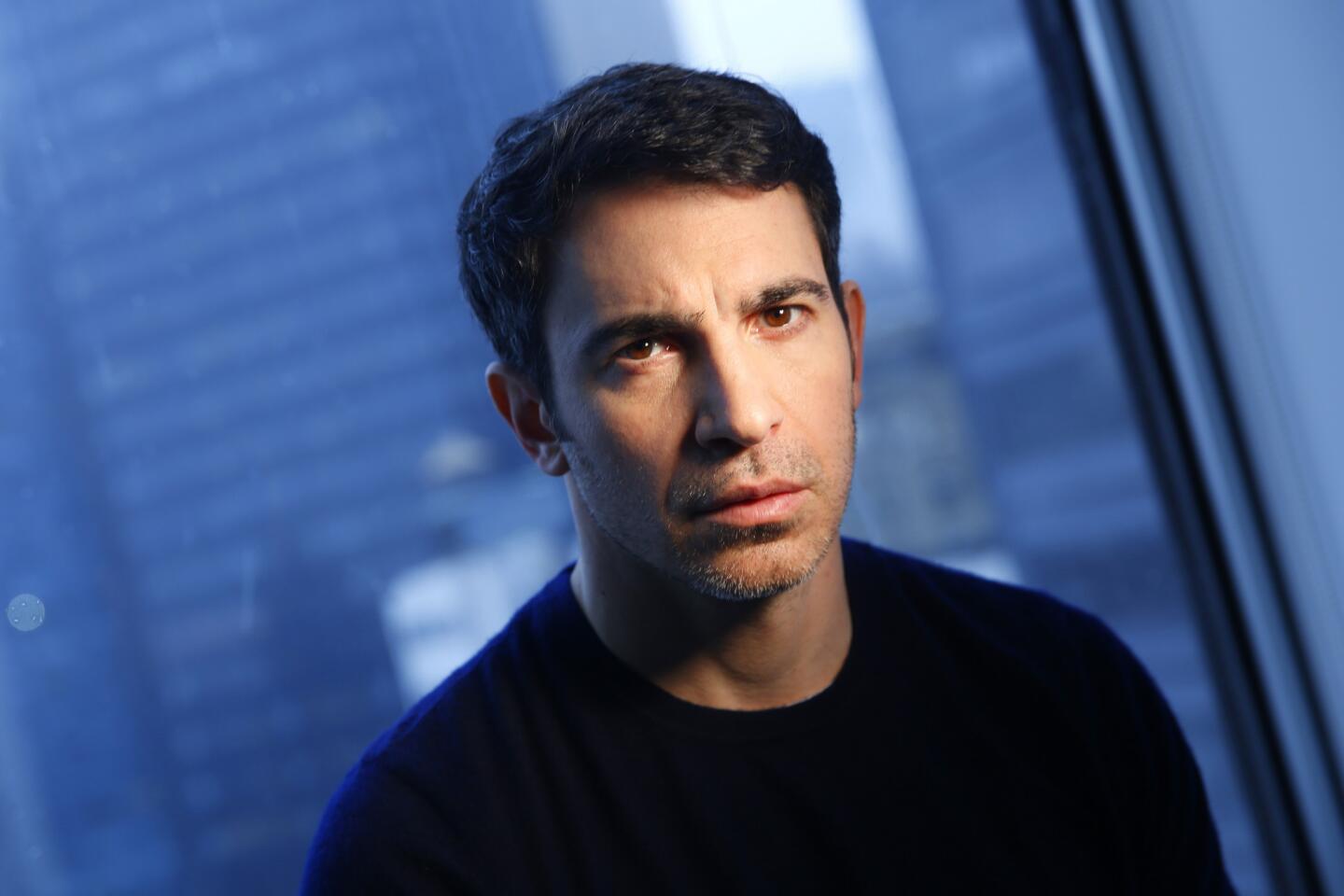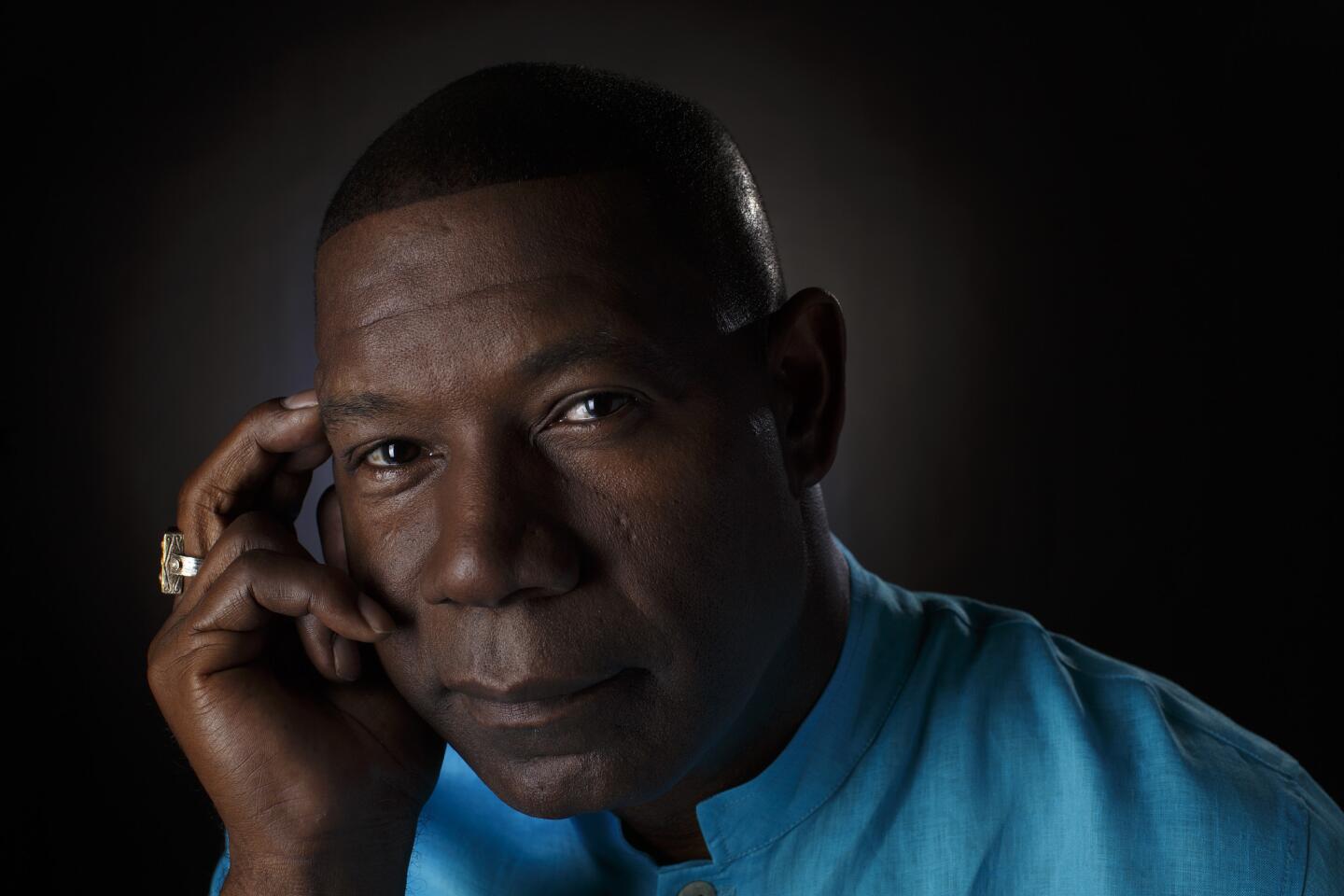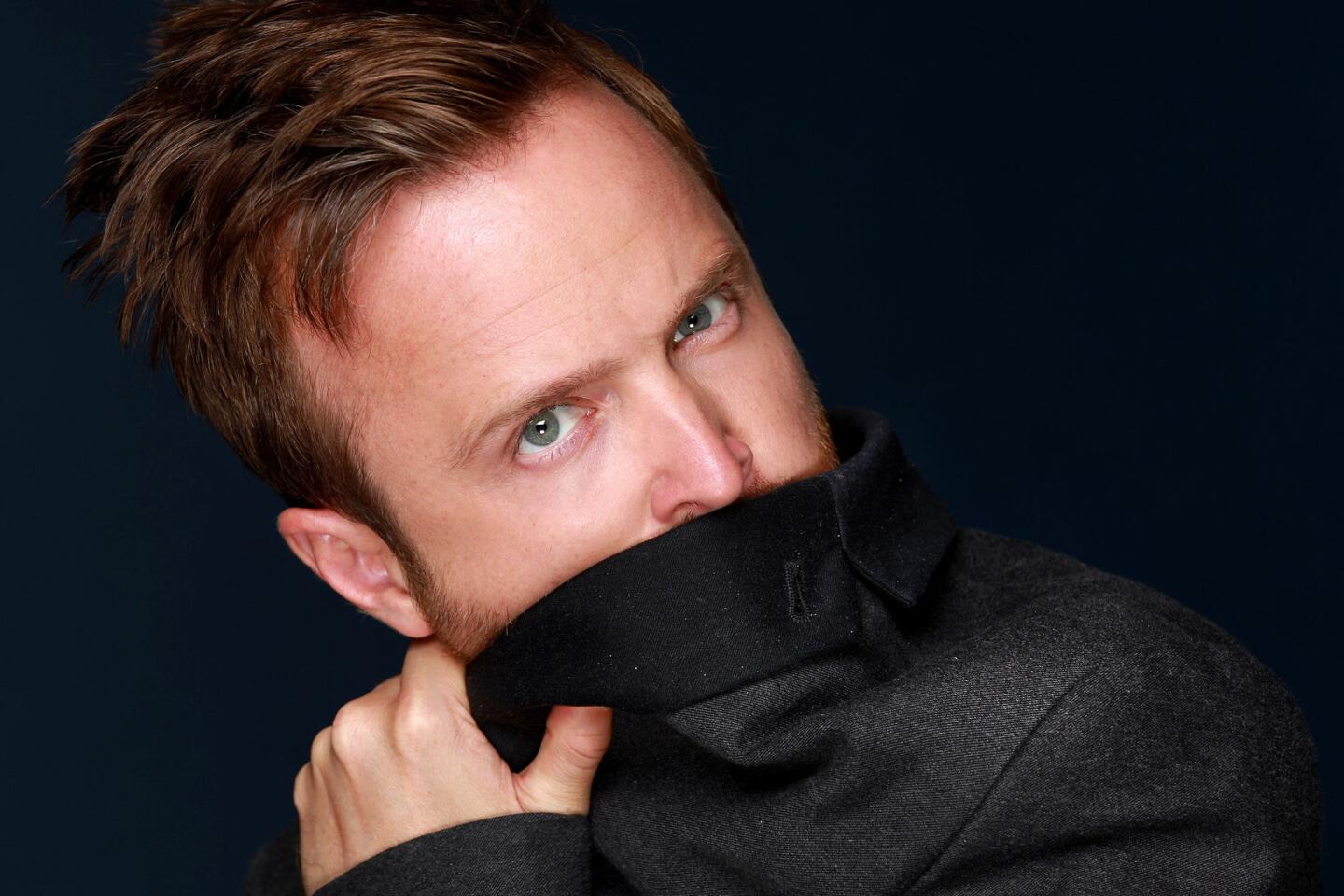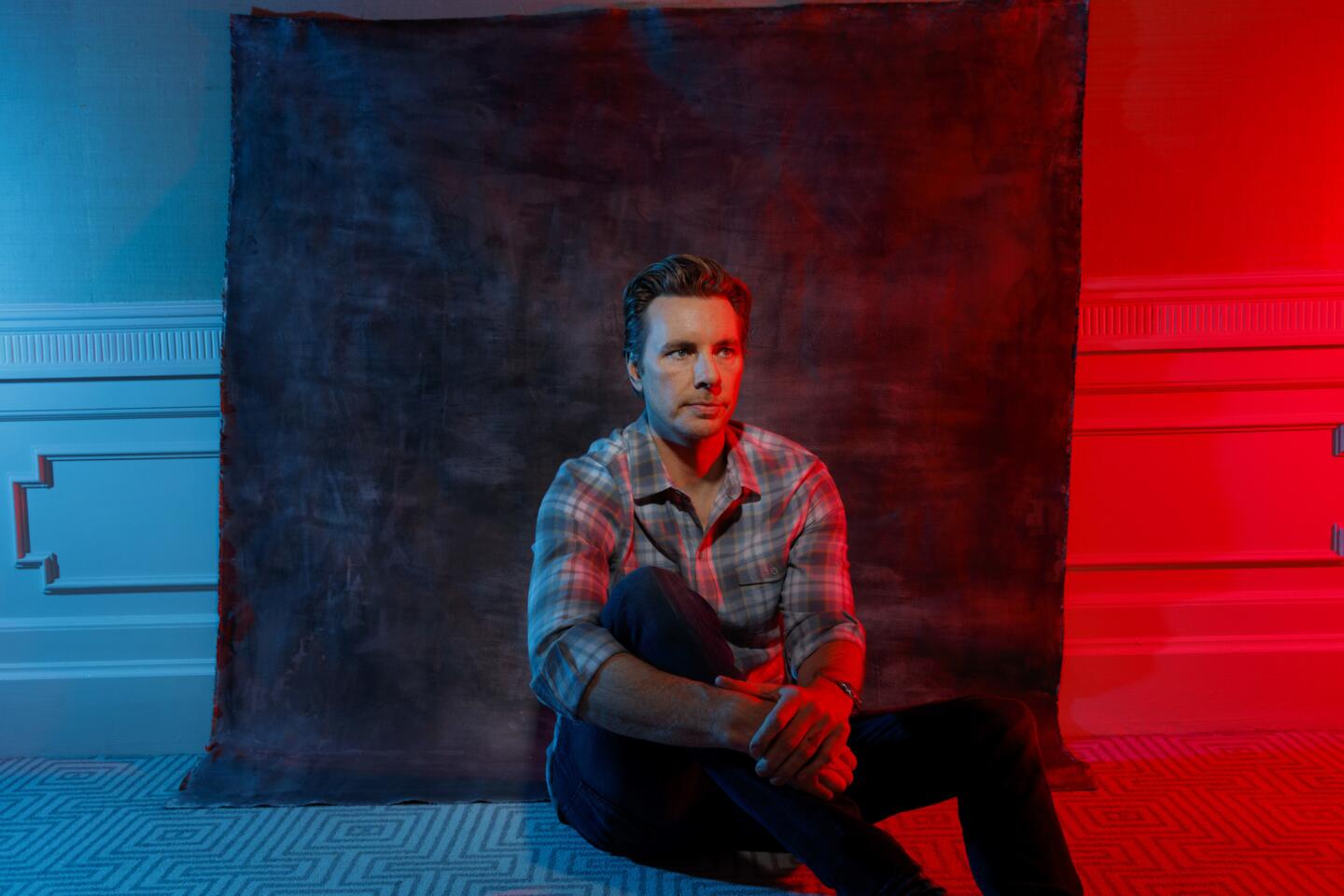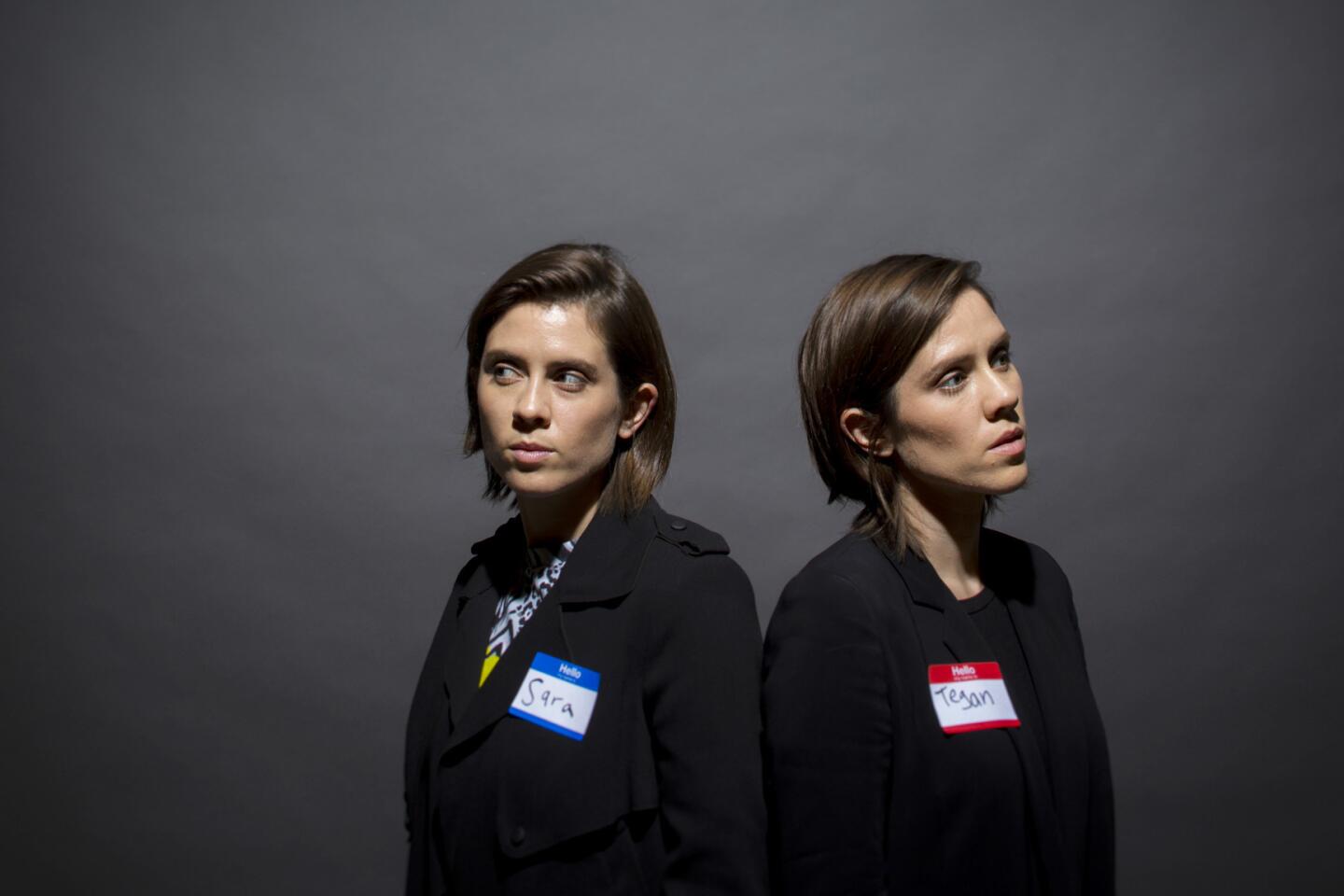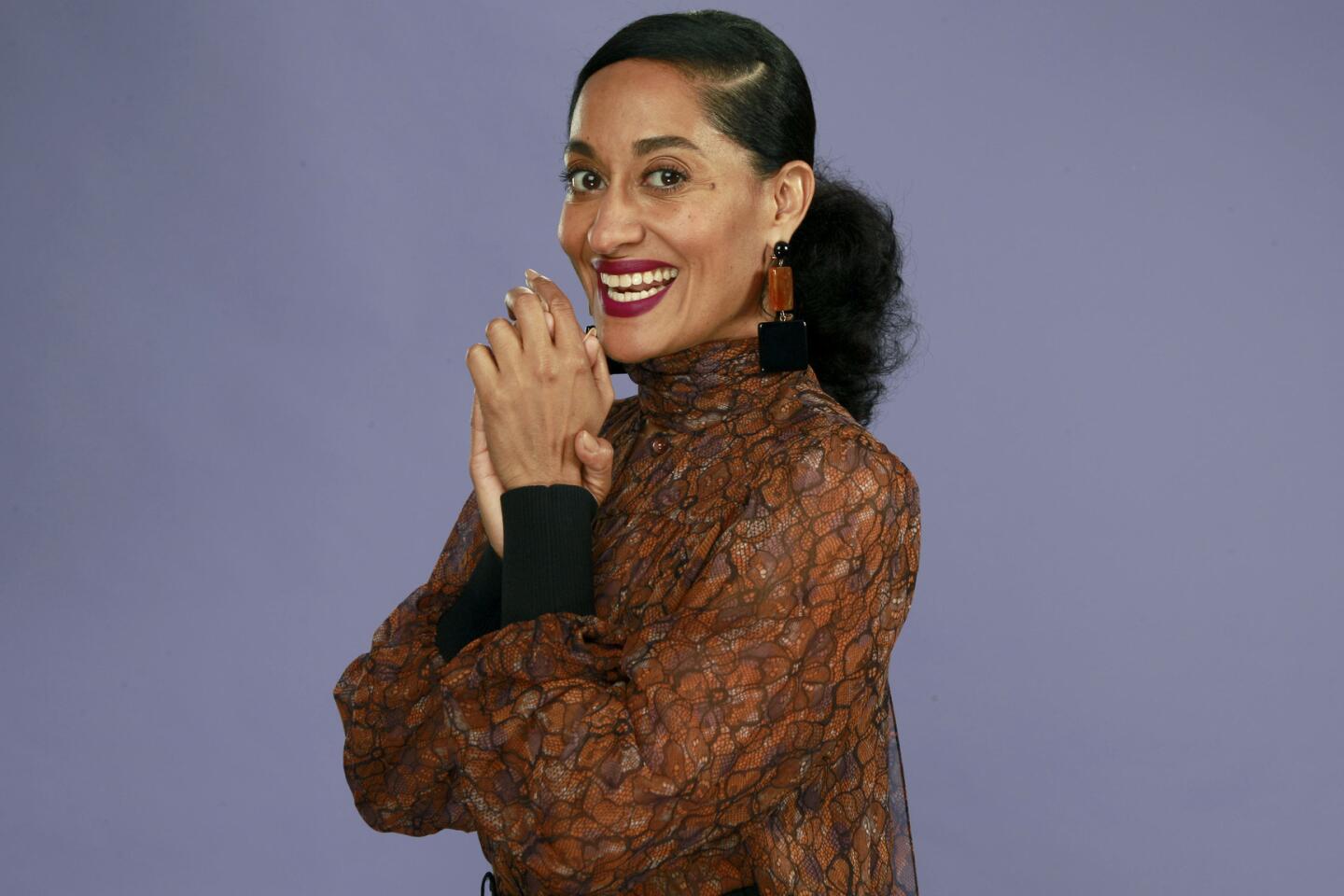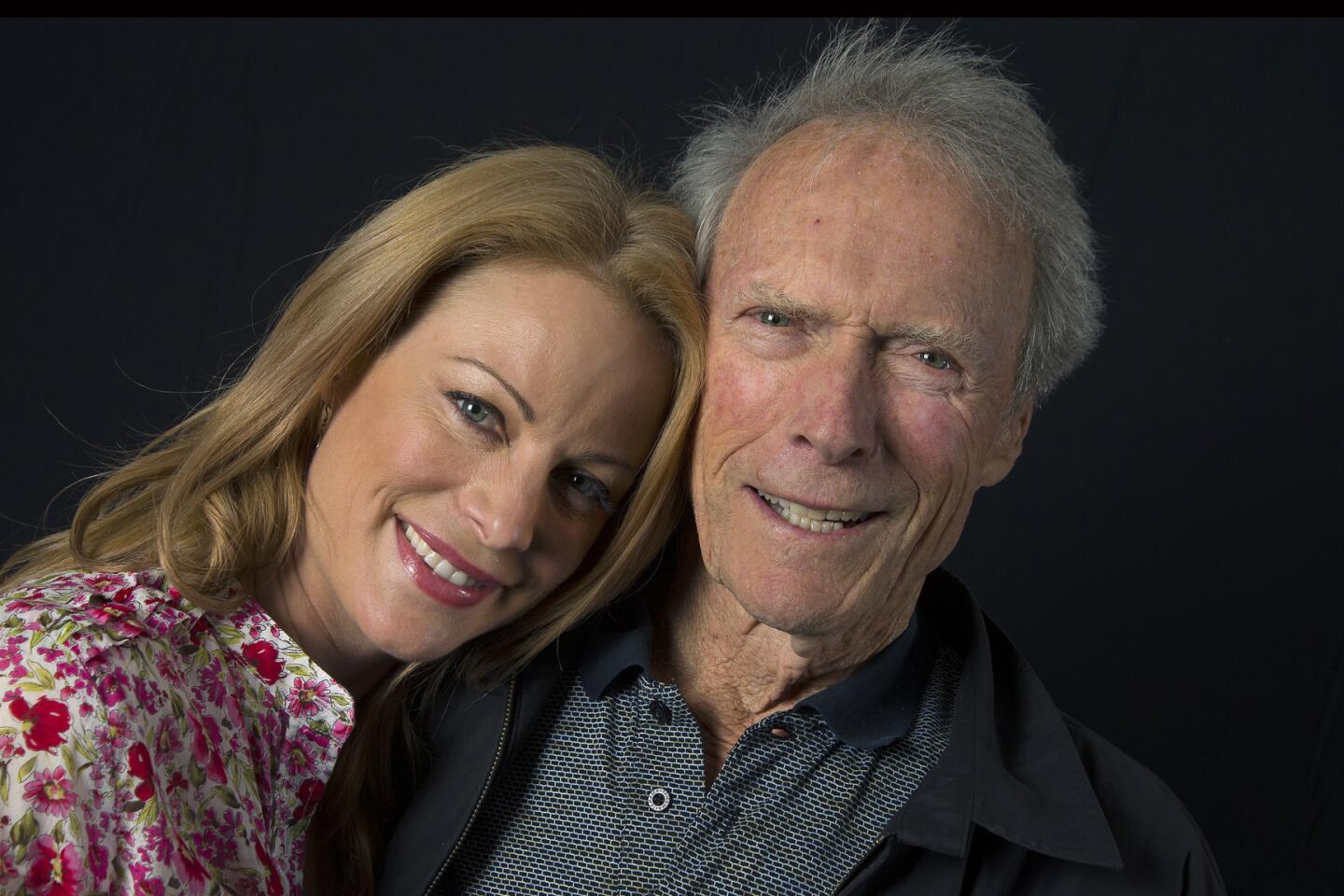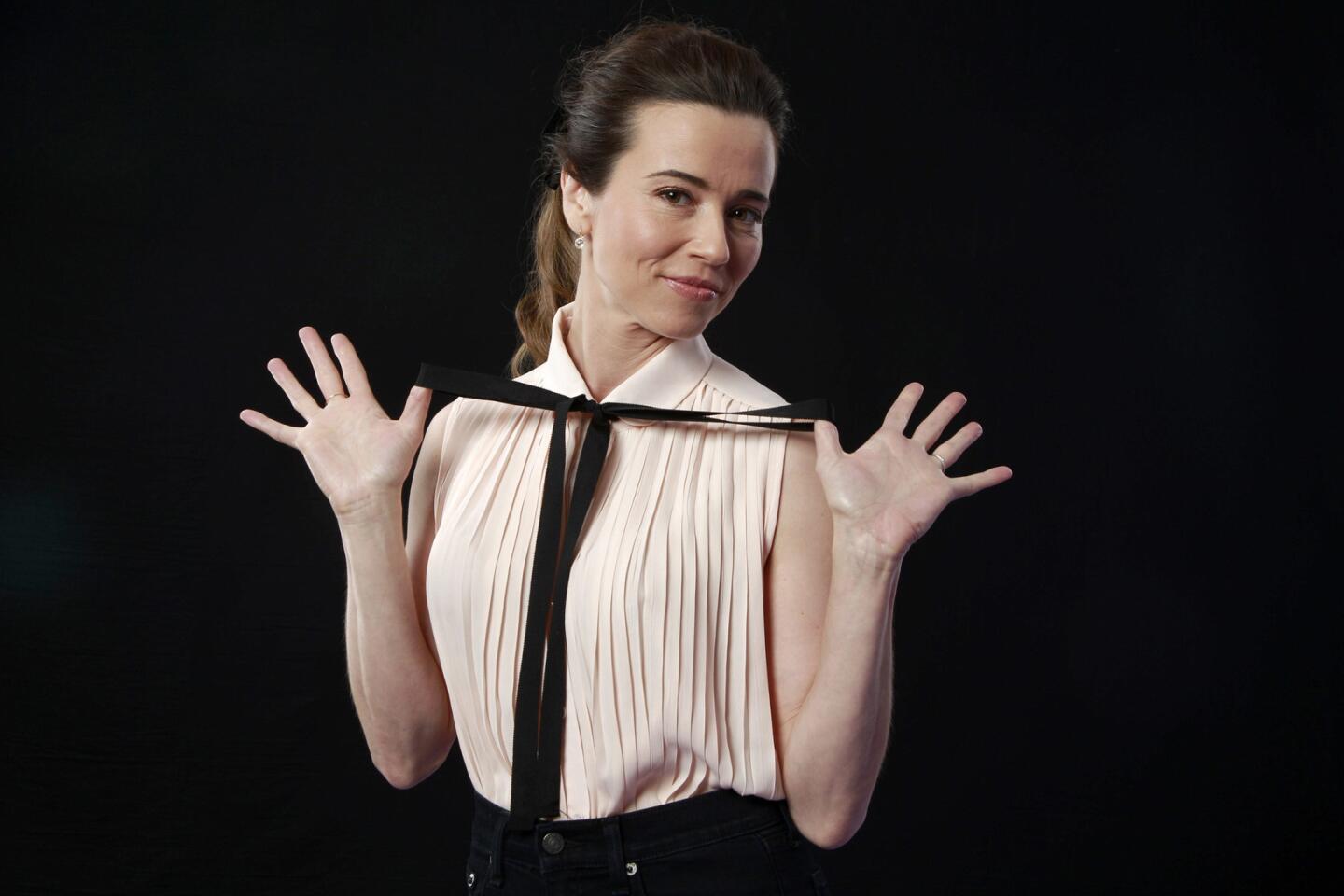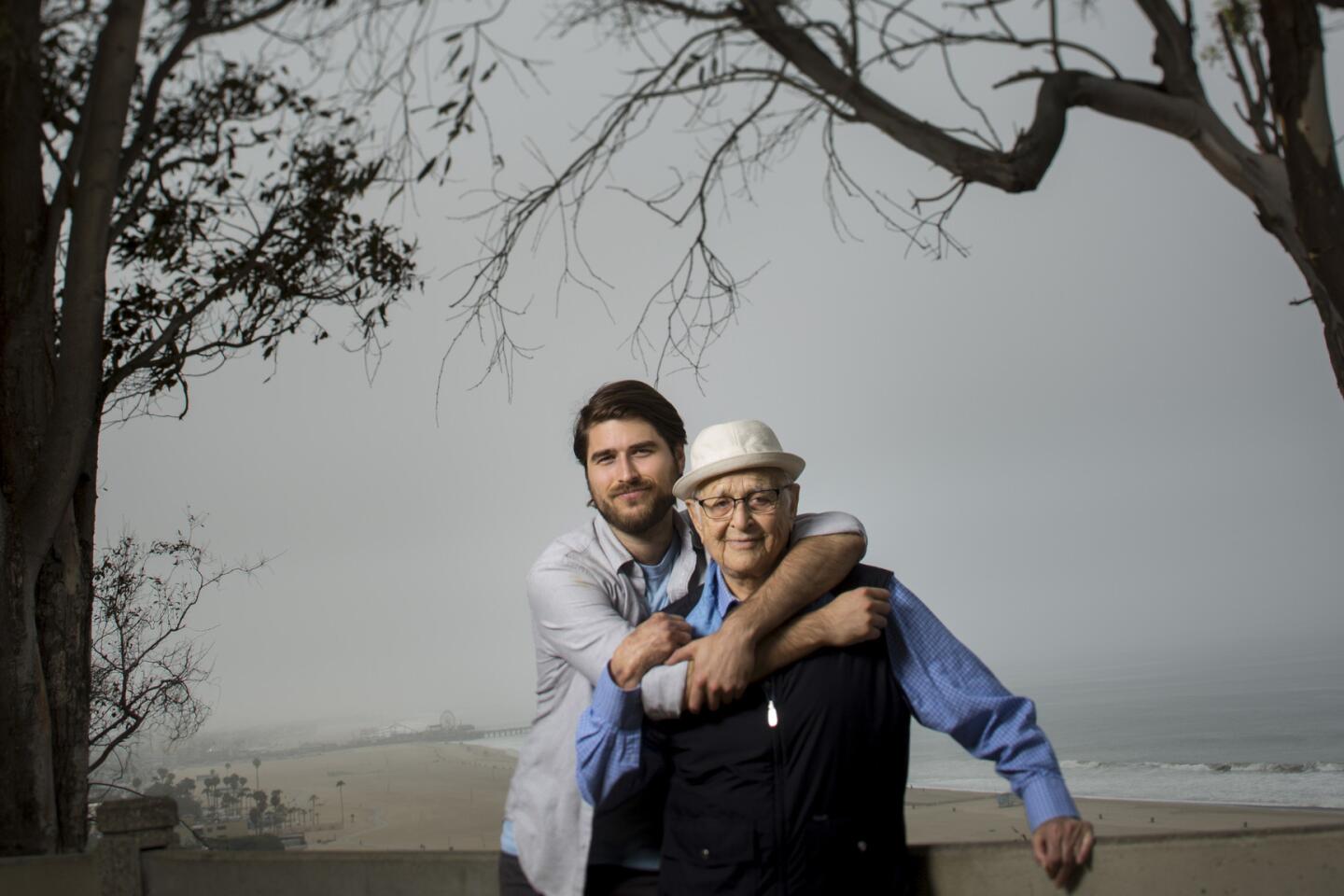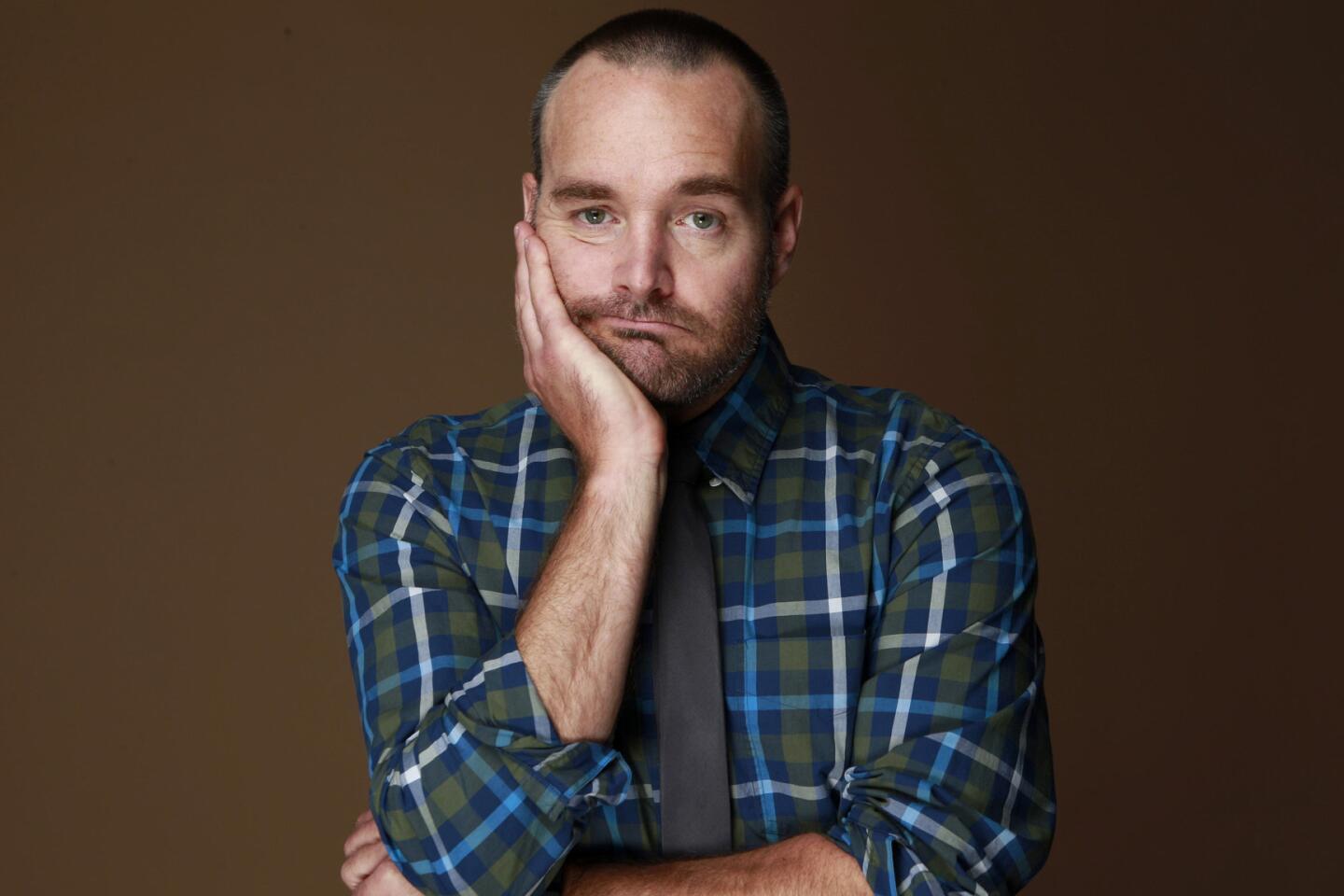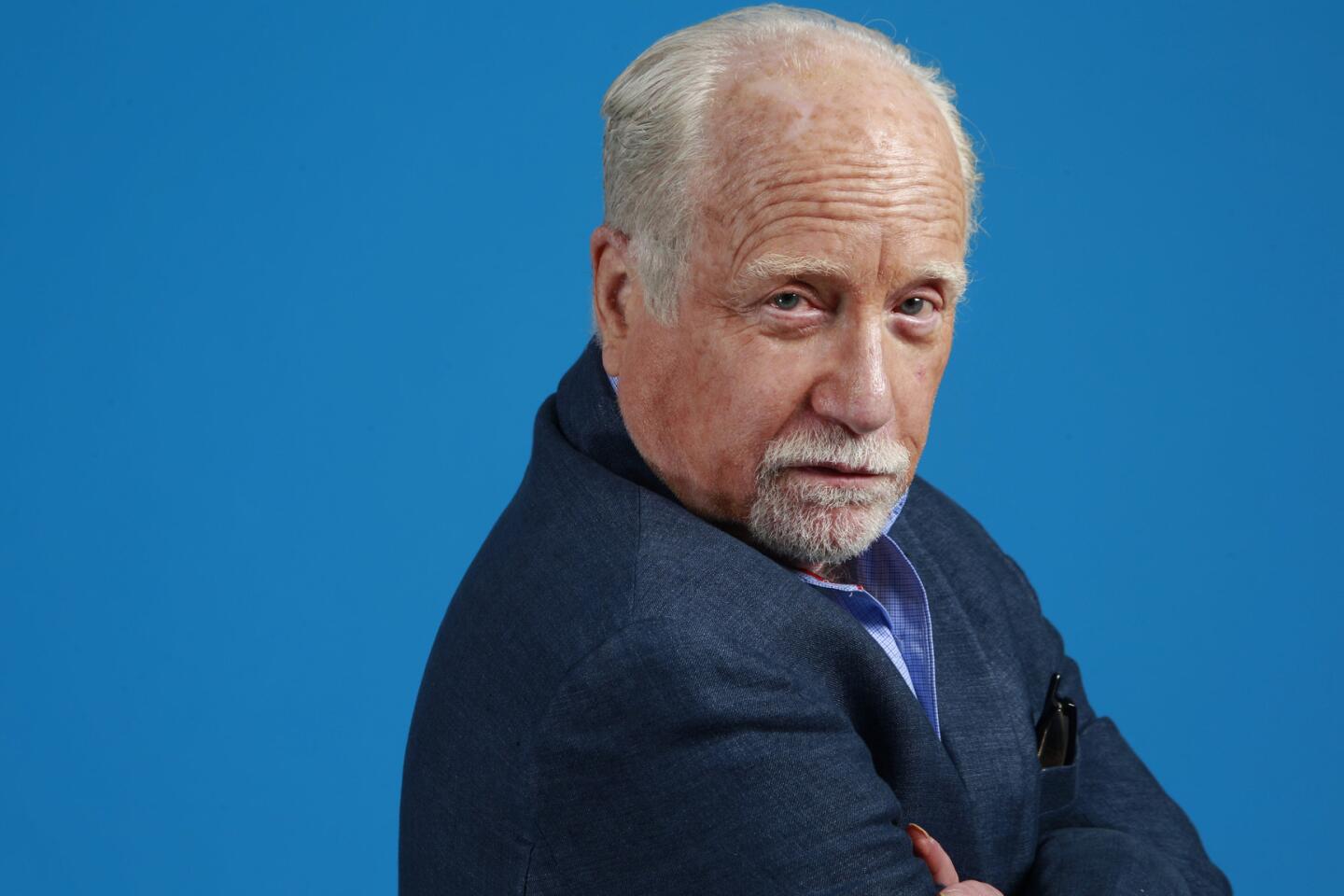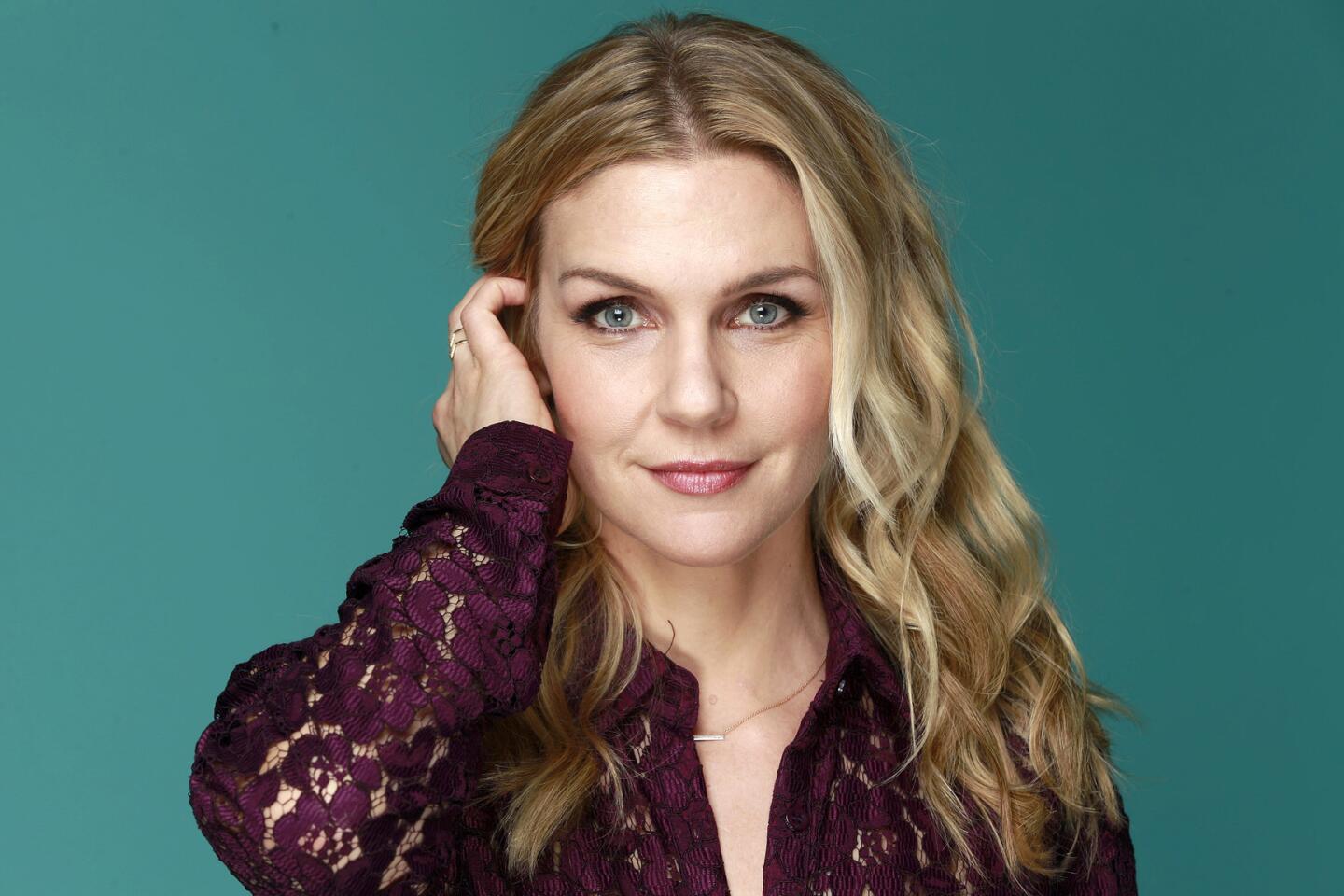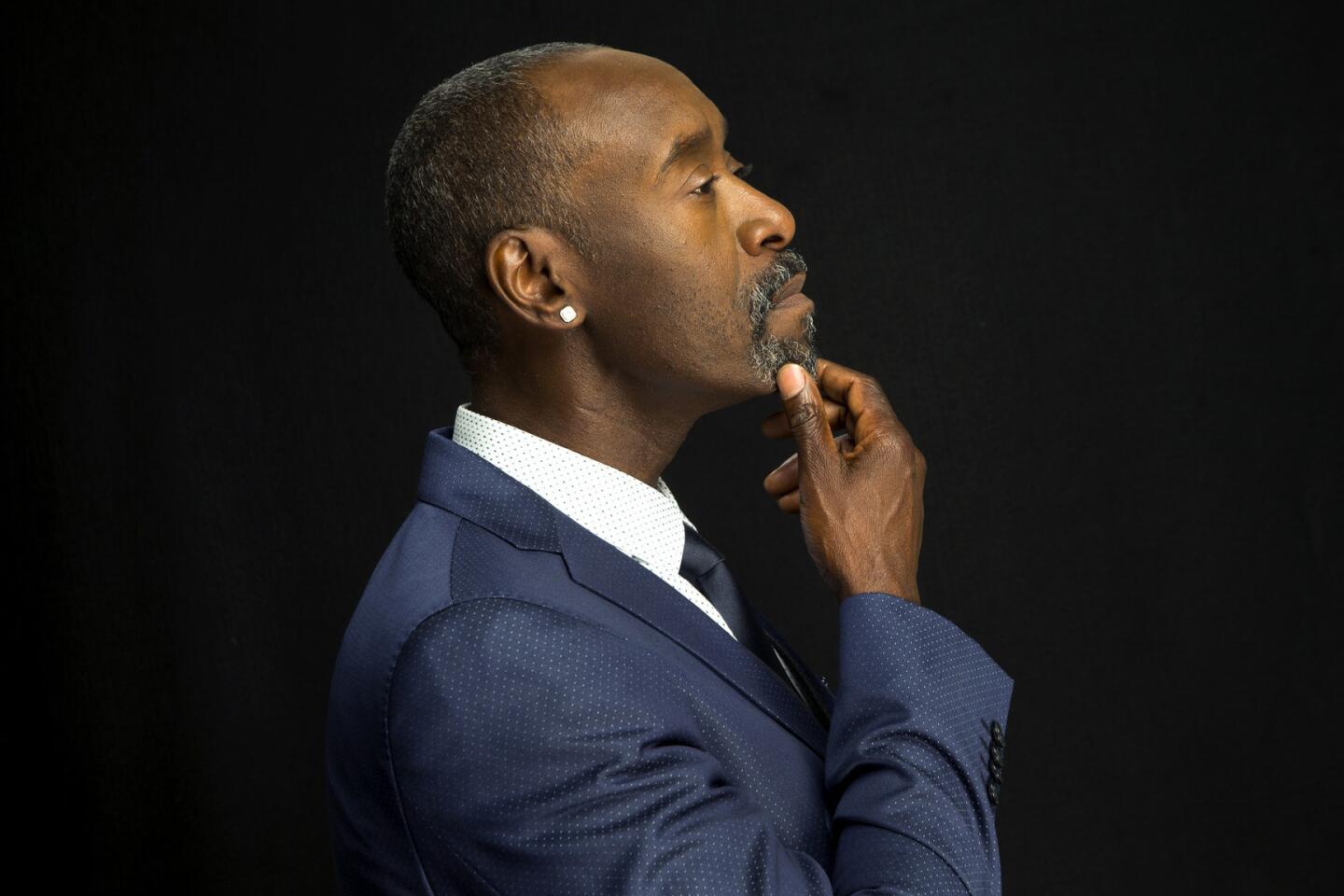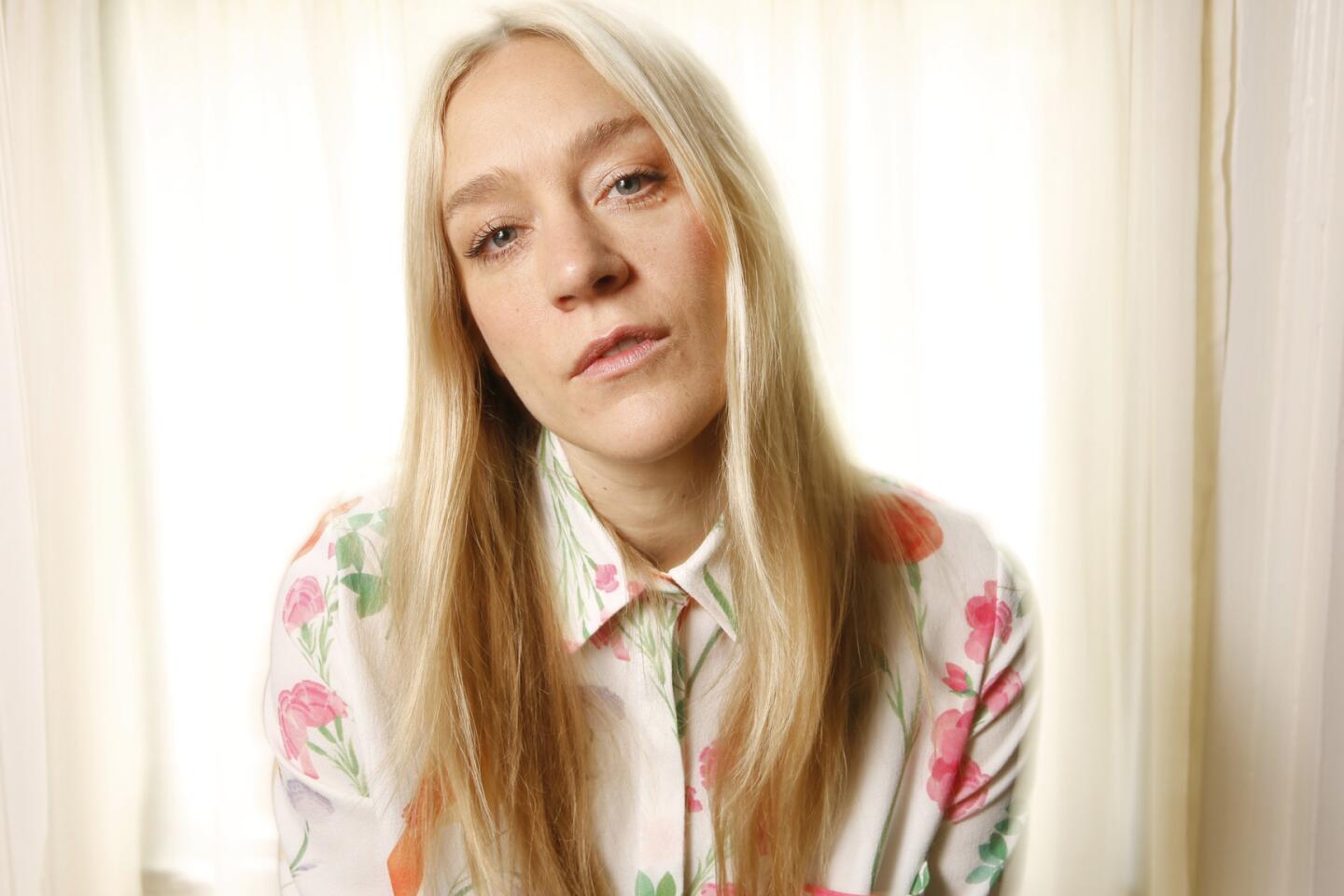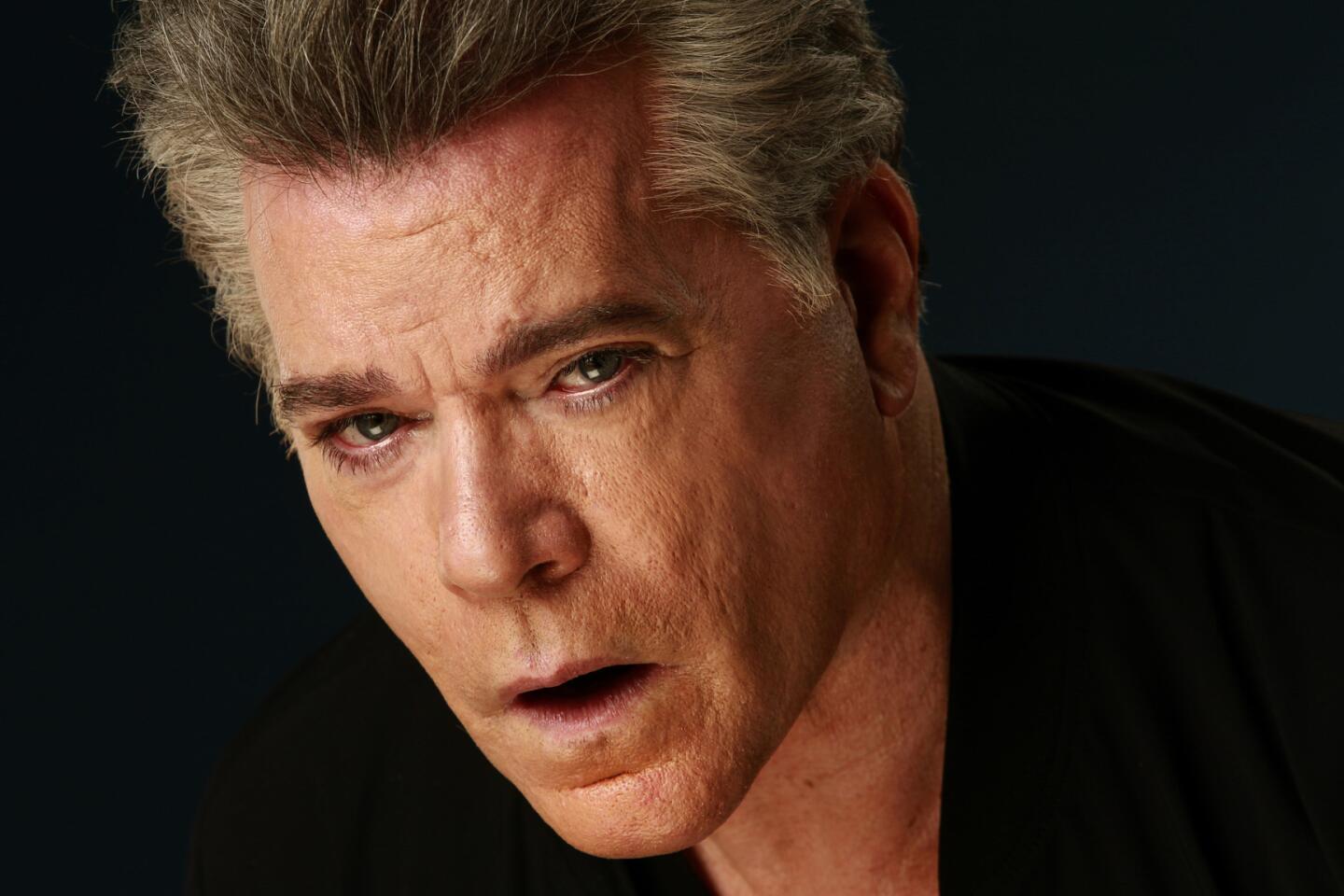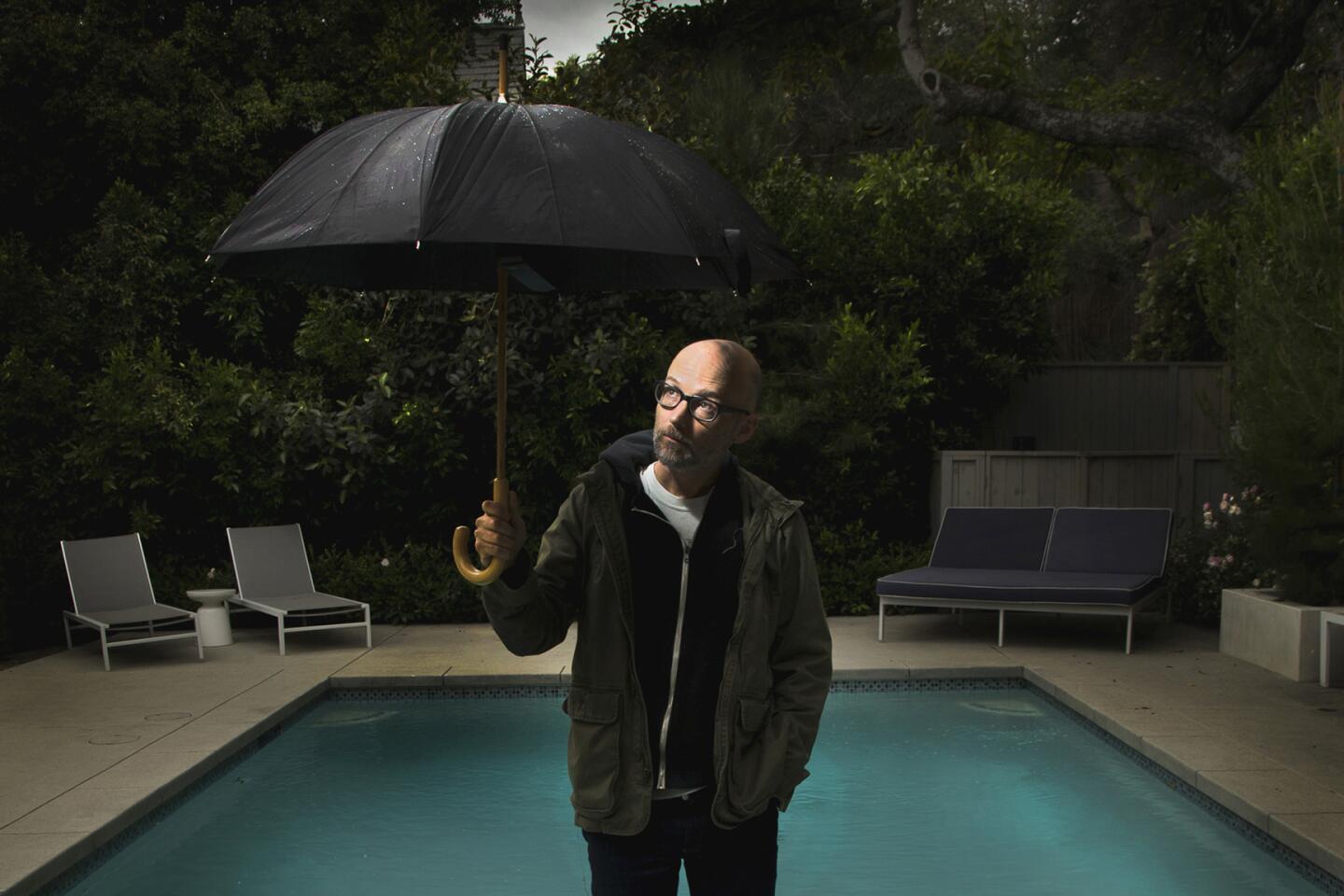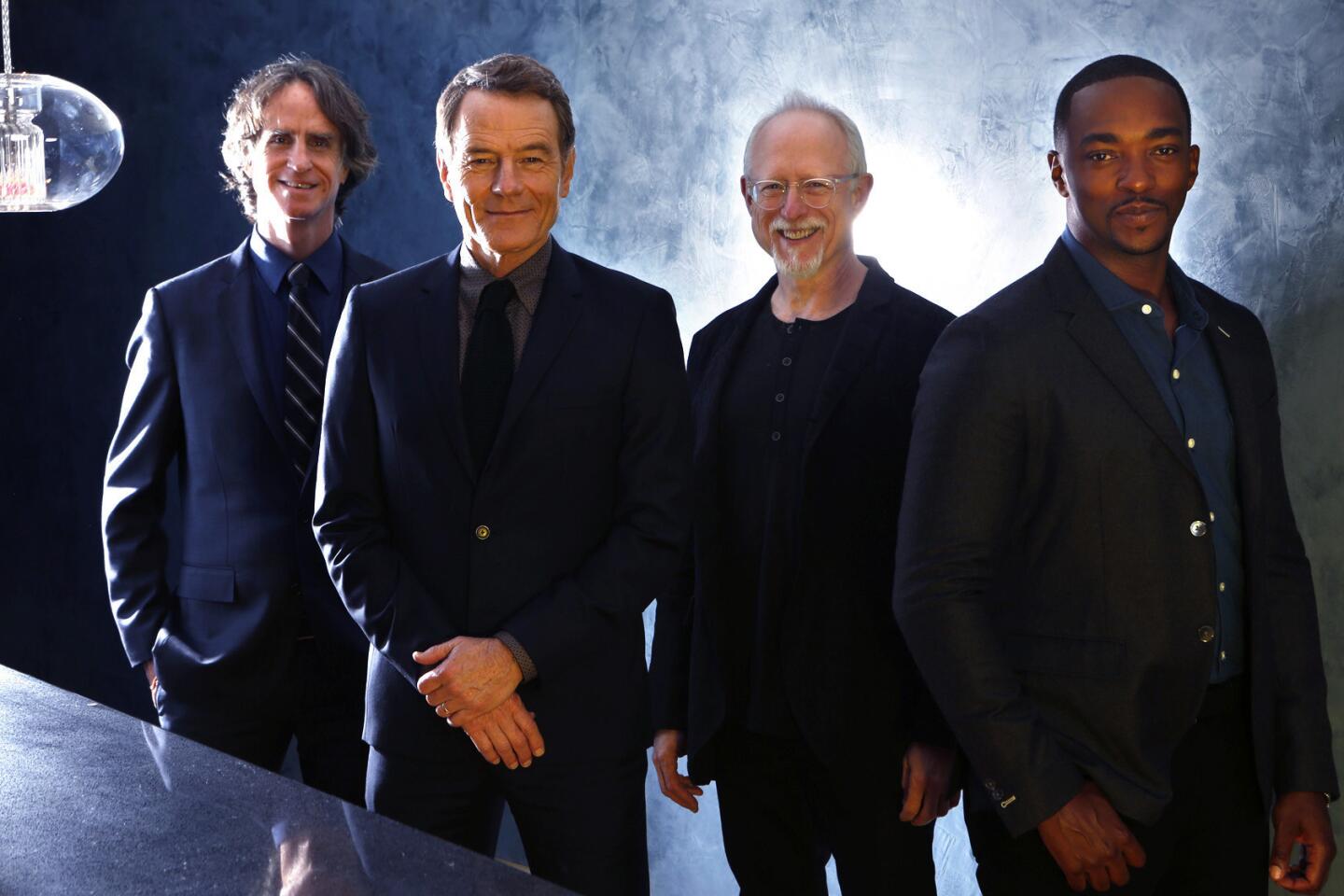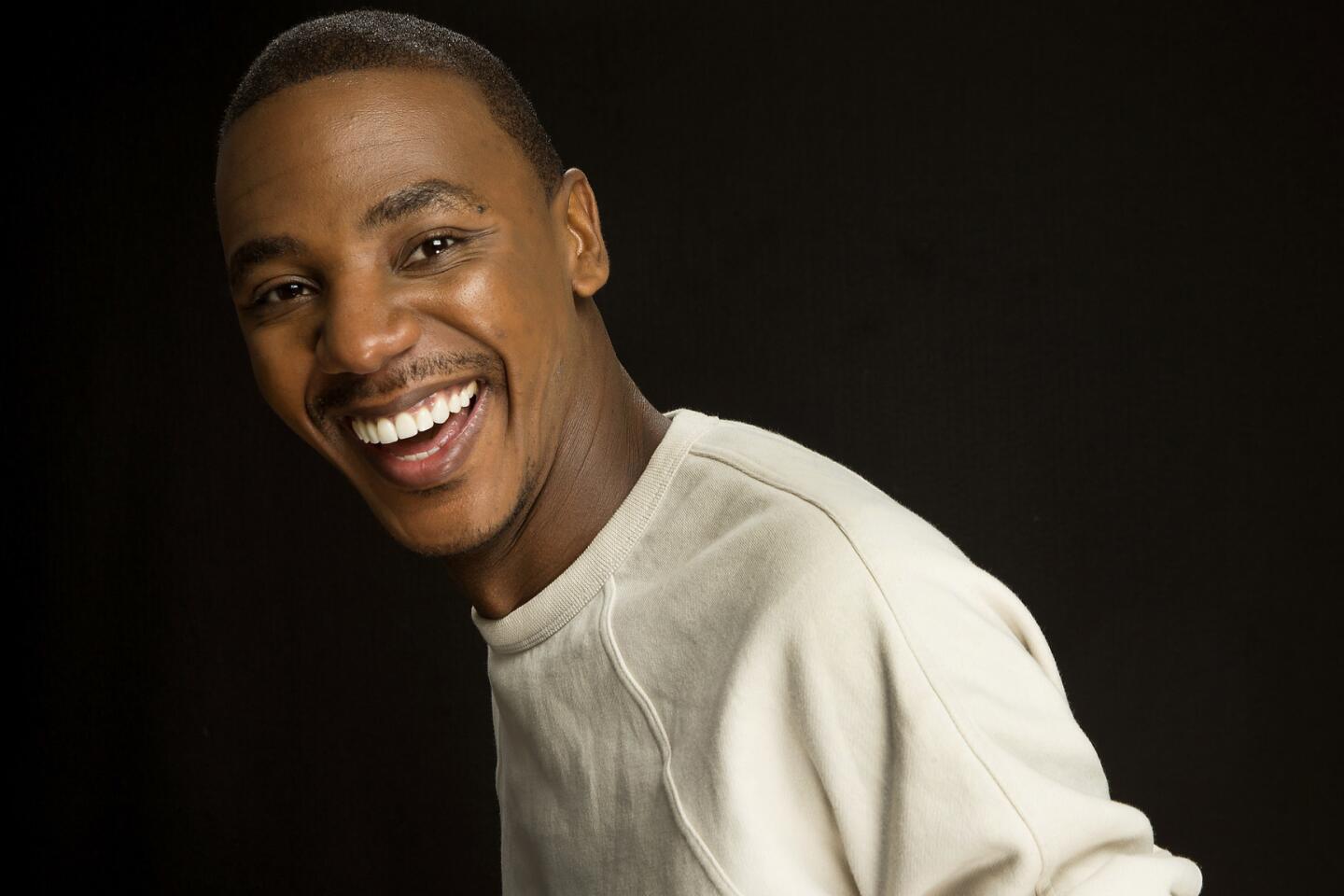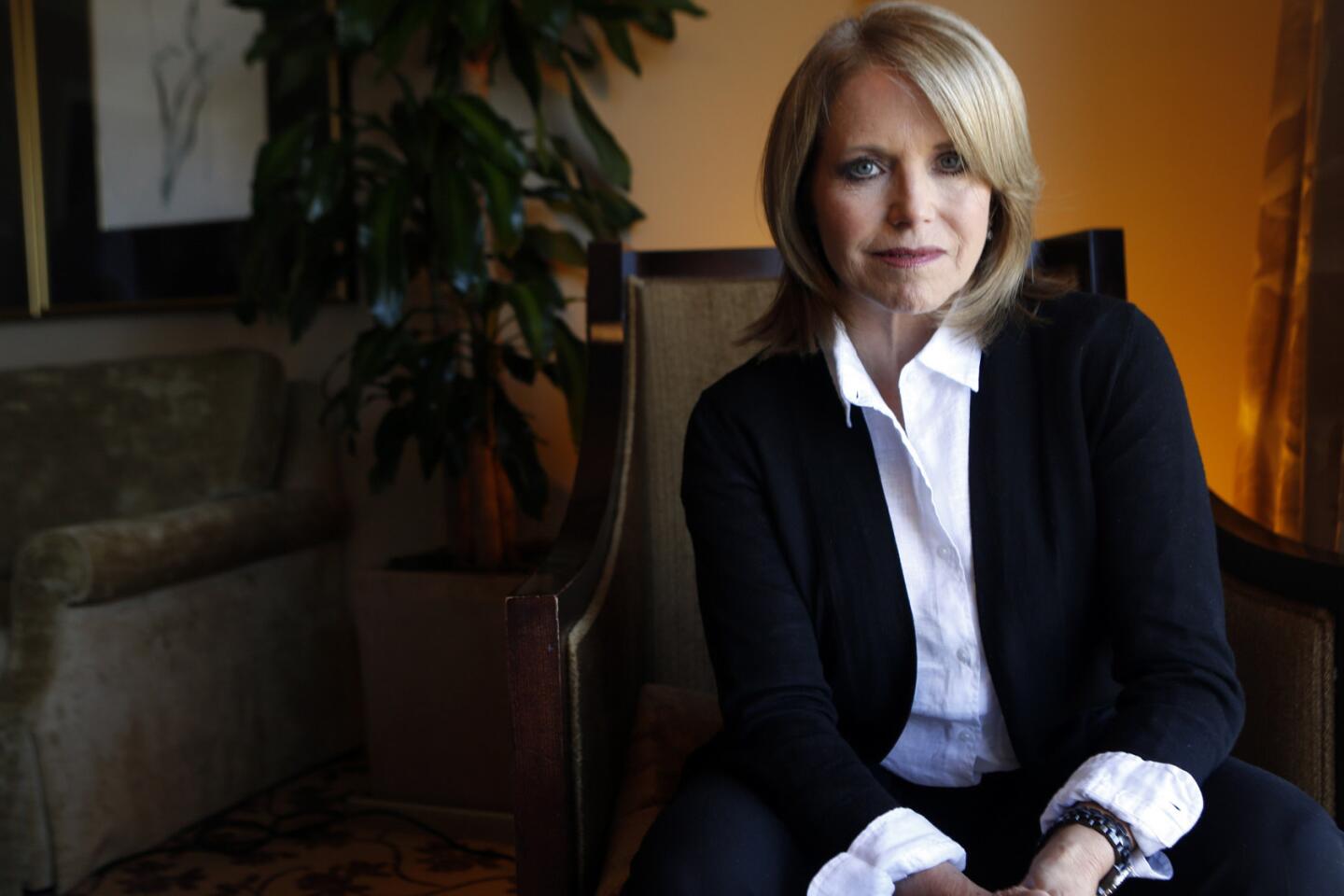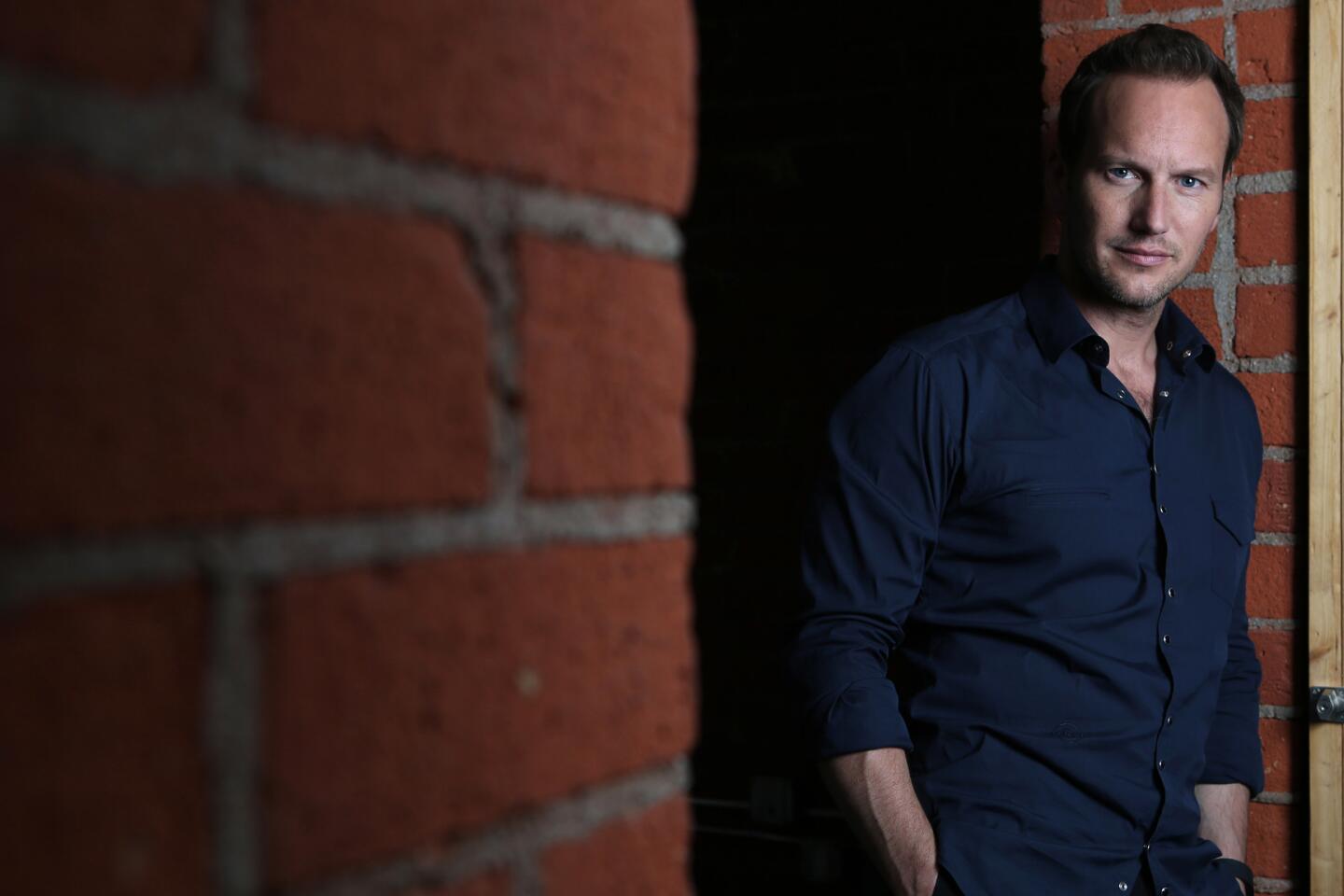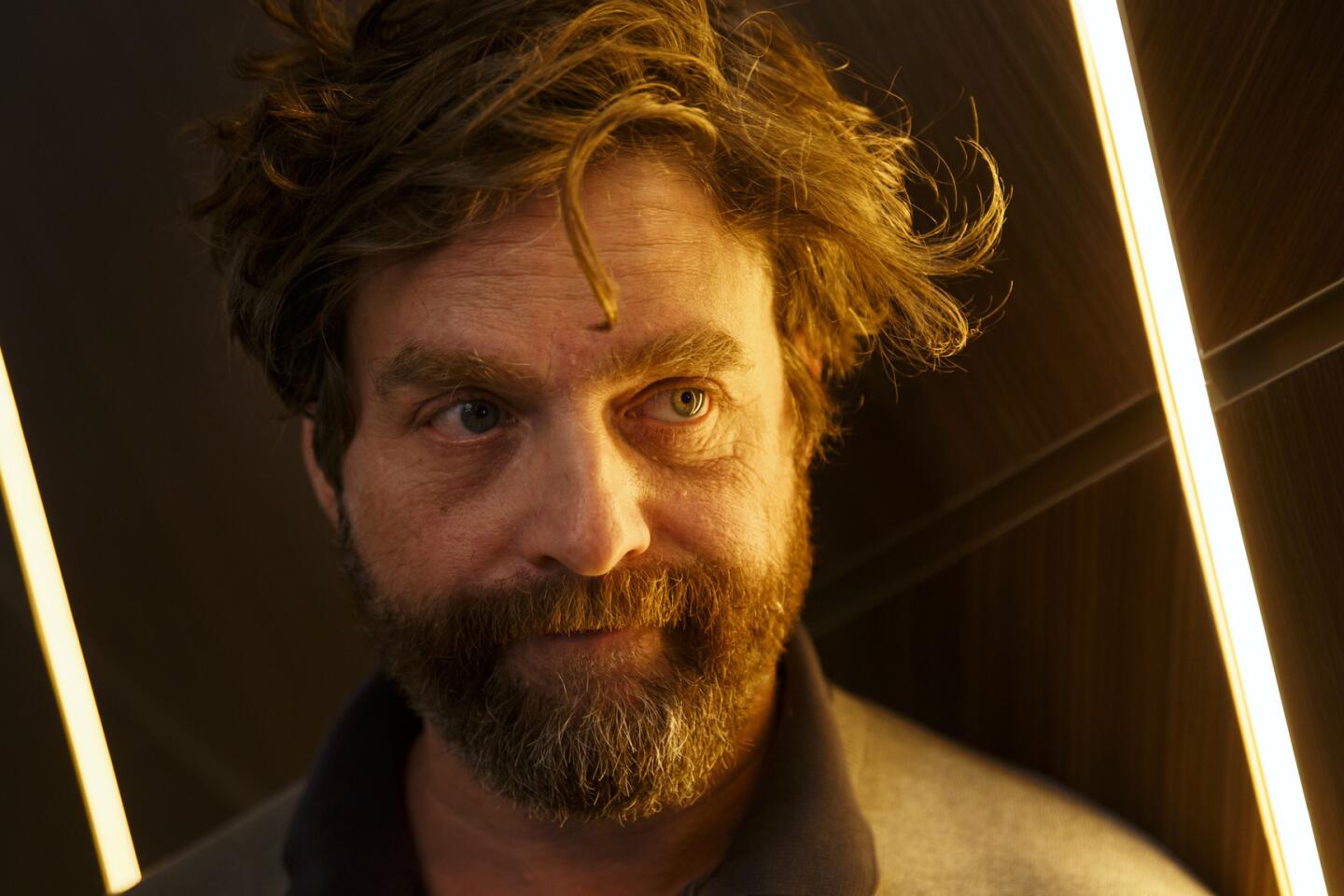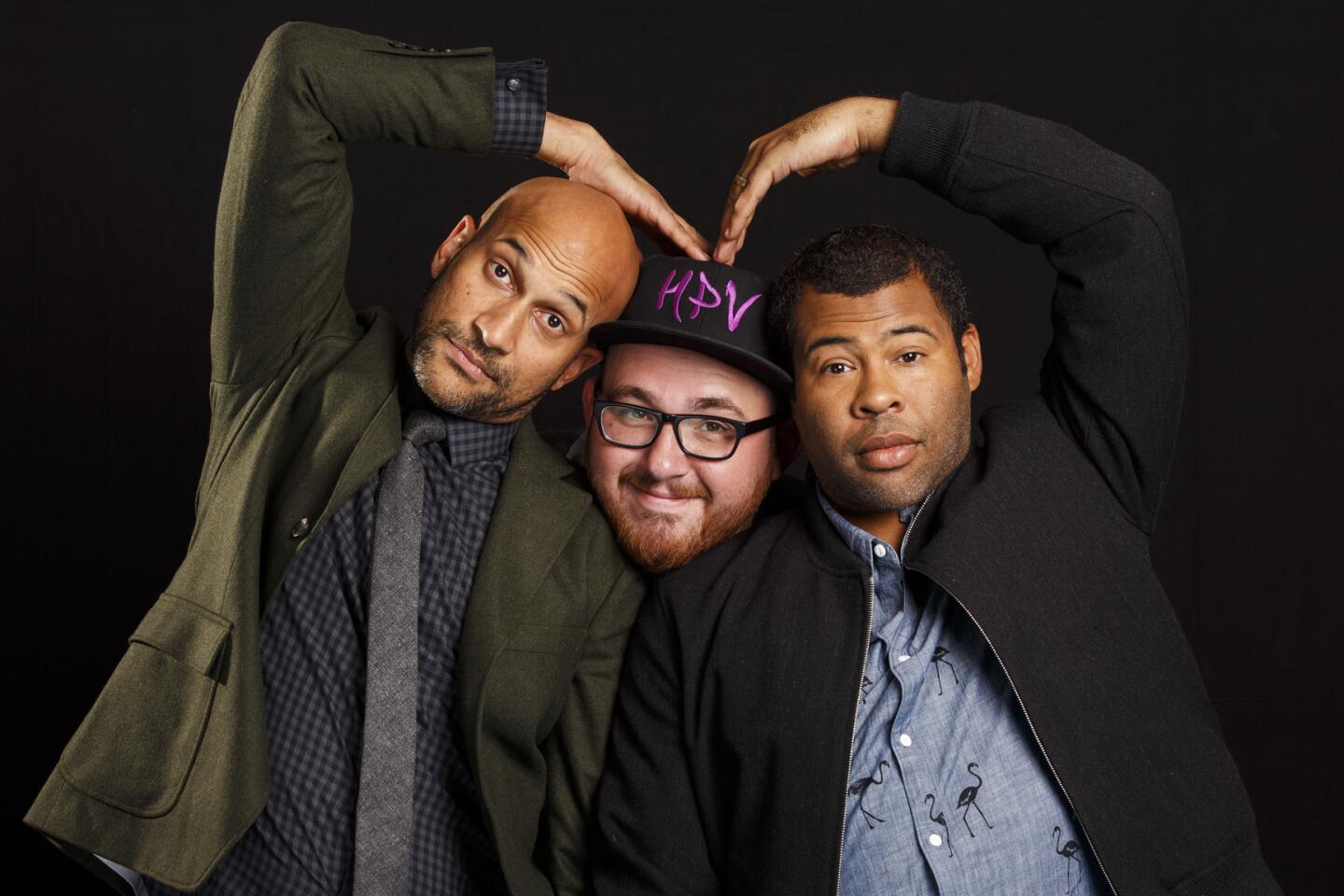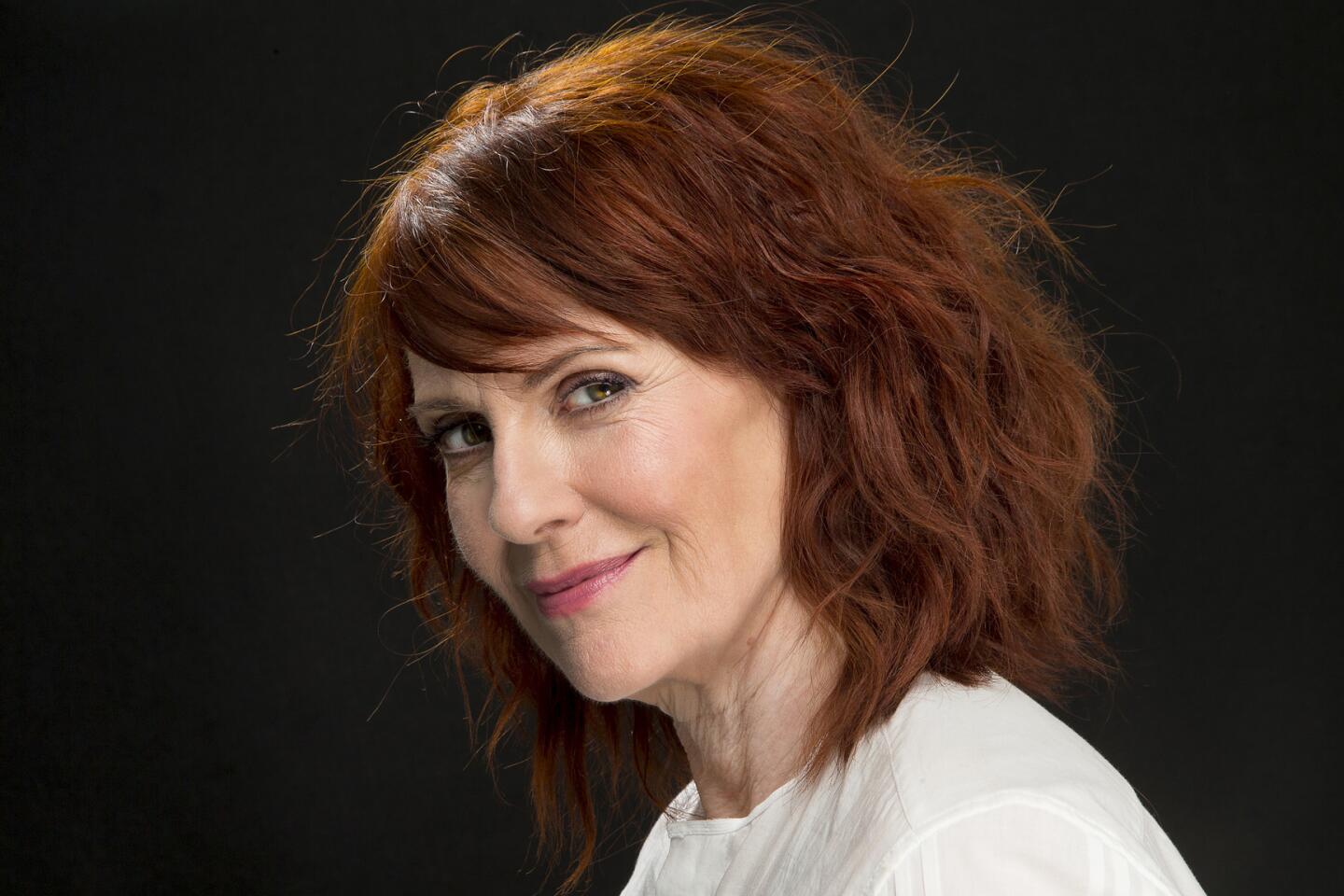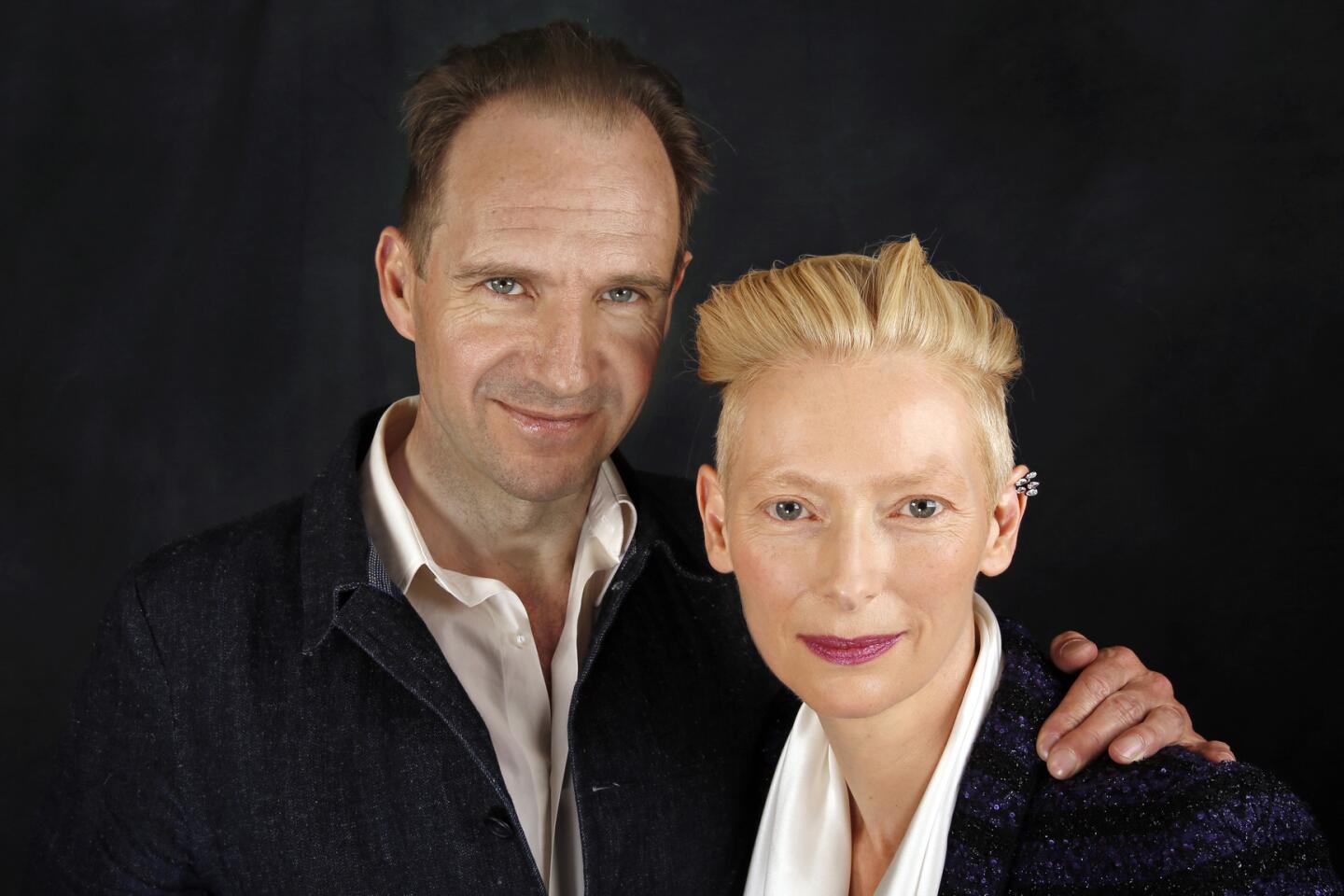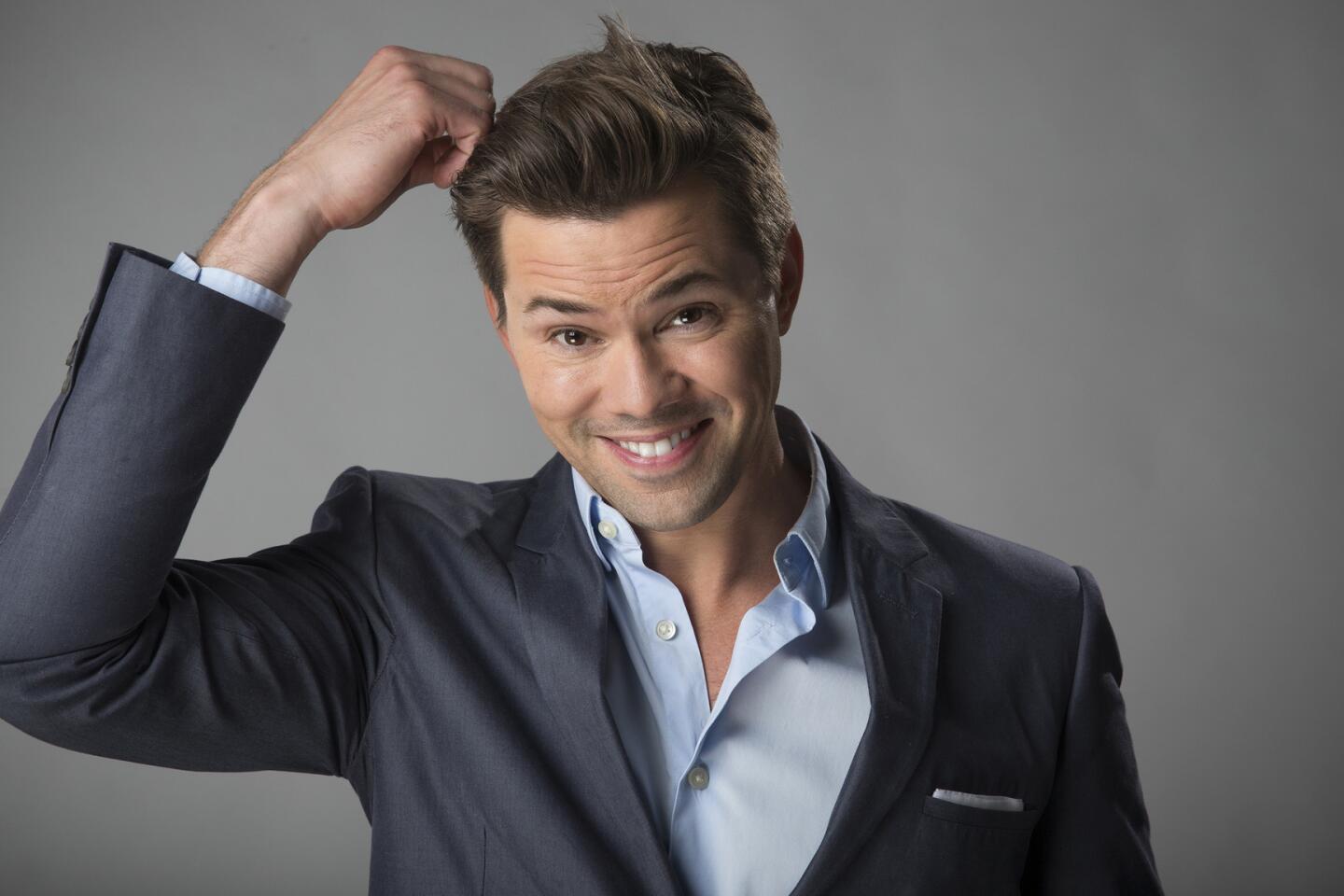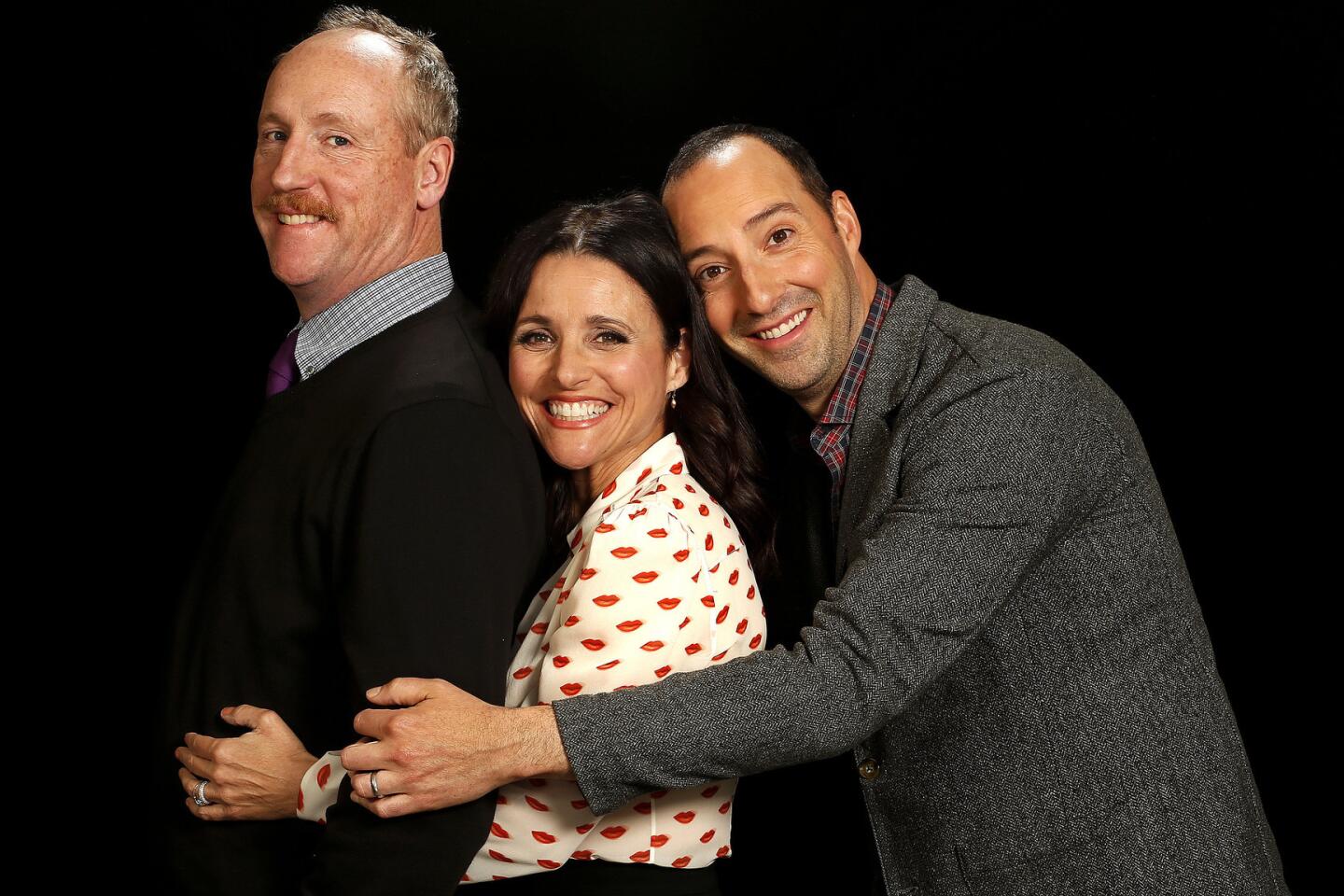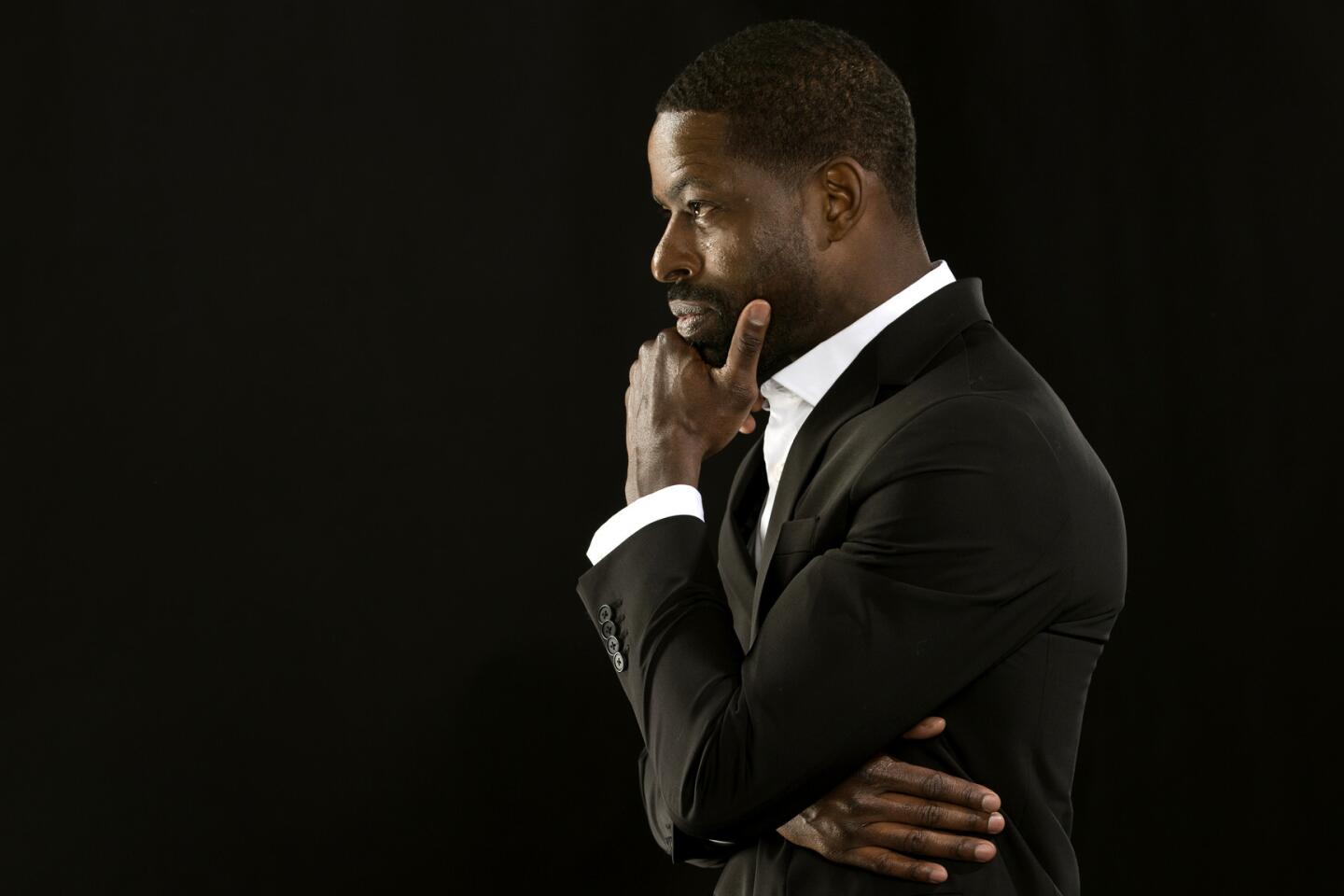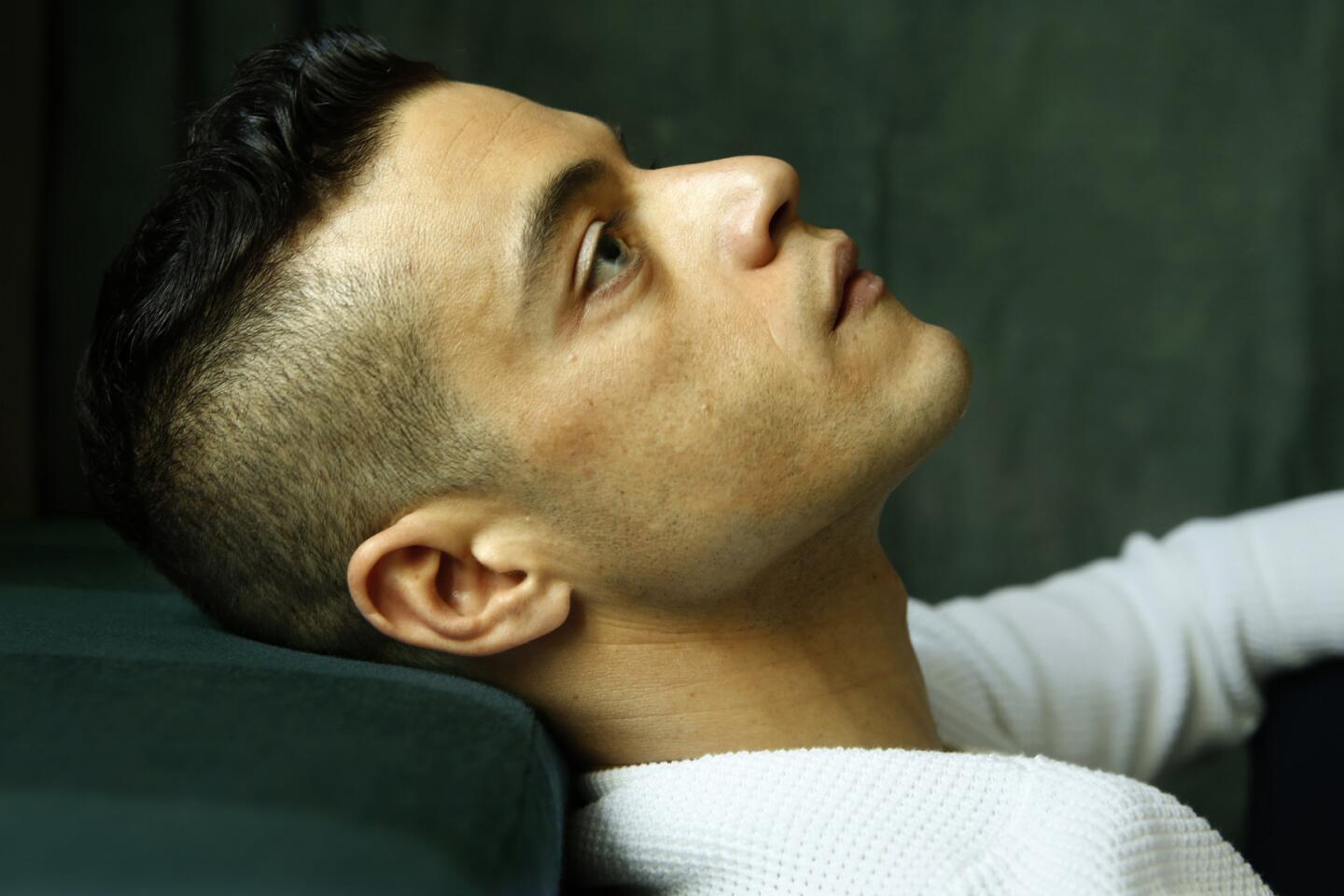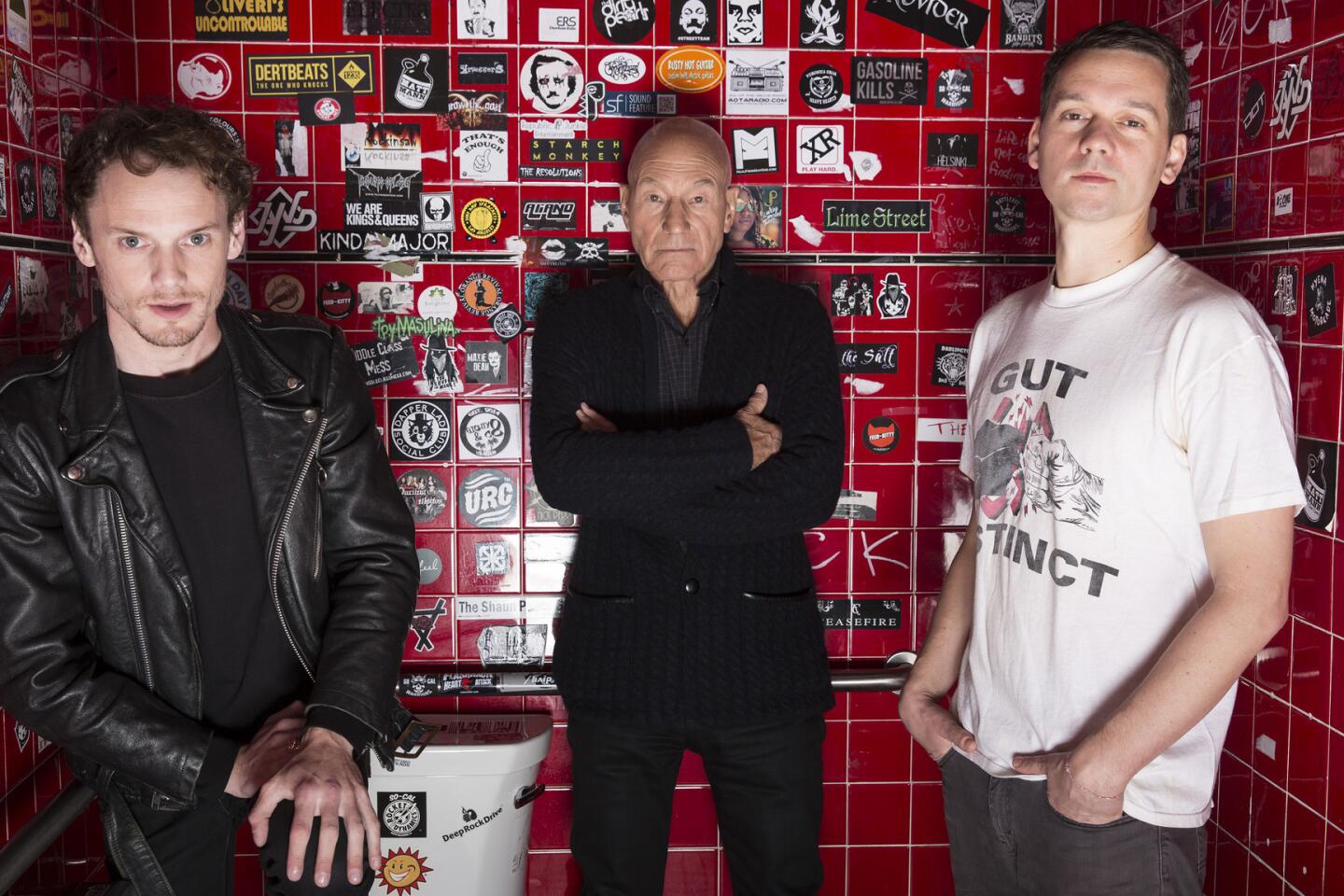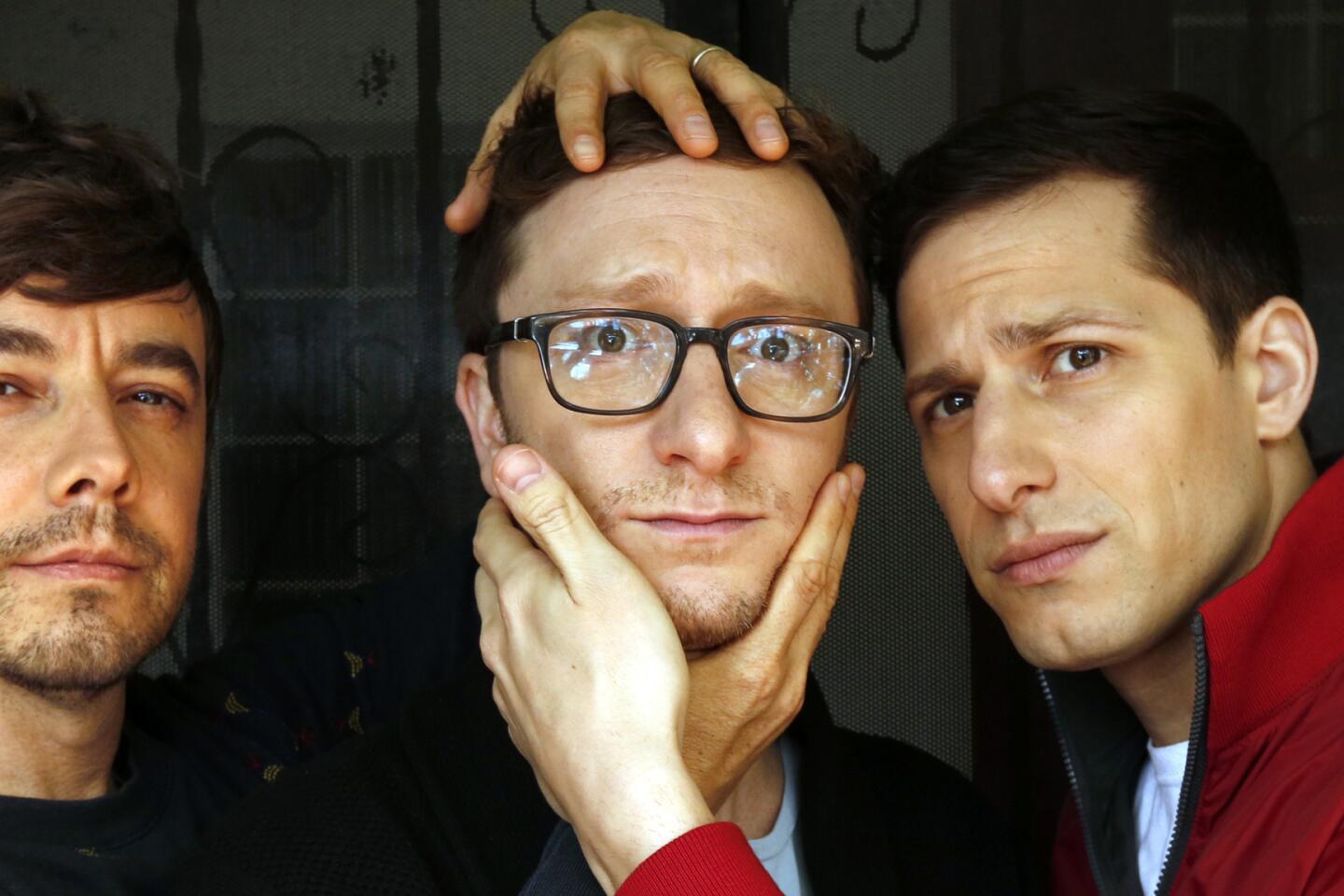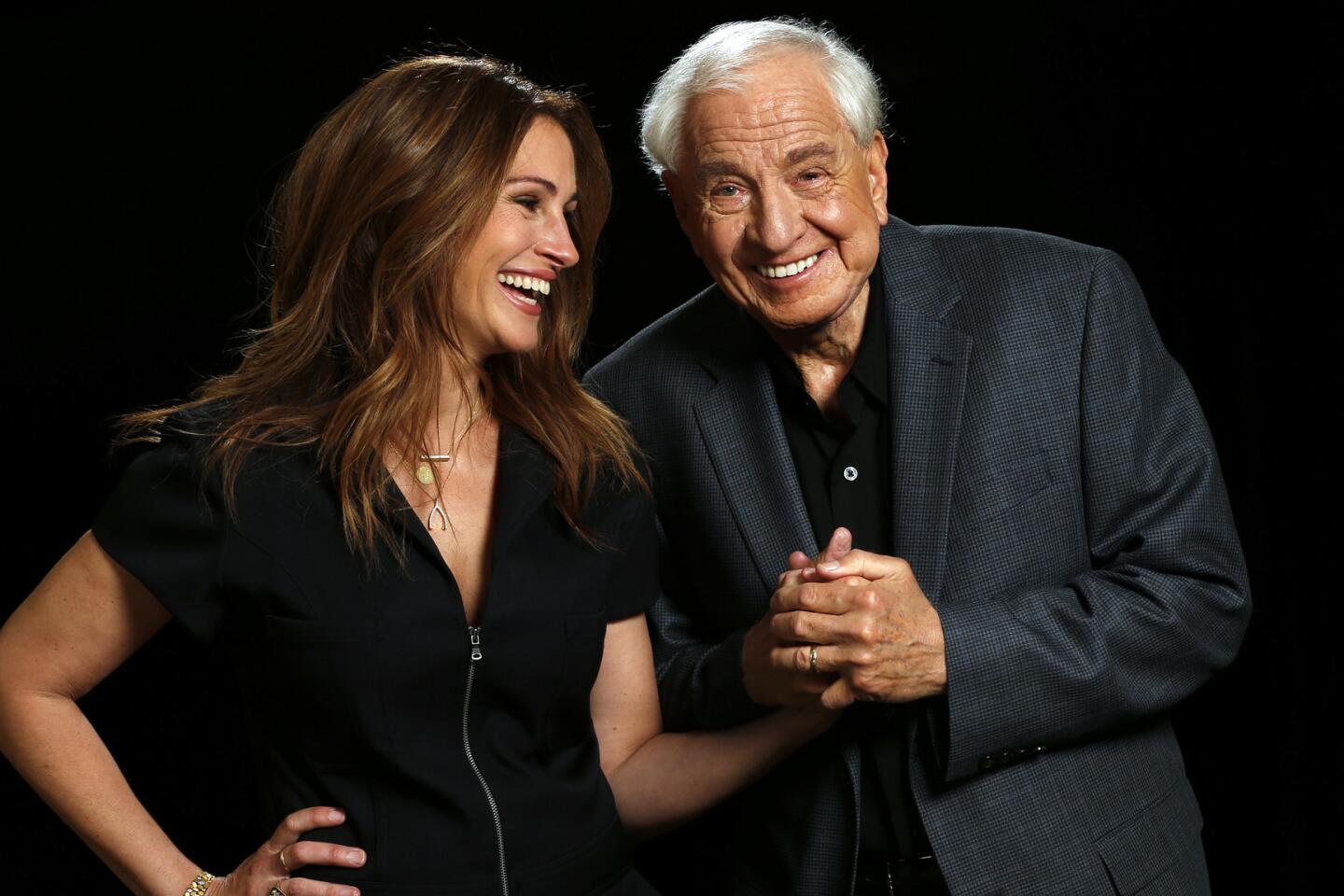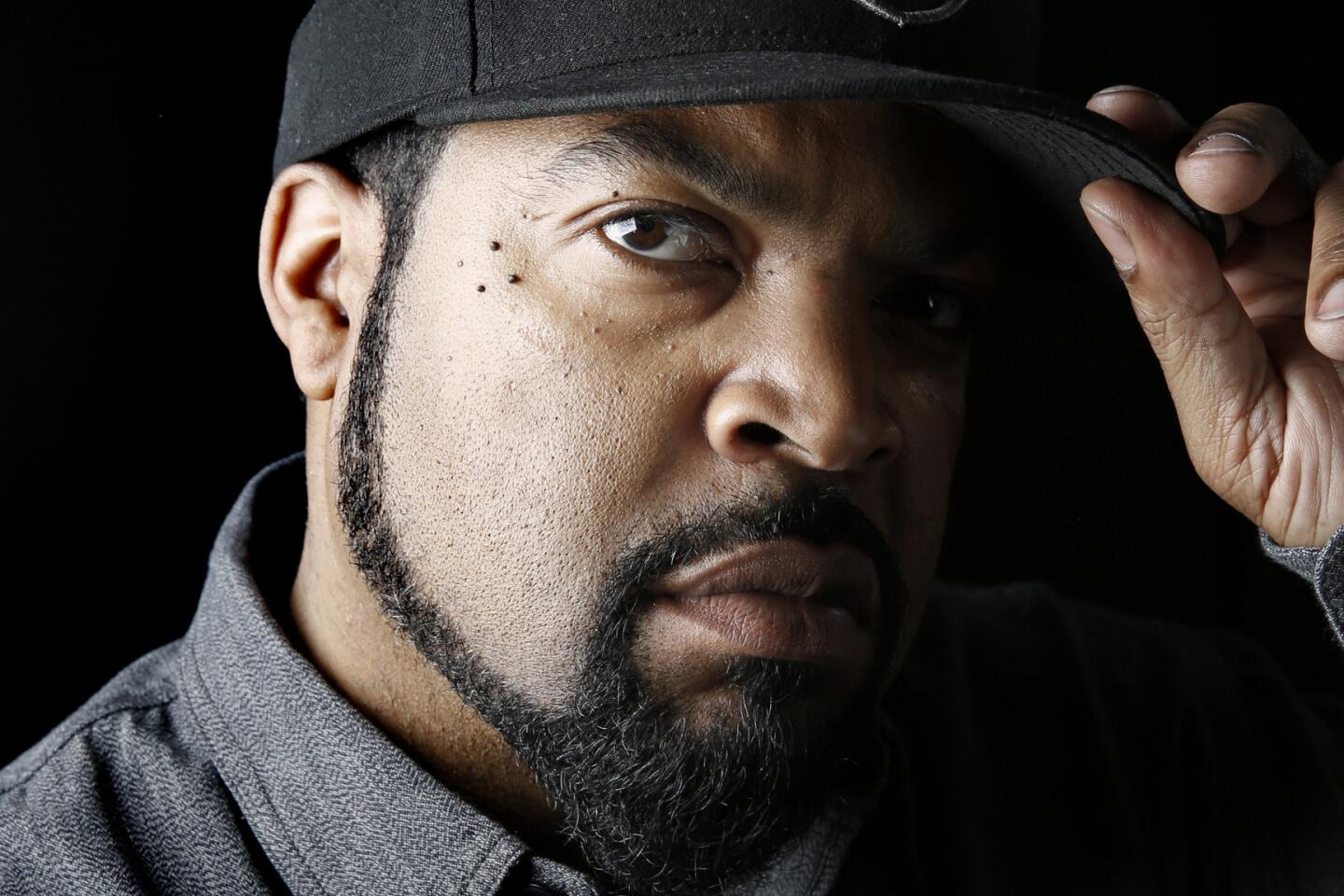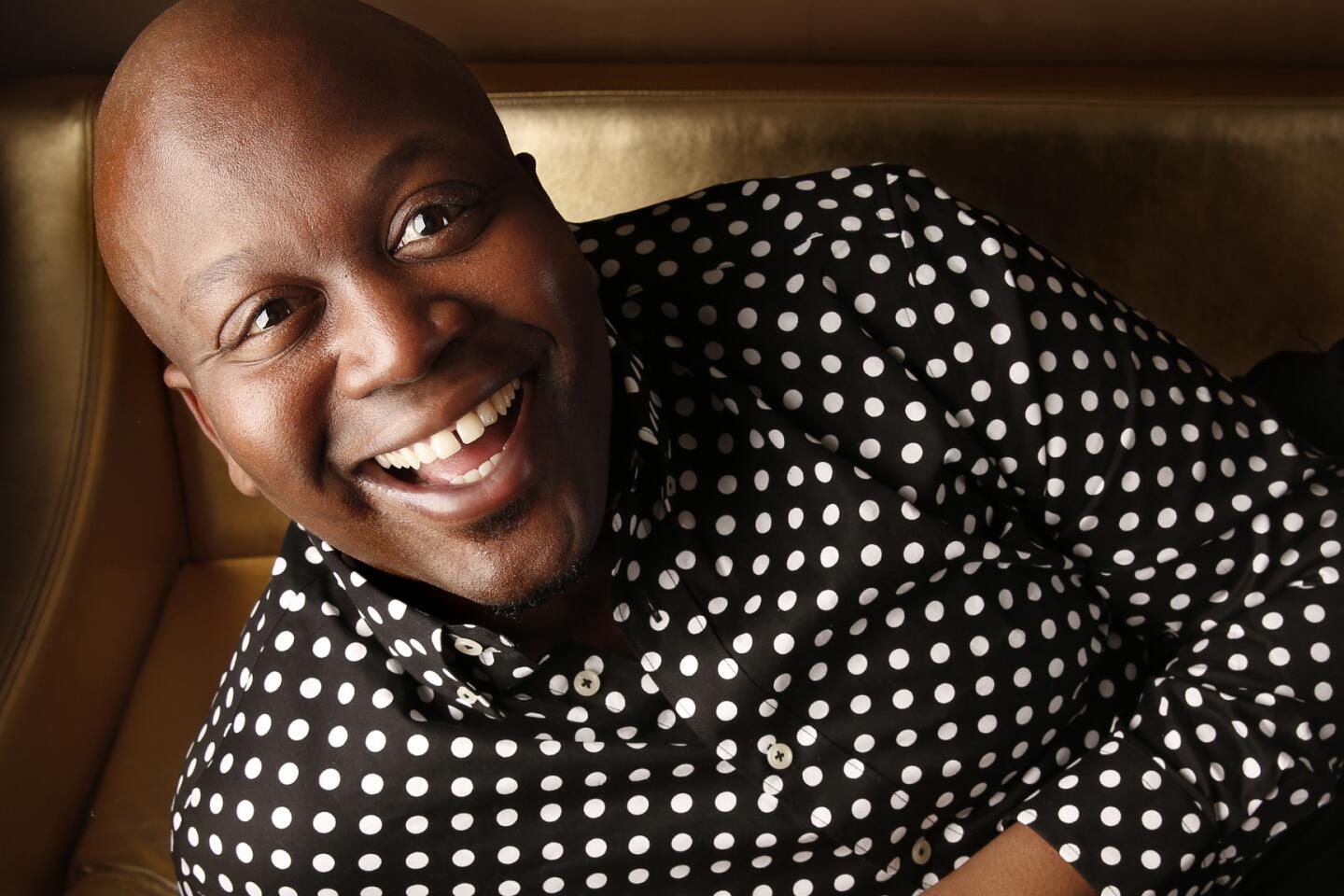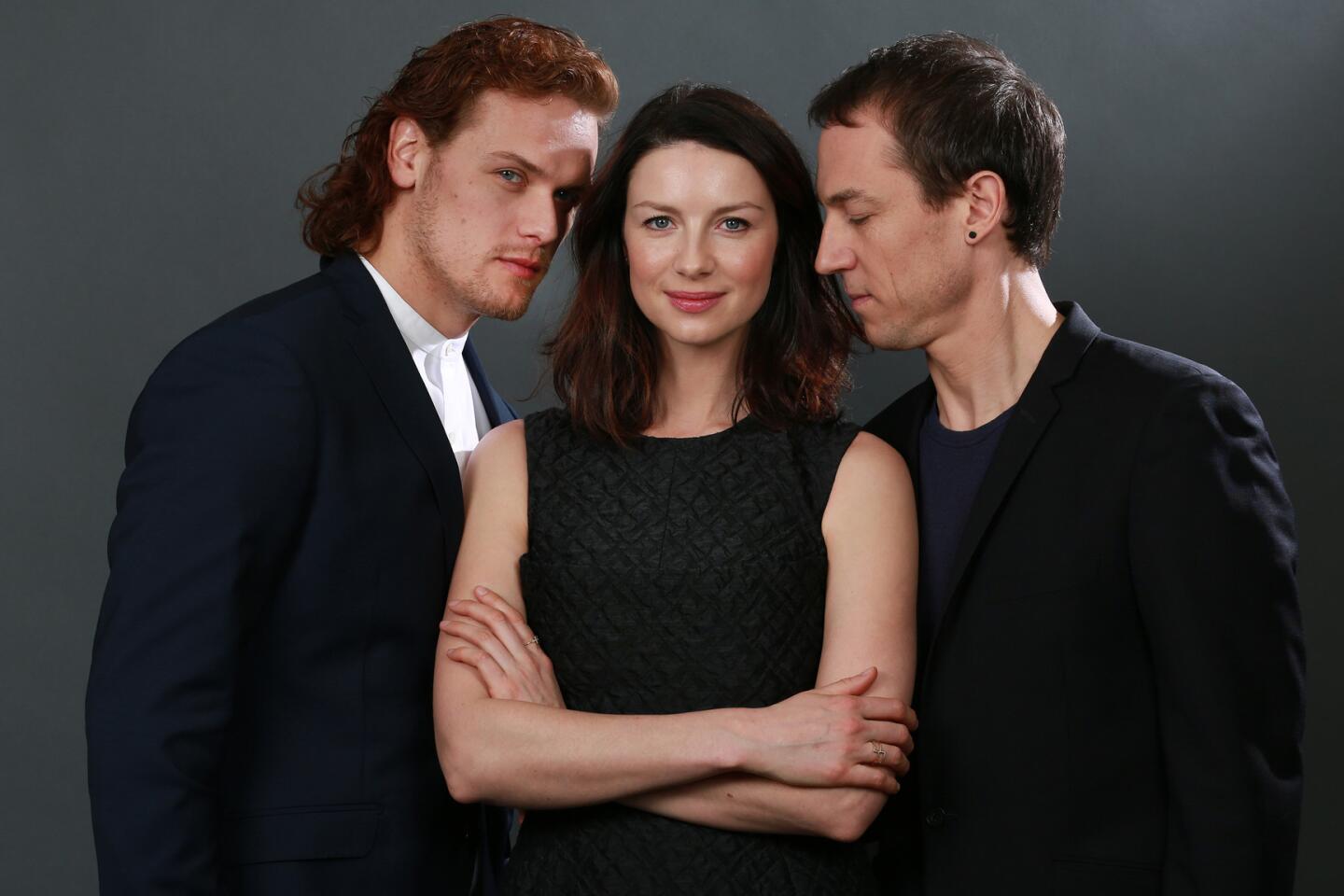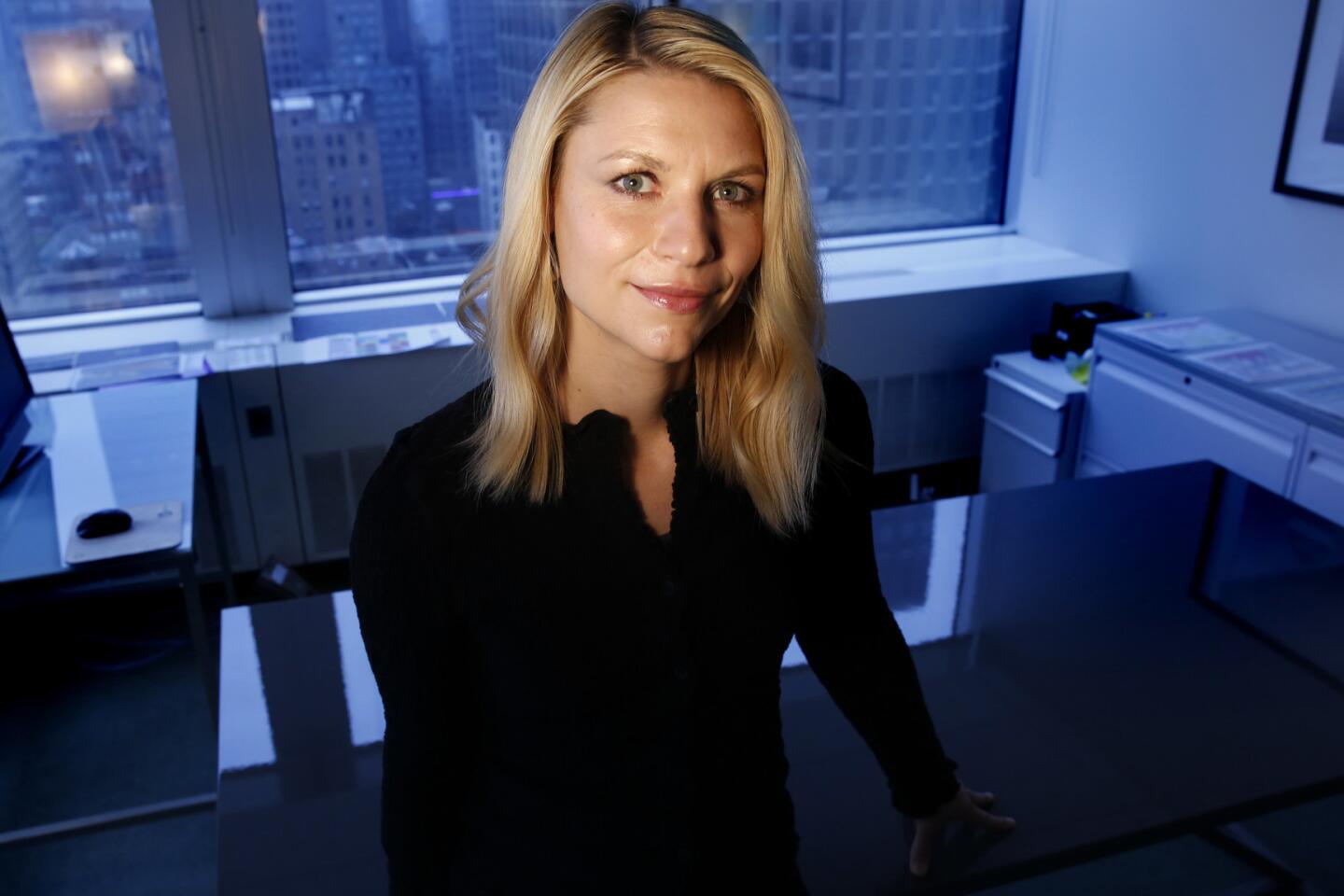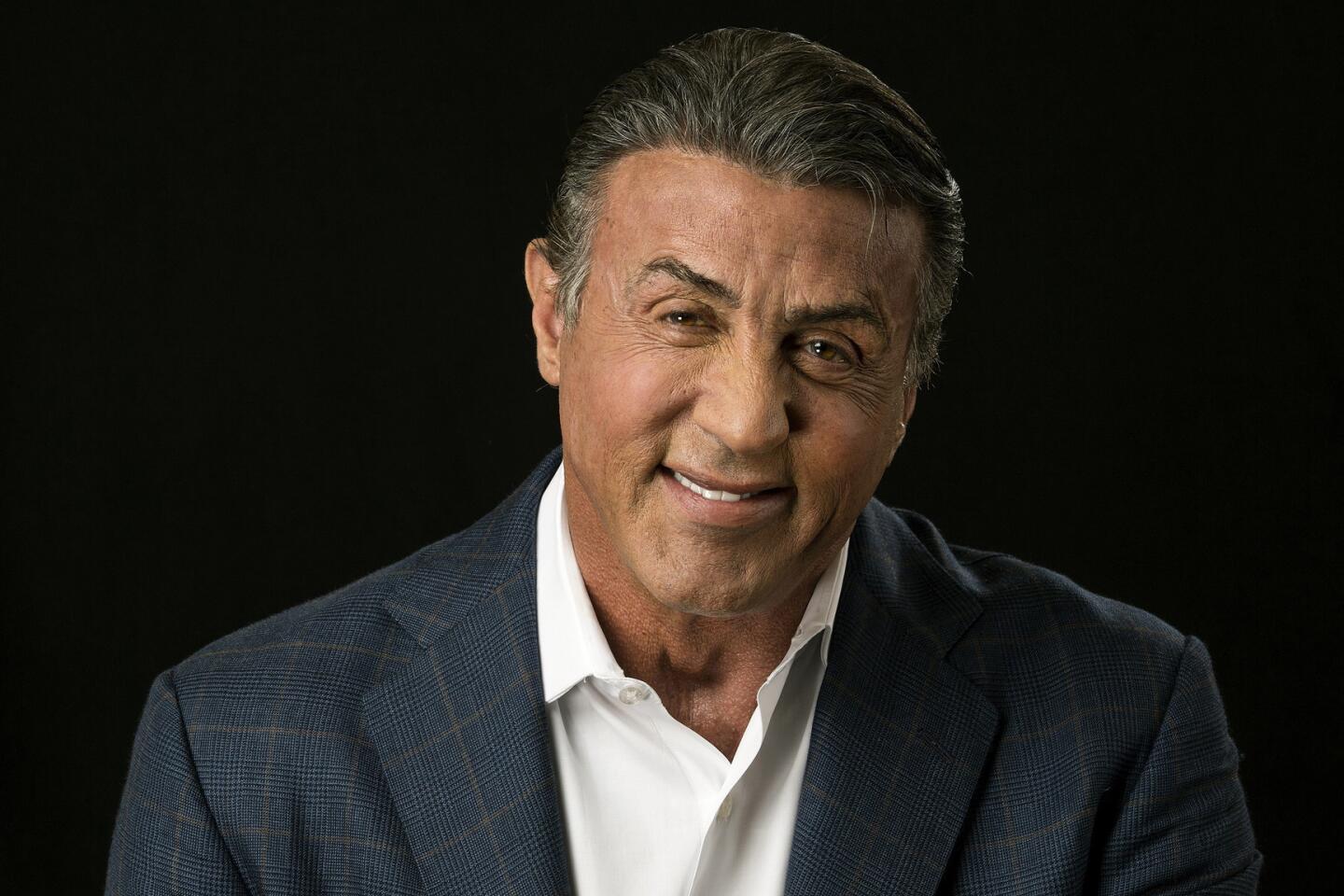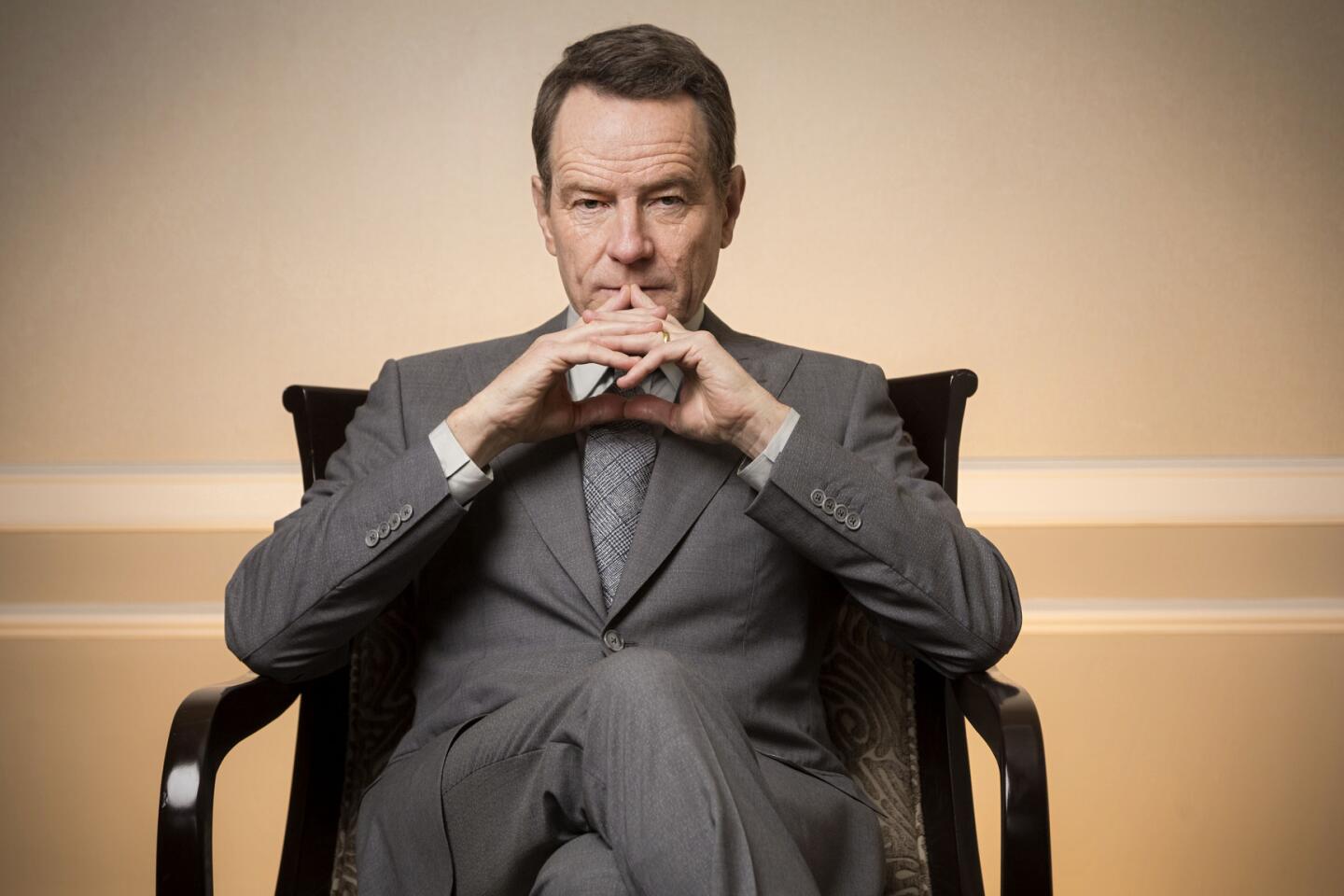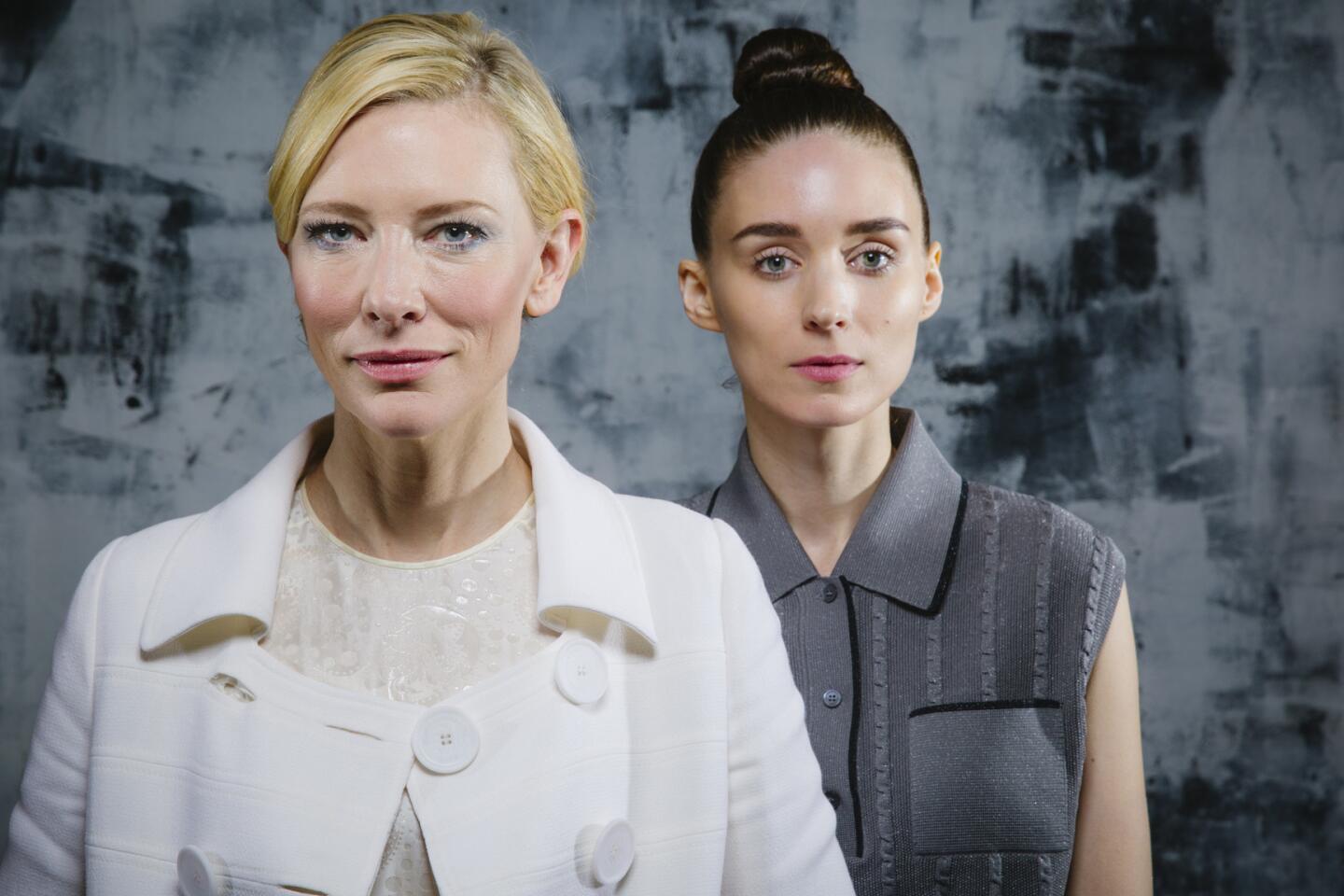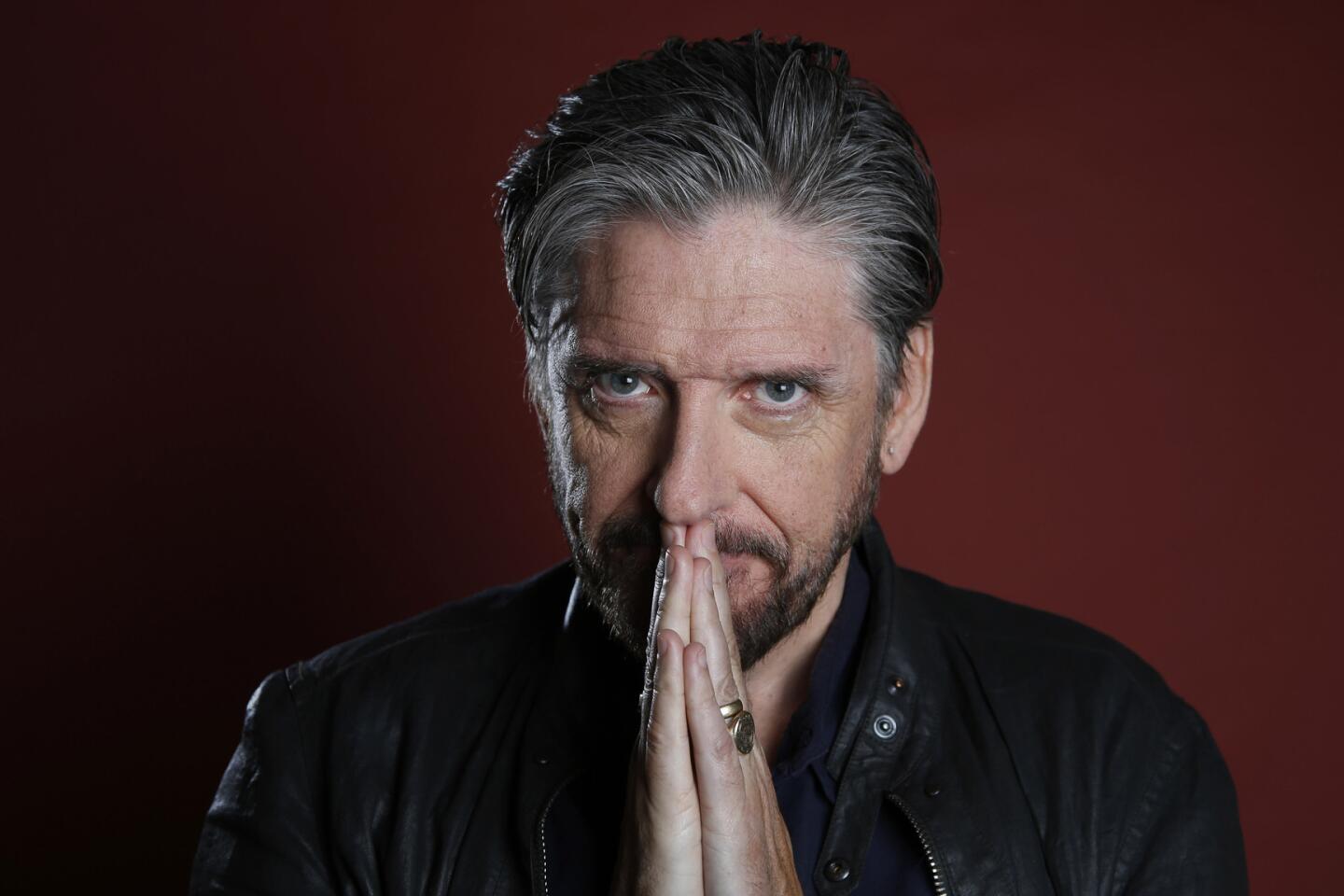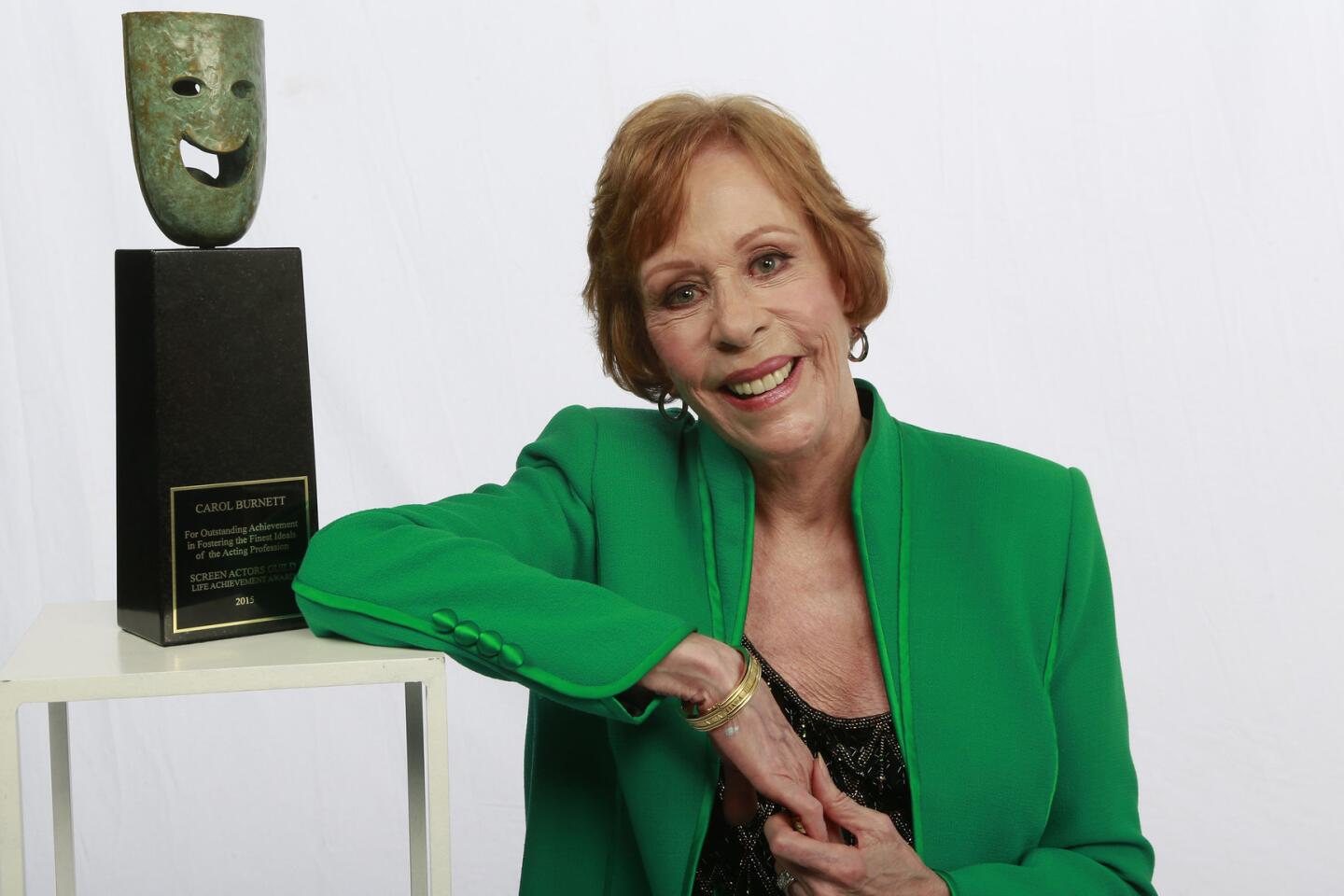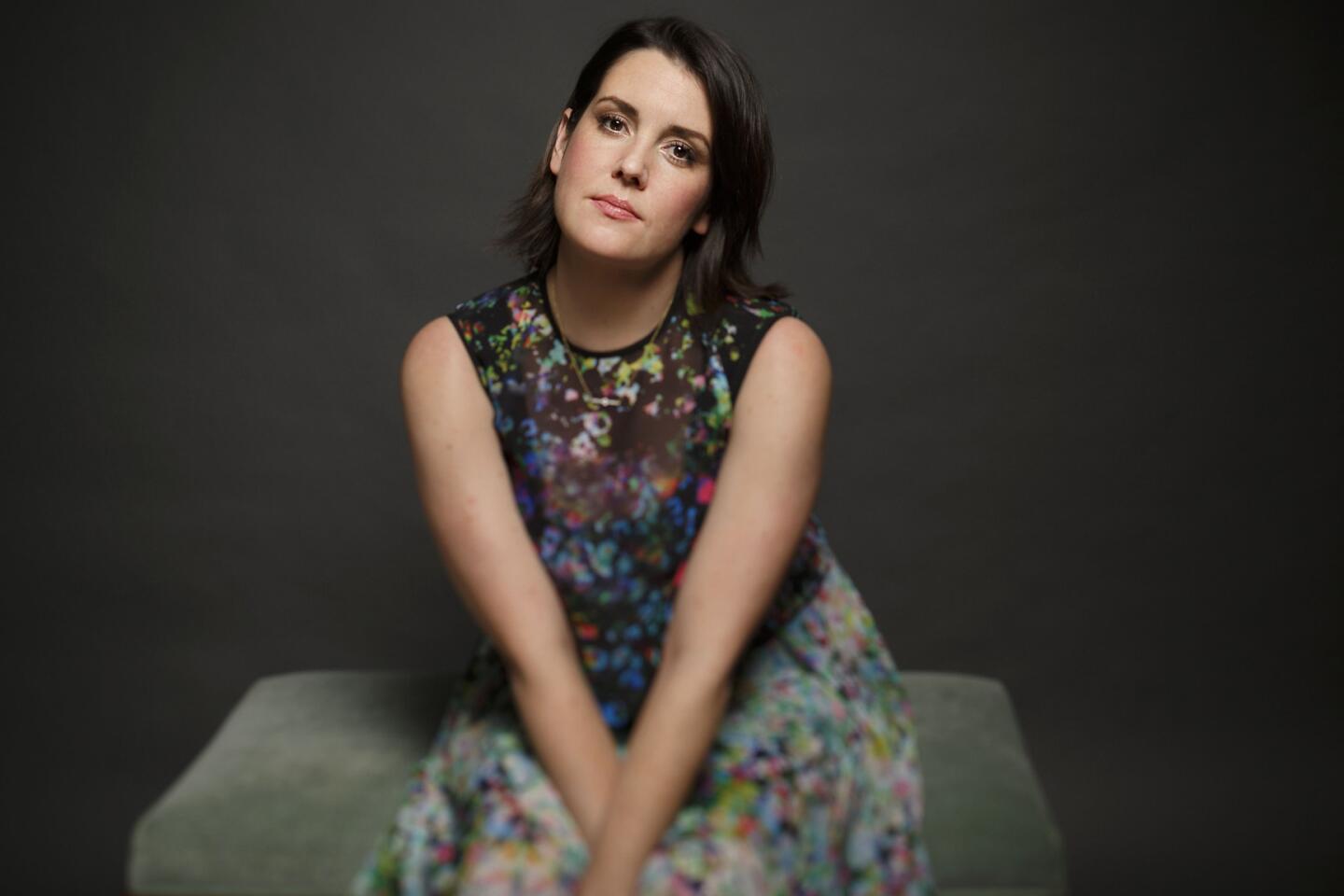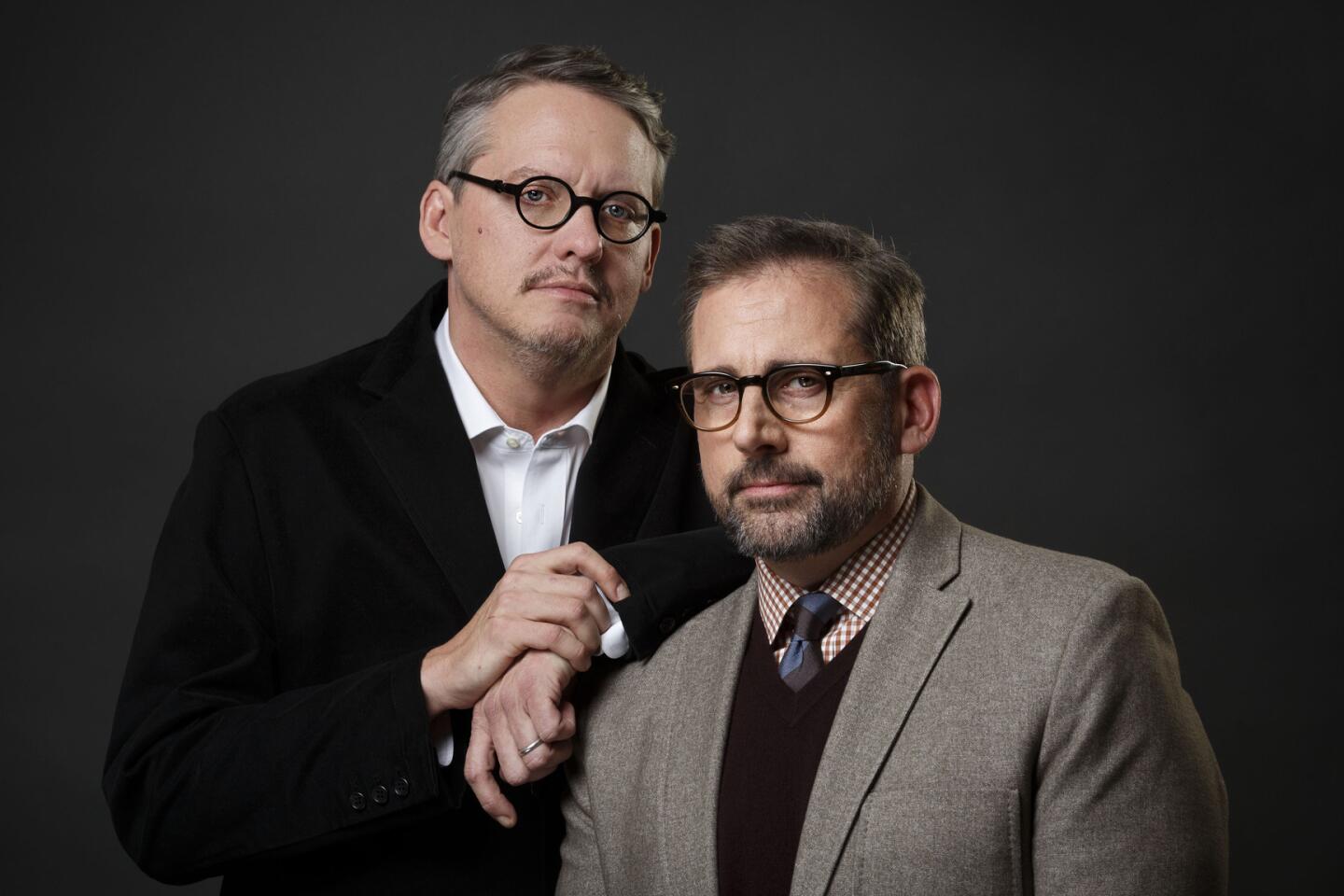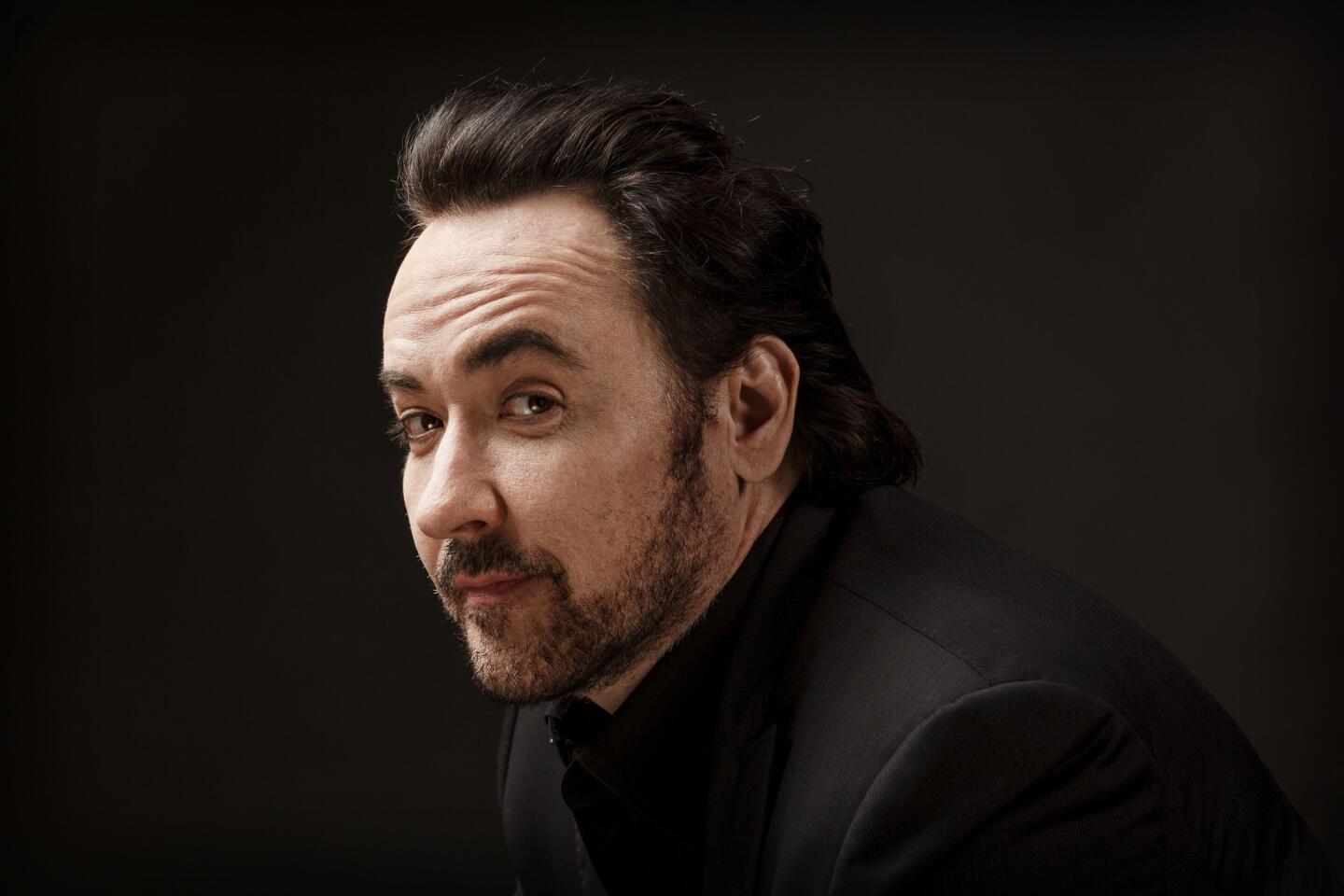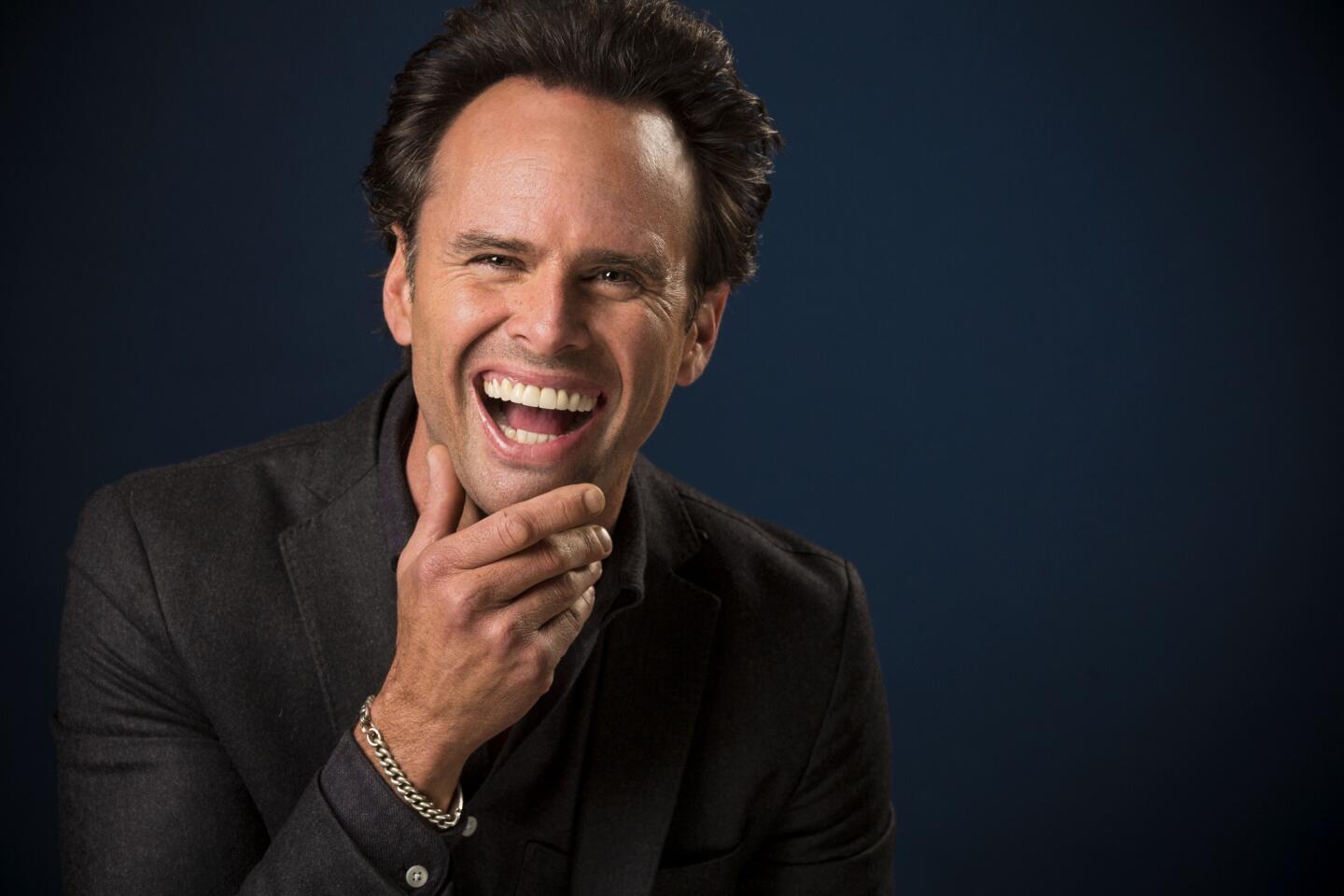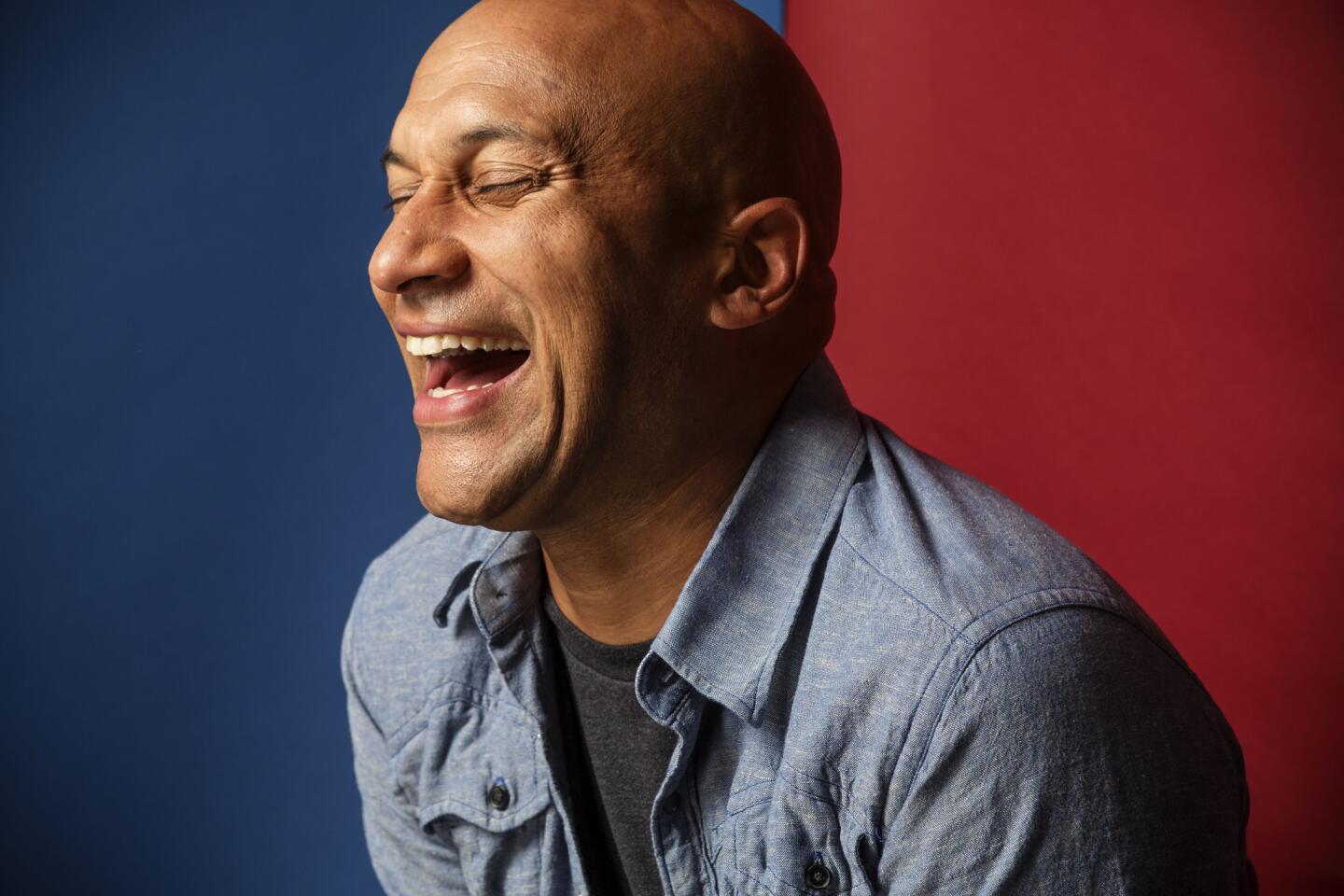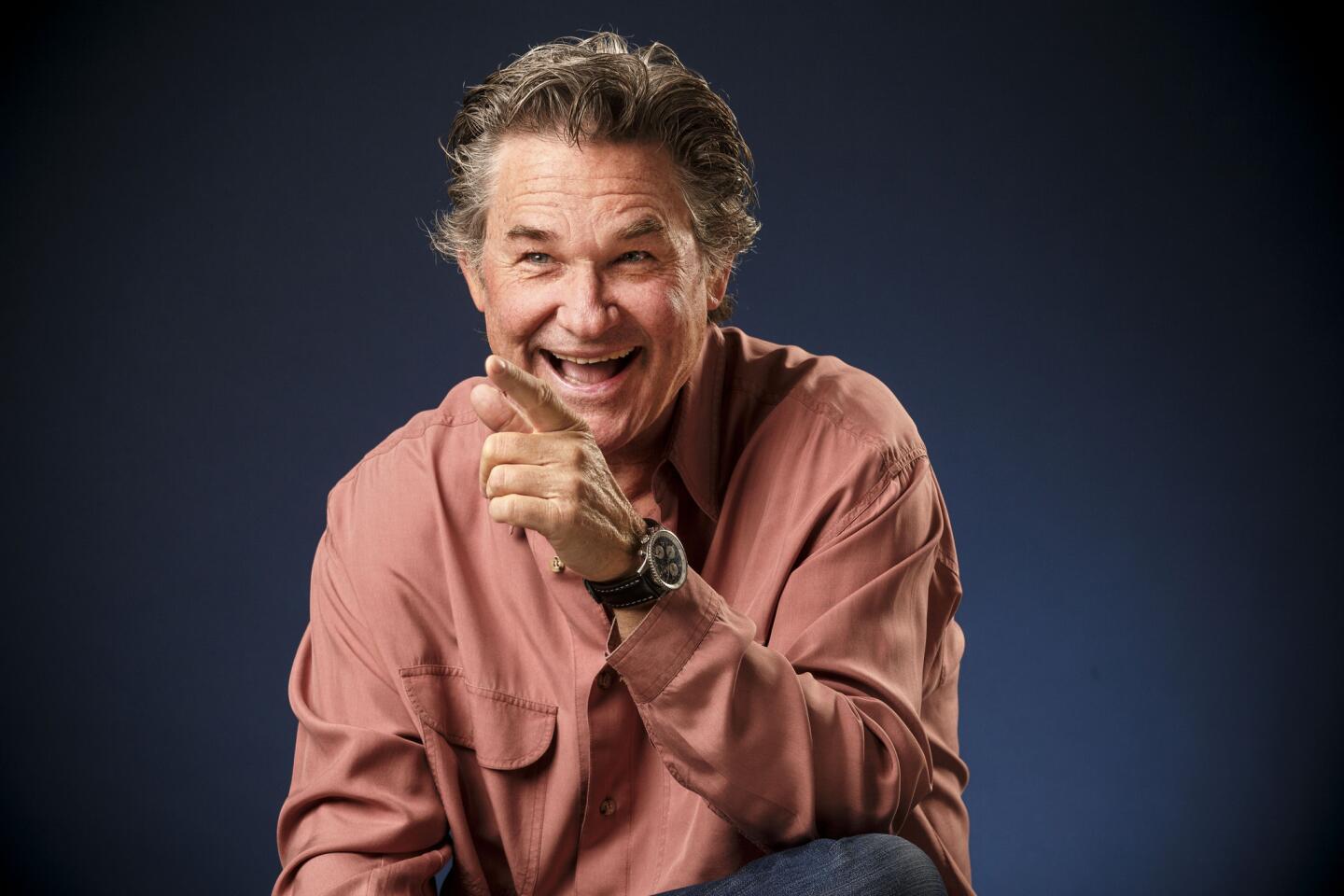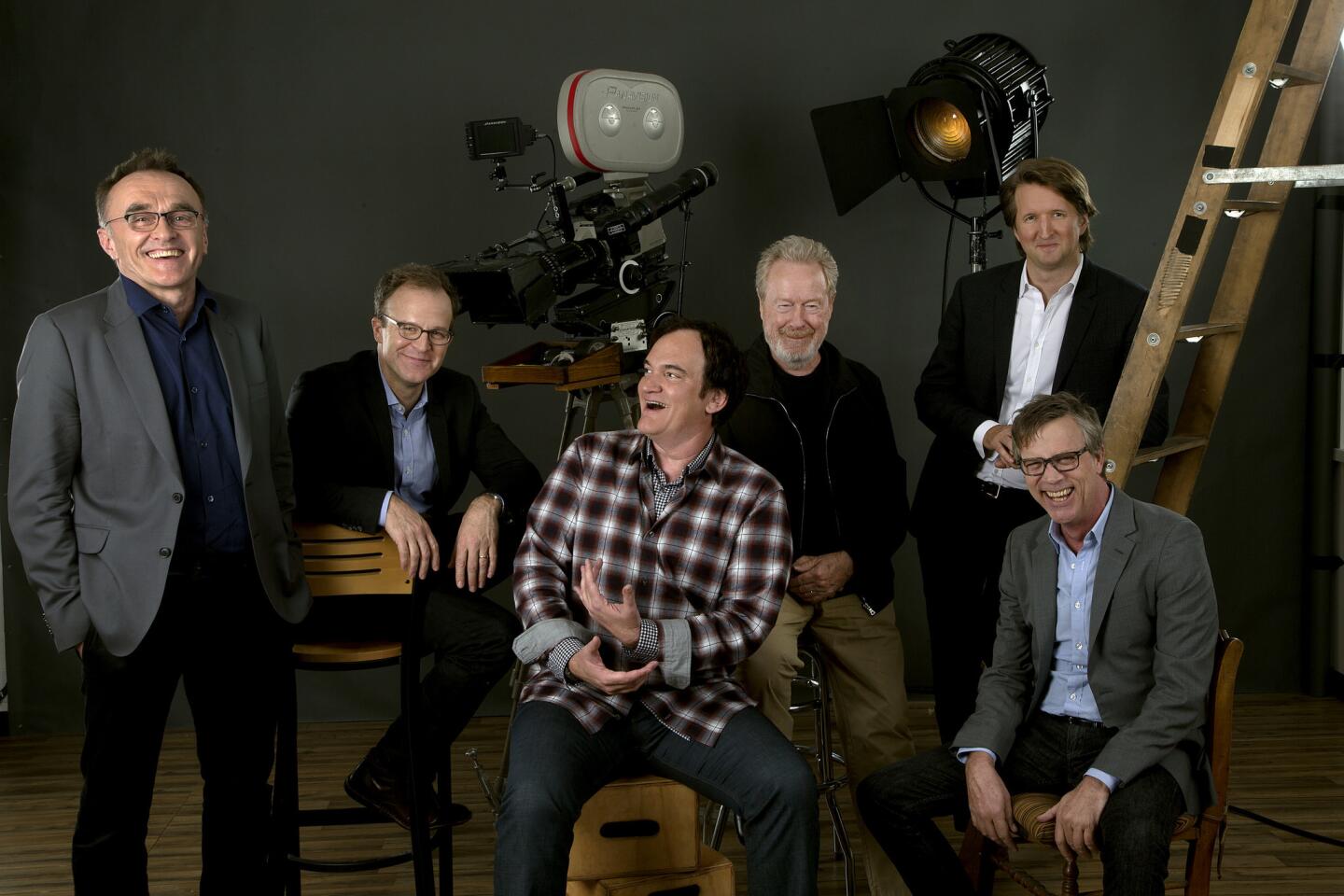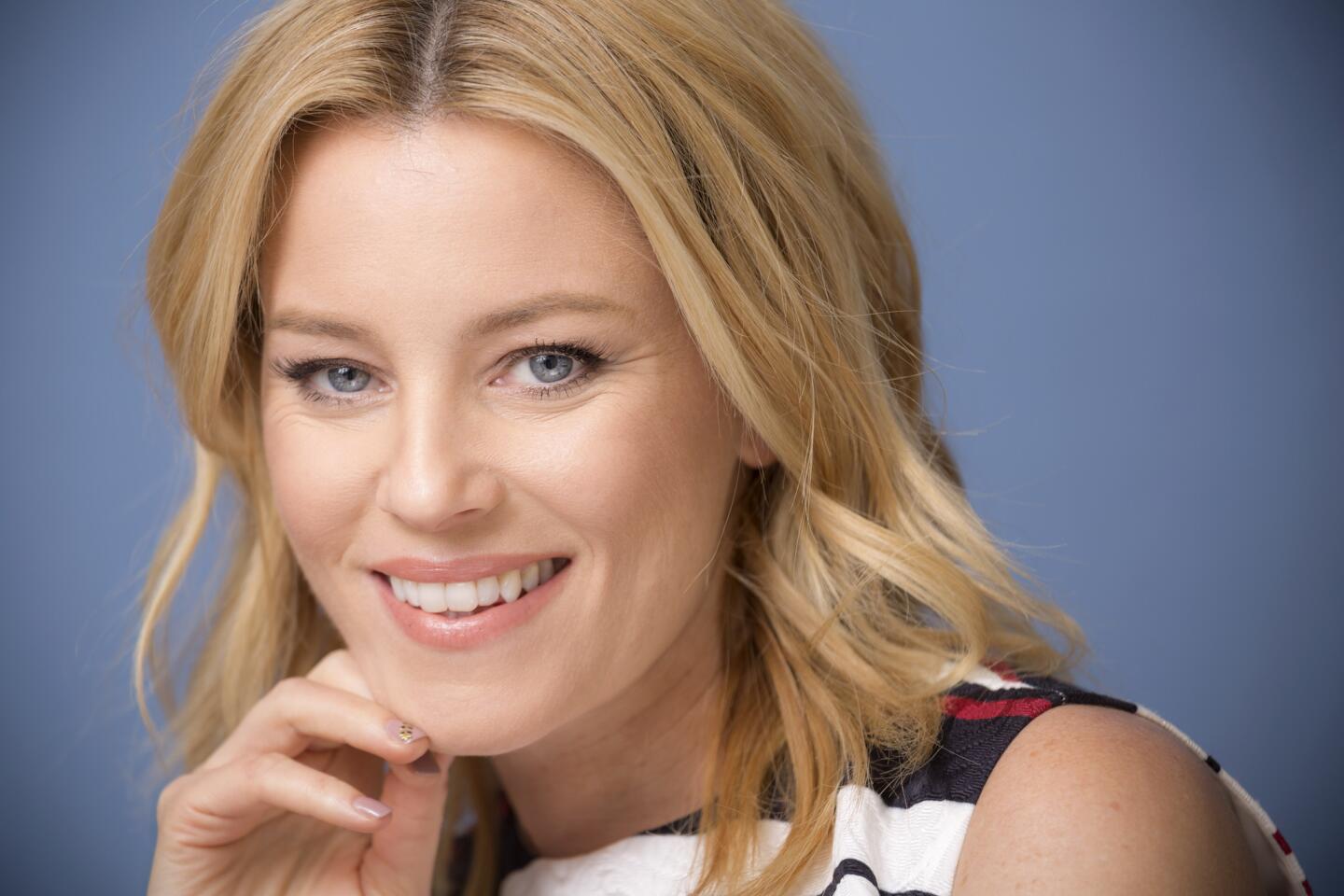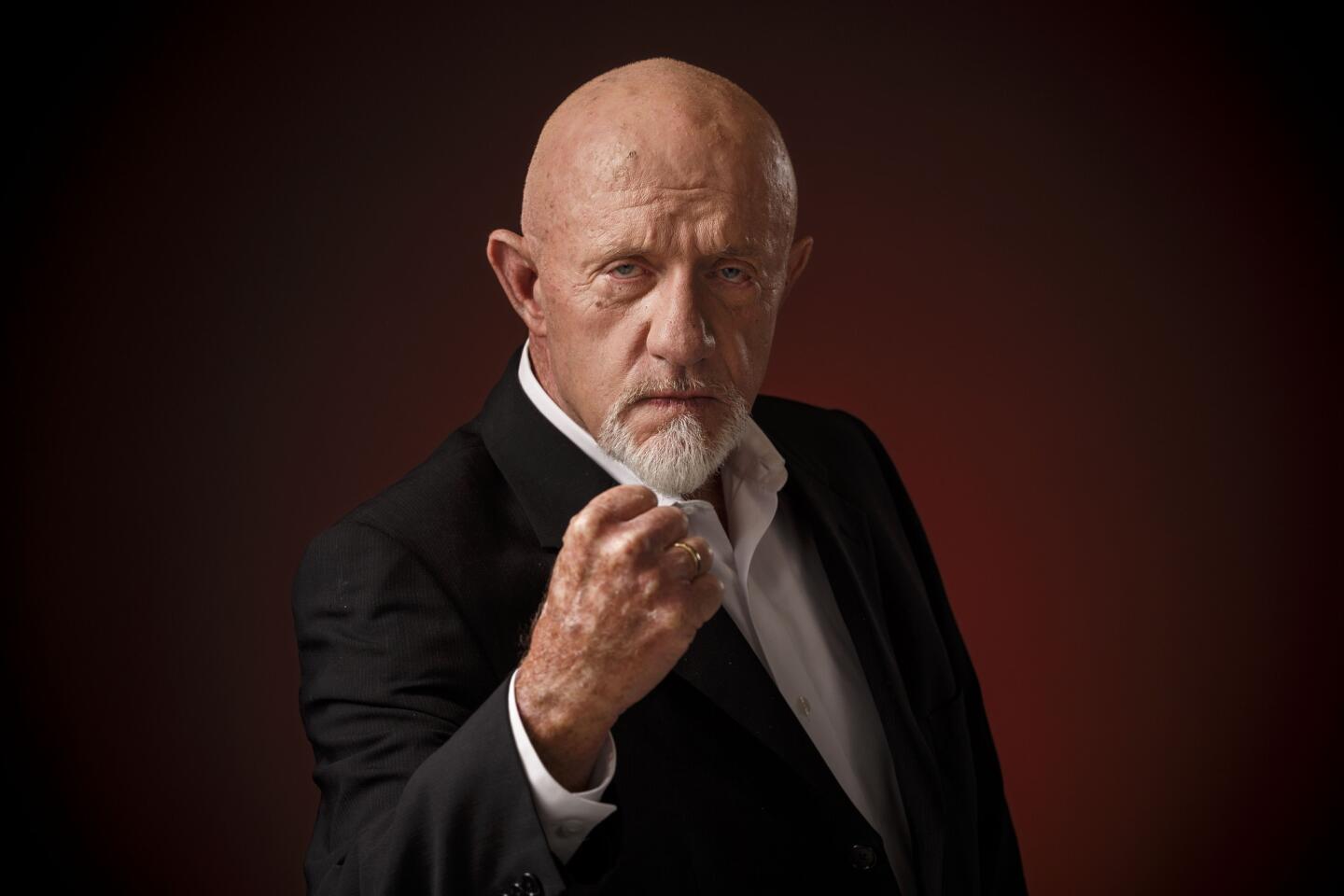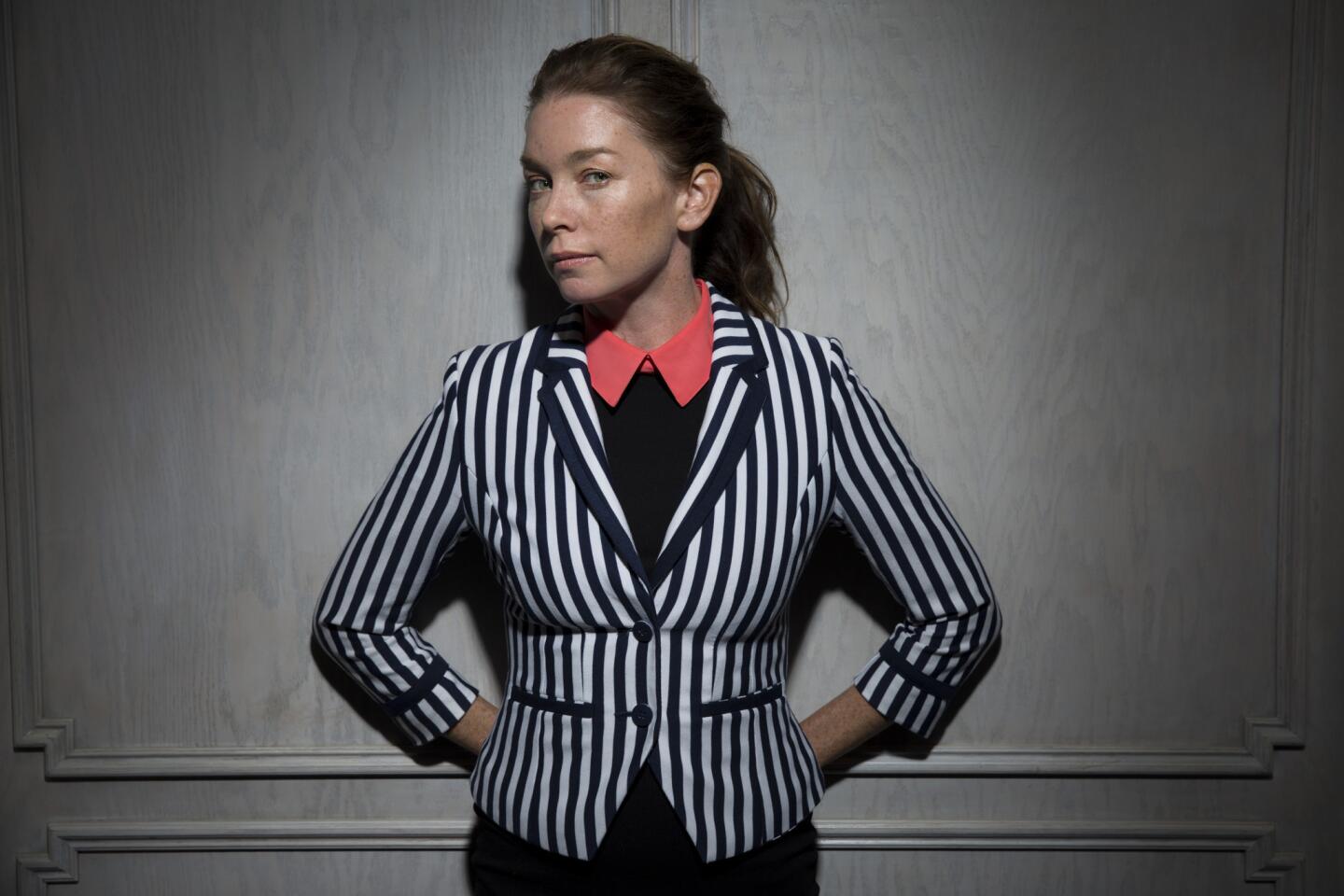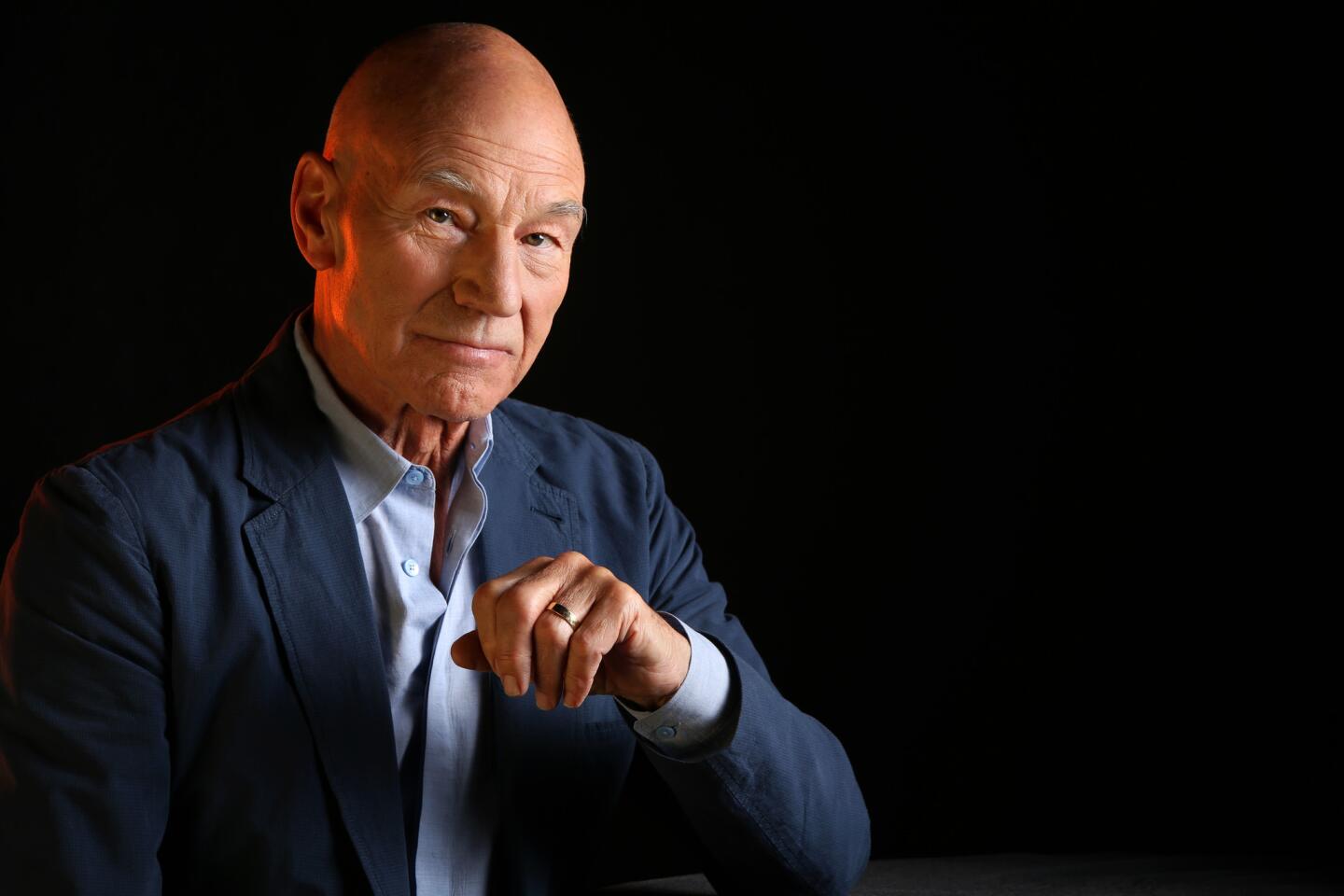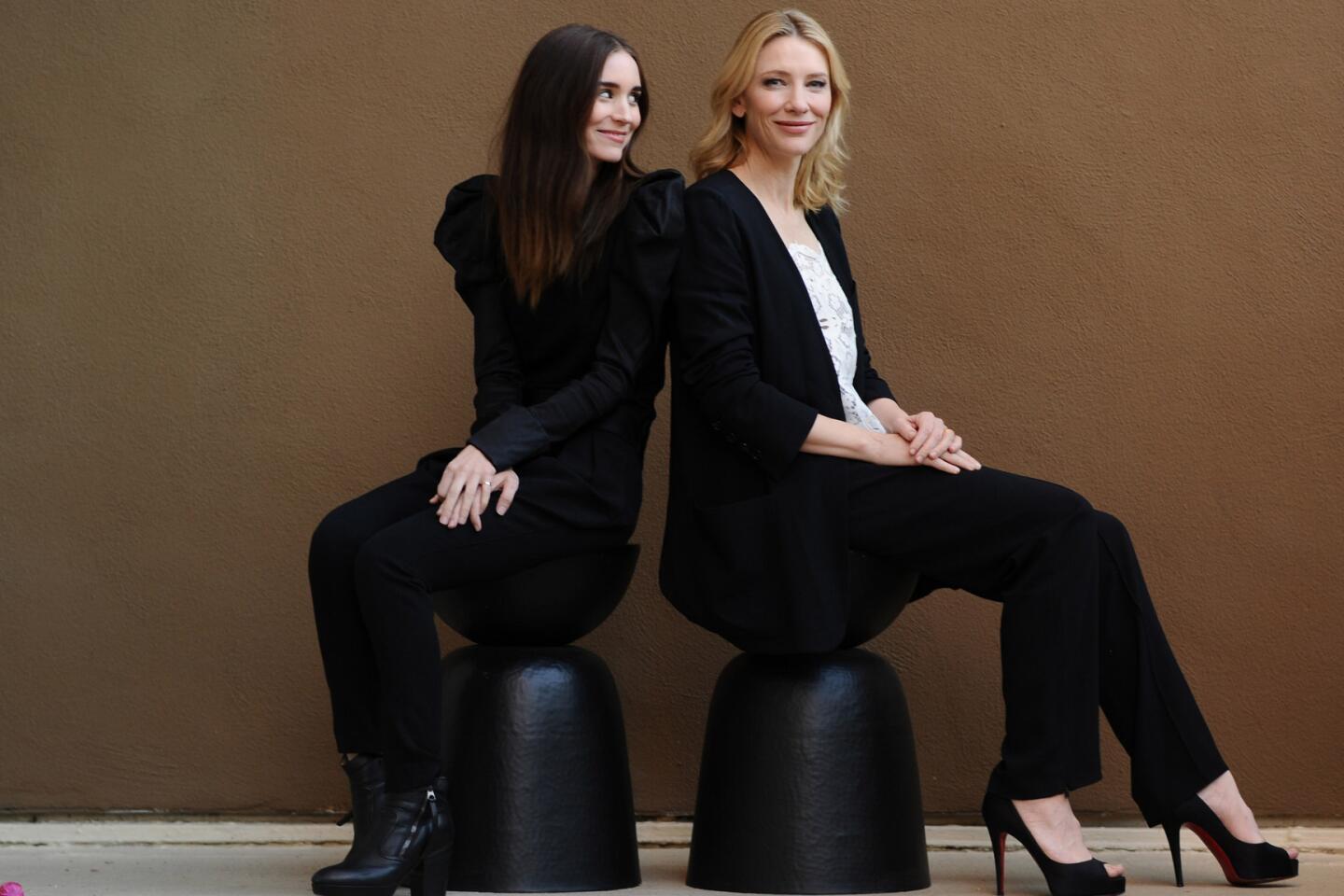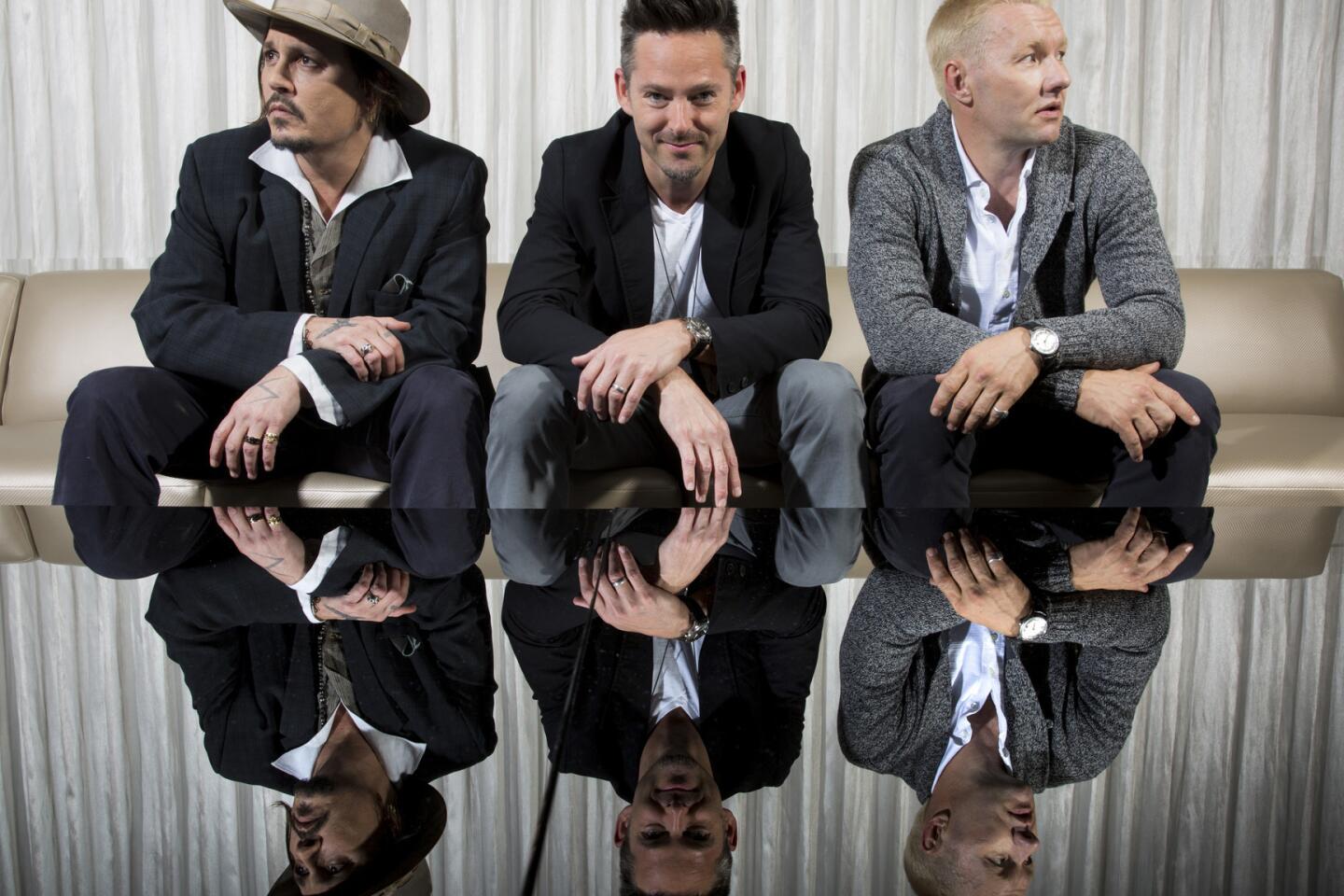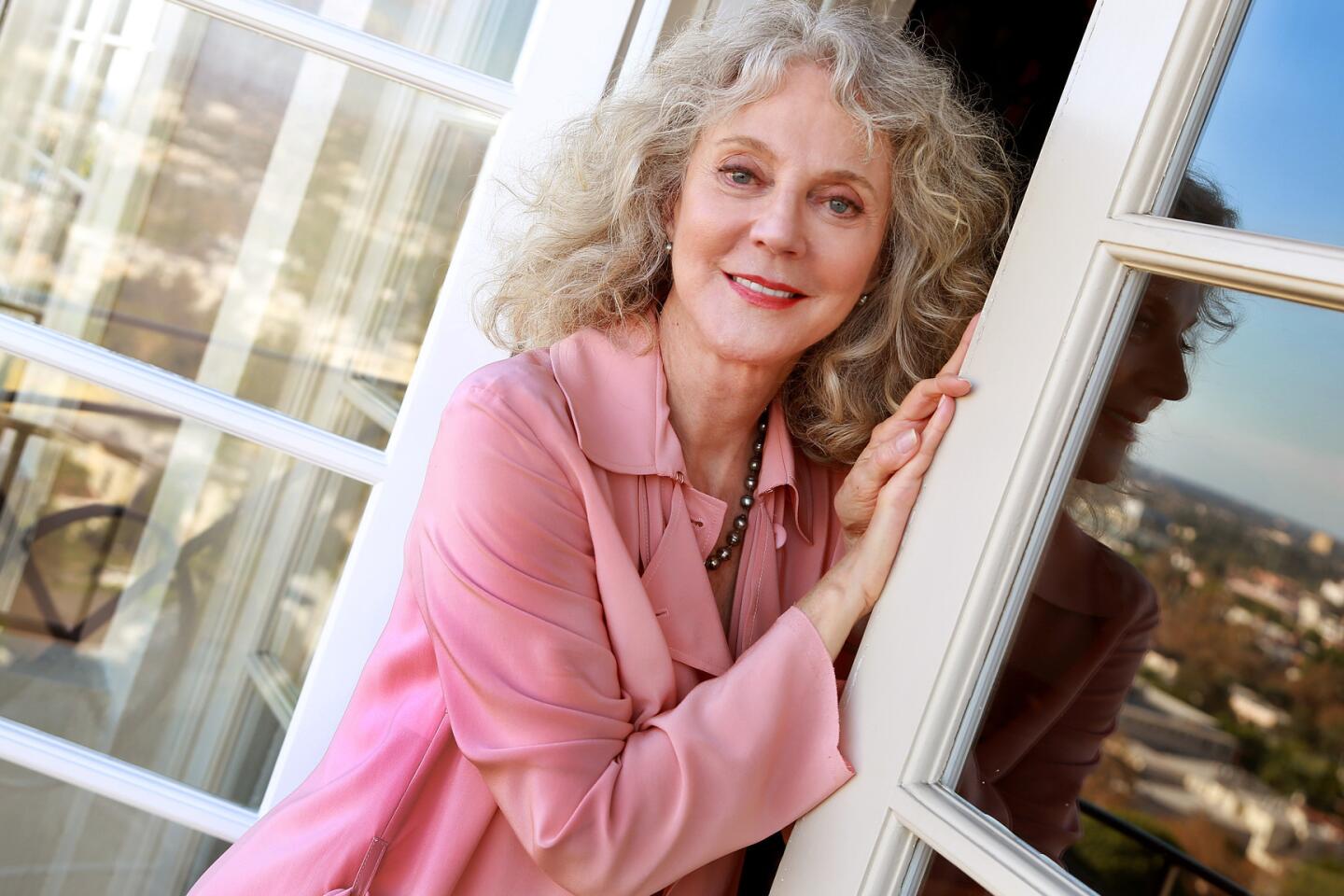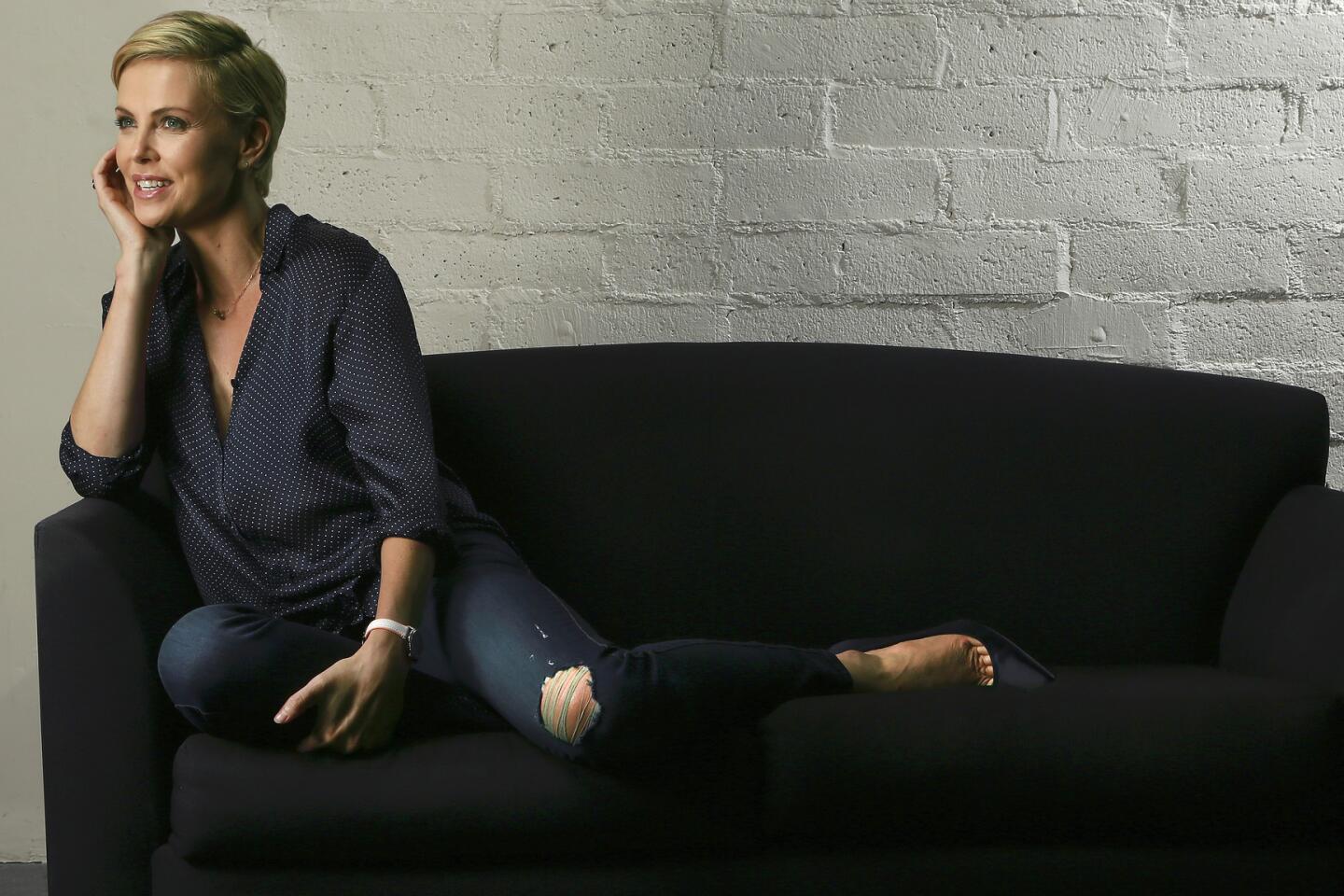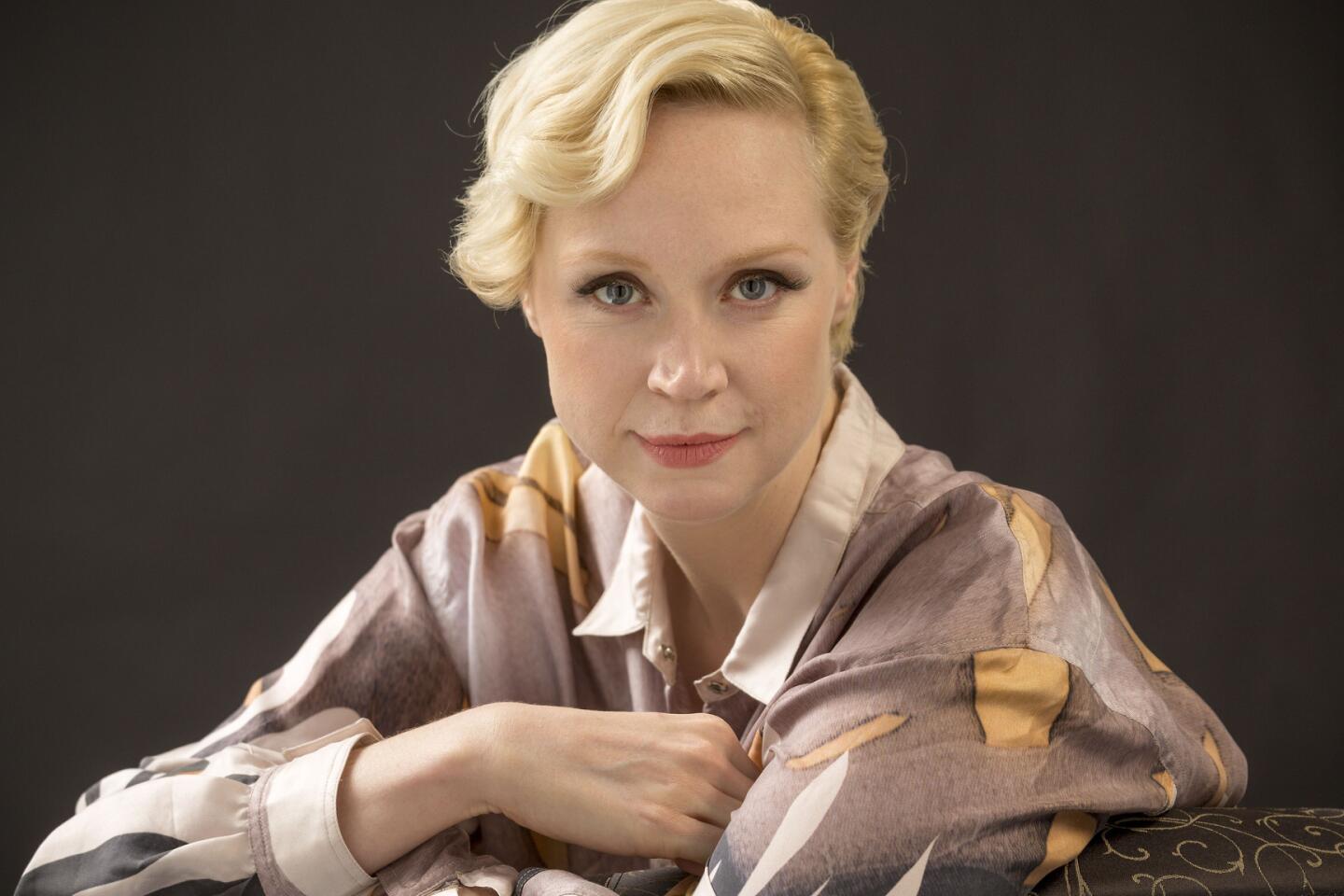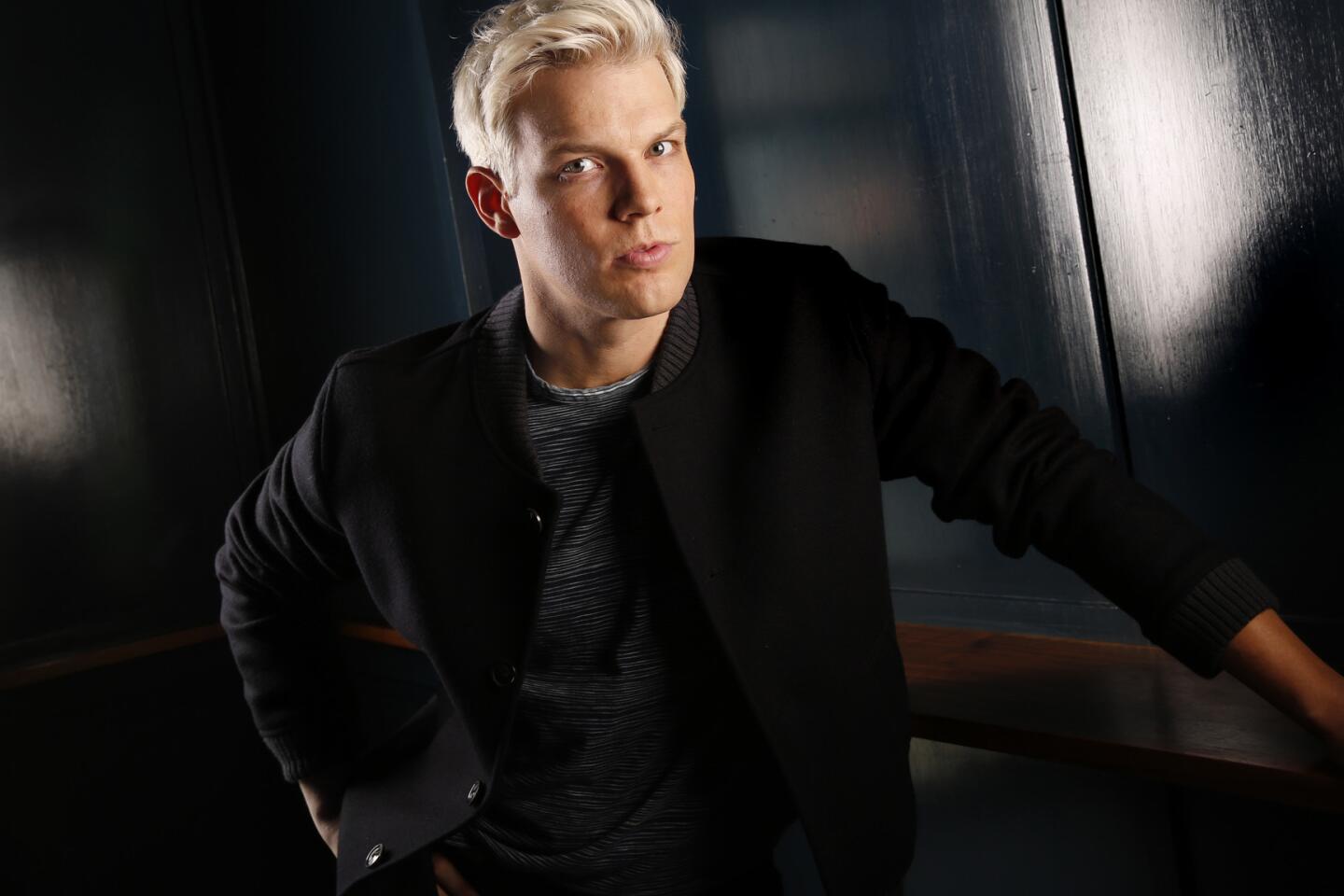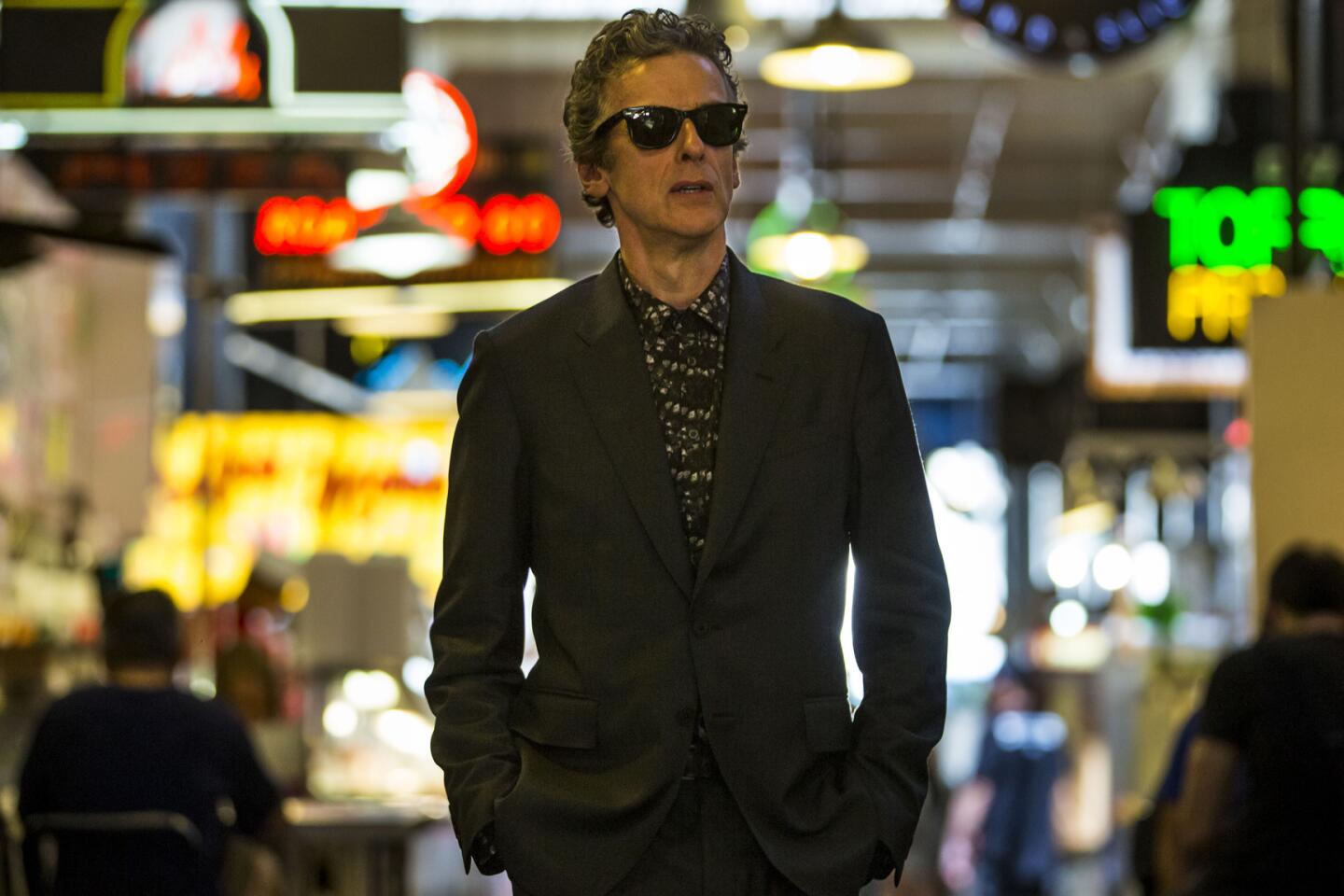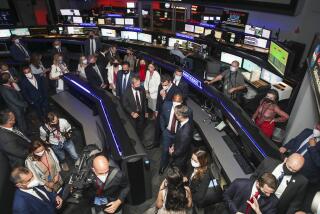Maybe it’s because he knows a thing or two about the space-time continuum that the rest of us civilians don’t, but it sometimes seems as if Neil deGrasse Tyson is everywhere at once.
A trained astrophysicist and the director of the Hayden Planetarium in New York, Tyson has also become an ubiquitous media presence in recent years -- a pop culture ambassador for the sciences who has amassed a huge following on social media, hosted last year’s “Cosmos” reboot on Fox and now has his own talk show, “StarTalk,” which returns to National Geographic for a second season Sunday night. (You can stream the episode, featuring former President Bill Clinton, now.)
SIGN UP for the free Indie Focus movies newsletter >>
Tyson recently spoke with the Los Angeles Times about his desire to get back into the lab, his method for “laying bare the geek underbelly” in celebrities and being parodied by “Key and Peele.”
Before “Cosmos” premiered last year, you said you were eager to get back to being a scientist. How is that working out for you?
Badly. I still have this fantasy that I wake up and the phone does not ring from any journalist and I can go to my lab and actually probe the mysteries of the universe. It hasn’t happened recently. The flip side of that is what a remarkable fact that science in general, and I suppose astrophysics in particular, can garner the attention of so many people. Not only because the gatekeepers in journalism like the subject, but so does Hollywood, with “The Martian” and “Gravity.” These are major, hundred-million dollar movies all based on content developed and discovered in my field. To the extent that I can serve that curiosity, I will.
Are there any highlights from the season of “StarTalk” ahead?
My conversation with Susan Sarandon took an interesting turn. She’s a fan of recreational drug use. She posed me the question -- which I didn’t really have an answer for but made for an interesting philosophical starting point -- “Is there a drug you could or would take, a mind-altering drug where the act of altering your mind makes you closer and more acutely aware of how the universe works than would otherwise be the case? Or does every drug that enters your mind alter it to a state that is completely detached from objective reality?”
If all mind-altering drugs put you further away from objective reality, then it would not be in the interest of a scientist to do science under the influence of drugs, whether or not you did it recreationally.
The conversation went there, I didn’t expect it to go there but that’s where it went. ... I like it when there’s someone where you think you know what you need to know about them and then they come on “Star Talk” and in the conversation, they lay bare their geek underbelly.
There seems to be a lot of them out there.
I think so. I think people have geek underbellies even if they don’t know they have a geek underbelly.
You just have to find it.
It turns out to be easier than you might think because they realize they’re not on my show to be the scientist, because I’m the scientist. Really they just have to be themselves and we wrap science around their livelihood, and they end up learning something, we end up learning about what it is to be that successful in that livelihood and everybody walks away just a little more enlightened than when they walked in.
You recently interviewed Edward Snowden. How did that come about? You seemed excited to speak with him.
Why wouldn’t anyone be? We learned he was a fan of my work and watched “Cosmos.” So that always makes a good starting point because that means they have a comfort level I don’t have to earn. They know I’m not there to stump ‘em, this is not some kind of investigative, journalistic interview. We’re here to get our geek on. In my conversation with him, yes, we talked about the Bill of Rights and security and the right to privacy, the usual things you’d expect, but quickly we got on the topic of can an alien embed signals within the radio waves that permeate the universe and hide them in the cosmic radio waves so that you can send a signal that no one would know about. We talked about cosmic encryption. That’s him getting on his geek underbelly.
1/199
Celebrity portraits by The Times | Daniel Wu (Genaro Molina / Los Angeles Times)
2/199
Celebrity portraits by The Times | Dakota Fanning
(Kirk McKoy / Los Angeles Times) 3/199
Chadwick Boseman (Jay L. Clendenin / Los Angeles Times)
4/199
Celebrity portraits by The Times | Terry Notary
(Myung J. Chun / Los Angeles Times) 5/199
Celebrity portraits by The Times | Sarah Jessica Parker
(Carolyn Cole / Los Angeles Times) 6/199
Celebrity portraits by The Times | Christopher Plummer
(Genaro Molina / Los Angeles Times) 7/199
Celebrity portraits by The Times | Sam Heughan
(Kirk McKoy / Los Angeles Times) 8/199
Celebrity portraits by The Times | Ava DuVernay and Storm Reid
(Jay L. Clendenin / Los Angeles Times) 9/199
Celebrity portraits by The Times | Wes Studi
(Myung J. Chun / Los Angeles Times) 10/199
Celebrity portraits by The Times | Taylor Kitsch
(Ricardo DeAratanha / Los Angeles Times) 11/199
Celebrity portraits by The Times | Clare-Hope Ashitey and Regina King
(Jay L. Clendenin / Los Angeles Times) 12/199
Celebrity portraits by The Times | Freddie Highmore (Kirk McKoy / Los Angeles Times)
13/199
Celebrity portraits by The Times | Nick Robinson
(Kirk McKoy / Los Angeles Times) 14/199
Celebrity portraits by The Times | Daniela Vega
(Jay L. Clendenin / Los Angeles Times) 15/199
Celebrity portraits by The Times | Laura Linney and Jason Bateman
(Jay L. Clendenin / Los Angeles Times) 16/199
Celebrity portraits by The Times | Heather Graham
(Christina House / Los Angeles Times) 17/199
Celebrity portraits by The Times | Letitia Wright
(Christina House / Los Angeles Times) 18/199
Celebrity portraits by The Times | Michael Luwoye
(Irfan Khan / Los Angeles Times) 19/199
Celebrity portraits by The Times | Melanie Griffith
(Jay L. Clendenin / Los Angeles Times) 20/199
Celebrity portraits by The Times | Jessica Williams and Phoebe Robinson
(Kirk McKoy / Los Angeles Times) 21/199
Celebrity portraits by The Times | Camila Cabello
(Carolyn Cole / Los Angeles Times) 22/199
Celebrity portraits by The Times | Camila Cabello
(Jay L. Clendenin / Los Angeles Times) 23/199
Celebrity portraits by The Times | Chadwick Boseman
(Jay L. Clendenin / Los Angeles Times) 24/199
Celebrity portraits by The Times | Allison Janney and Margot Robbie
(Kirk McKoy / Los Angeles Times) 25/199
Celebrity portraits by The Times | Saffron Burrows
(Kirk McKoy / Los Angeles Times) 26/199
Celebrity portraits by The Times | Christopher Nolan
(Kirk McKoy / Los Angeles Times) 27/199
Celebrity portraits by The Times | Laurie Metcalf
(Jay L. Clendenin / Los Angeles Times) 28/199
Celebrity portraits by The Times | Paul Thomas Anderson
(Kirk McKoy / Los Angeles Times) 29/199
Celebrity portraits by The Times | Jessica Chastain
(Kirk McKoy / Los Angeles Times) 30/199
Celebrity portraits by The Times | Jordan Peele
(Kirk McKoy / Los Angeles Times) 31/199
Celebrity portraits by The Times | Guillermo del Toro, Sally Hawkins, and Doug Jones
(Kirk McKoy / Los Angeles Times) 32/199
Celebrity portraits by The Times | Gary Oldman
(Kirk McKoy / Los Angeles Times) 33/199
Celebrity portraits by The Times | Mary J. Blige
(Jay L. Clendenin / Los Angeles Times) 34/199
Celebrity portraits by The Times | Timothée Chalamet
(Kirk McKoy / Los Angeles Times) 35/199
Celebrity portraits by The Times | Jennifer Lawrence
(Kirk McKoy / Los Angeles Times) 36/199
Celebrity portraits by The Times | Agnes Varda
(Myung J. Chun / Los Angeles Times) 37/199
Celebrity portraits by The Times | Kumail Nanjiani and Emily Gordon
(Jay L. Clendenin / Los Angeles Times) 38/199
Celebrity portraits by The Times | Gina Rodriguez
(Myung J. Chun / Los Angeles Times) 39/199
Celebrity portraits by The Times | Greta Gerwig and Saoirse Ronan
(Christina House / Los Angeles Times) 40/199
Celebrity portraits by The Times | Ethan Hawke
(Carolyn Cole / Los Angeles Times) 41/199
Celebrity portraits by The Times | Matt Smith
(Christina House / Los Angeles Times) 42/199
Celebrity portraits by The Times | Rachel Brosnahan
(Carolyn Cole / Los Angeles Times) 43/199
Celebrity portraits by The Times | Daniel Kaluuya
(Carolyn Cole / Los Angeles Times) 44/199
Celebrity portraits by The Times | Alia Shawkat
(Katie Falkenberg / Los Angeles Times) 45/199
Celebrity portraits by The Times | Aubrey Plaza
(Marcus Yam / Los Angeles Times) 46/199
Celebrity portraits by The Times | Kumail Nanjiani
(Carolyn Cole / Los Angeles Times) 47/199
Celebrity portraits by The Times | Demián Bichir
(Robert Gauthier / Los Angeles Times) 48/199
Celebrity portraits by The Times | Saoirse Ronan
(Kirk McKoy / Los Angeles Times) 49/199
Celebrity portraits by The Times | Sarah Gadon
(Jay L. Clendenin / Los Angeles Times) 50/199
Celebrity portraits by The Times | Bob Odenkirk
(Carolyn Cole / Los Angeles Times) 51/199
Celebrity portraits by The Times | Jane Fonda and Lily Tomlinn
(Gary Coronado / Los Angeles Times) 52/199
Celebrity portraits by The Times | Zac Efron and Zendaya
(Kirk McKoy / Los Angeles Times) 53/199
Celebrity portraits by The Times | Frankie Shaw
(Allen J. Schaben / Los Angeles Times) 54/199
Celebrity portraits by The Times | Dan Stevens
(Carolyn Cole / Los Angeles Times) 55/199
Celebrity portraits by The Times | Gemma Arterton
(Ricardo DeAratanha / Los Angeles Times) 56/199
Celebrity portraits by The Times | Kristen Stewart
(Jay L. Clendenin / Los Angeles Times) 57/199
Celebrity portraits by The Times | Tracee Ellis Ross
(Kirk McKoy / Los Angeles Times) 58/199
Celebrity portraits by The Times | Orlando Jones
(Irfan Khan / Los Angeles Times) 59/199
Celebrity portraits by The Times | Ringo Starr
(Robert Gauthier / Los Angeles Times) 60/199
Celebrity portraits by The Times | Sofia Boutella
(Gary Coronado / Los Angeles Times) 61/199
Celebrity portraits by The Times | Luenell Campbell
(Kirk McKoy / Los Angeles Times) 62/199
Celebrity portraits by The Times | Samuel L. Jackson and Ryan Reynolds
(Christina House / For The Times) 63/199
Celebrity portraits by The Times | Sterling K. Brown
(Kirk McKoy / Los Angeles Times) 64/199
Celebrity portraits by The Times | Charo
(Genaro Molina / Los Angeles Times) 65/199
Celebrity portraits by The Times | Jay Baruchel
(Carolyn Cole / Los Angeles Times) 66/199
Celebrity portraits by The Times | SZA
(Marcus Yam / Los Angeles Times) 67/199
Celebrity portraits by The Times | Tom Petty
(Genaro Molina / Los Angeles Times) 68/199
Celebrity portraits by The Times | Angela Bassett and Lena Waithe
(Kirk McKoy / Los Angeles Times) 69/199
Celebrity portraits by The Times | Miles Teller
(Christina House / Los Angeles Times) 70/199
Celebrity portraits by The Times | Octavia Spencer
(Jay L. Clendenin / Los Angeles Times) 71/199
Celebrity portraits by The Times | John Lithgow and Salma Hayek
(Jay L. Clendenin / Los Angeles Times) 72/199
Celebrity portraits by The Times | Jeff Daniels
(Christina House / Los Angeles Times) 73/199
Celebrity portraits by The Times | Natalie Portman
(Liz O. Baylen / Los Angeles Times) 74/199
Celebrity portraits by The Times | Dwayne Johnson
(Jay L. Clendenin / Los Angeles Times) 75/199
Celebrity portraits by The Times | Ava DuVernay (Ricardo DeAratanha / Los Angeles Times)
76/199
Celebrity portraits by The Times | Martin Scorsese
(Kirk McKoy / Los Angeles Times) 77/199
Celebrity portraits by The Times | Isabelle Huppert
(Liz O. Baylen / Los Angeles Times) 78/199
Celebrity portraits by The Times | Michelle Dockery (Christina House / For The Times)
79/199
Celebrity portraits by The Times | Don Cheadle
(Genaro Molina / Los Angeles Times) 80/199
Celebrity portraits by The Times | Ben Foster, Jeff Bridges and Chris Pine
(Jay L. Clendenin / Los Angeles Times) 81/199
Celebrity portraits by The Times | Tom Hanks (Genaro Molina / Los Angeles Times)
82/199
Celebrity portraits by The Times | Colman Domingo
(Liz O. Baylen / Los Angeles Times) 83/199
Celebrity portraits by The Times | Gwen Stefani
(Robert Gauthier / Los Angeles Times) 84/199
Celebrity portraits by The Times | Mykelti Williamson
(Liz O. Baylen / Los Angeles Times) 85/199
Celebrity portraits by The Times | Tori Amos
(Marcus Yam / Los Angeles Times) 86/199
Celebrity portraits by The Times | Pedro Almodovar
(Jay L. Clendenin / Los Angeles Times) 87/199
Celebrity portraits by The Times | Ruth Negga
(Liz O. Baylen / Los Angeles Times) 88/199
Celebrity portraits by The Times | Nicole Kidman
(Jay L. Clendenin / Los Angeles Times) 89/199
Celebrity portraits by The Times | Leslie Jones and Kate McKinnon
(Brian van der Brug / Los Angeles Times) 90/199
Celebrity portraits by The Times | Lily Collins
(Jay L. Clendenin / Los Angeles Times) 91/199
Celebrity portraits by The Times | Barry Jenkins
(Ricardo DeAratanha / Los Angeles Times) 92/199
Celebrity portraits by The Times | Mahershala Ali
(Kirk McKoy / Los Angeles Times) 93/199
Celebrity portraits by The Times | Viggo Mortensen
(Rick Loomis / Los Angeles Times) 94/199
Celebrity portraits by The Times | The Weeknd
(Marcus Yam / Los Angeles Times) 95/199
Celebrity portraits by The Times | Annette Bening
(Jay L. Clendenin / Los Angeles Times) 96/199
Celebrity portraits by The Times | Riz Ahmed
(Glenn Koenig / Los Angeles Times) 97/199
Celebrity portraits by The Times | Ryan Gosling and Emma Stone
(Kirk McKoy / Los Angeles Times) 98/199
Celebrity portraits by The Times | Chris Messina
(Carolyn Cole / Los Angeles Times) 99/199
Celebrity portraits by The Times | “Weird” Al Yankovic
(Jay L. Clendenin / Los Angeles Times) 100/199
Celebrity portraits by The Times | Noël Wells
(Christina House / For The Times) 101/199
Celebrity portraits by The Times | Dennis Haysbert
(Rick Loomis / Los Angeles Times) 102/199
Celebrity portraits by The Times | Bethany Cosentino and Liz Phair
(Jay L. Clendenin / Los Angeles Times) 103/199
Celebrity portraits by The Times | Aaron Paul
(Kirk McKoy / Los Angeles Times) 104/199
Celebrity portraits by The Times | Dax Shepard
(Jay L. Clendenin / Los Angeles Times) 105/199
Celebrity portraits by The Times | Caitriona Balfe and Sam Heughan
(Kirk McKoy / Los Angeles Times) 106/199
Celebrity portraits by The Times | Tegan and Sara
(Jay L. Clendenin / Los Angeles Times) 107/199
Celebrity portraits by The Times | Jurnee Smollett-Bell
(Kirk McKoy / Los Angeles Times) 108/199
Celebrity portraits by The Times | Tracee Ellis Ross
(Kirk McKoy / Los Angeles Times) 109/199
Celebrity portraits by The Times | Clint Eastwood and Alison Eastwood
(Kirk McKoy / Los Angeles Times) 110/199
Celebrity portraits by The Times | Aya Cash
(Kirk McKoy / Los Angeles Times) 111/199
Celebrity portraits by The Times | Niecy Nash
(Kirk McKoy / Los Angeles Times) 112/199
Celebrity portraits by The Times | Linda Cardellini
(Kirk McKoy / Los Angeles Times) 113/199
Celebrity portraits by The Times | Norman Lear and Ben Lear
(Jay L. Clendenin / Los Angeles Times) 114/199
Celebrity portraits by The Times | Will Forte
(Kirk McKoy / Los Angeles Times) 115/199
Celebrity portraits by The Times | Richard Dreyfuss
(Kirk McKoy / Los Angeles Times) 116/199
Celebrity portraits by The Times | Richard Dreyfuss
(Kirk McKoy / Los Angeles Times) 117/199
Celebrity portraits by The Times | Megan Fox
(Genaro Molina / Los Angeles Times) 118/199
Celebrity portraits by The Times | Don Cheadle
(Kirk McKoy / Los Angeles Times) 119/199
Celebrity portraits by The Times | Chloe Sevigny
(Carolyn Cole / Los Angeles Times) 120/199
Celebrity portraits by The Times | Ray Liotta
(Kirk McKoy / Los Angeles Times) 121/199
Celebrity portraits by The Times | Kristen Schaal
(Kirk McKoy / Los Angeles Times) 122/199
Celebrity portraits by The Times | Jay Duplass
(Kirk McKoy / Los Angeles Times) 123/199
Celebrity portraits by The Times | Moby
(Kirk McKoy / Los Angeles Times) 124/199
Celebrity portraits by The Times | Krysten Ritter
(Kirk McKoy / Los Angeles Times) 125/199
Celebrity portraits by The Times | Jay Roach, Bryan Cranston, Robert Schenkkan and Anthony Mackie
(Genaro Molina / Los Angeles Times) 126/199
Celebrity portraits by The Times | Jerrod Carmichael
(Kirk McKoy / Los Angeles Times) 127/199
Celebrity portraits by The Times | Anna Faris and Allison Janney
(Kirk McKoy / Los Angeles Times) 128/199
Celebrity portraits by The Times | Katie Couric
(Genaro Molina / Los Angeles Times) 129/199
Celebrity portraits by The Times | Lil Buck
(Mark Boster / Los Angeles Times) 130/199
Celebrity portraits by The Times | Judith Light
(Kirk McKoy / Los Angeles Times) 131/199
Celebrity portraits by The Times | Kerry Washington
(Carolyn Cole / Los Angeles Times) 132/199
Celebrity portraits by The Times | Patrick Wilson
(Katie Falkenberg / Los Angeles Times) 133/199
Celebrity portraits by The Times | Zach Galifianakis
(Marcus Yam / Los Angeles Times) 134/199
Celebrity portraits by The Times | Keegan-Michael Key, Peter Atencio and Jordan Peele
(Marcus Yam / Los Angeles Times) 135/199
Celebrity portraits by The Times | Megan Mullally
(Kirk McKoy / Los Angeles Times) 136/199
Celebrity portraits by The Times | Tilda Swinton and Ralph Fiennes (Carolyn Cole / Los Angeles Times)
137/199
Celebrity portraits by The Times | Andrew Ranells
(Allen J. Schaben / Los Angeles Times) 138/199
Celebrity portraits by The Times | Matt Walsh, Julia Louis- Dreyfus and Tony Hale
(Mel Melcon / Los Angeles Times) 139/199
Celebrity portraits by The Times | Tom Hiddleston
(Marcus Yam / Los Angeles Times) 140/199
Celebrity portraits by The Times | Sterling K. Brown
(Kirk McKoy / Los Angeles Times) 141/199
Celebrity portraits by The Times | Rami Maleck
(Carolyn Cole / Los Angeles Times) 142/199
Celebrity portraits by The Times | Anton Yelchin, Patrick Stewart and Jeremy Saulnier
(Brian van der Brug / Los Angeles Times) 143/199
Celebrity portraits by The Times | Emilia Clarke
(Christina House / For The Times) 144/199
Celebrity portraits by The Times | Jorma Taccone, Akiva Schaffer and Andy Samberg
(Genaro Molina / Los Angeles Times) 145/199
Celebrity portraits by The Times | Julia Roberts and Garry Marshall
(Mel Melcon / Los Angeles Times) 146/199
Celebrity portraits by The Times | Ice Cube
(Carolyn Cole / Los Angeles Times) 147/199
Celebrity portraits by The Times | Tituss Burgess
(Carolyn Cole / Los Angeles Times) 148/199
Celebrity portraits by The Times | Sam Heughan, Catriona Blafe and Tobias Menzies
(Kirk McKoy / Los Angeles Times) 149/199
Celebrity portraits by The Times | Claire Danes
(Carolyn Cole / Los Angeles Times) 150/199
Celebrity portraits by The Times | Bella Heathcote, Christina Hendricks, Jena Malone, director Nicolas Winding Refn, and Elle Fanning
(Christina House / For The Times) 151/199
Celebrity portraits by The Times | Constance Zimmer
(Kirk McKoy / Los Angeles Times) 152/199
Celebrity portraits by The Times | Norman Reedus
(Kirk McKoy / Los Angeles Times) 153/199
Celebrity portraits by The Times | Christian Bale
(Jay L. Clendenin / Los Angeles Times) 154/199
Celebrity portraits by The Times | Sylvester Stallone
(Kirk McKoy / Los Angeles Times) 155/199
Celebrity portraits by The Times | Bryan Cranston
(Ricardo DeAratanha / Los Angeles Times) 156/199
Celebrity portraits by The Times | Cate Blanchett and Rooney Mara
(Jay L. Clendenin / Los Angeles Times) 157/199
Celebrity portraits by The Times | Craig Ferguson
(Katie Falkenberg / Los Angeles Times) 158/199
Celebrity portraits by The Times | Tim Roth
(Ricardo DeAratanha / Los Angeles Times) 159/199
Celebrity portraits by The Times | Angela Bassett
(Kirk McKoy / Los Angeles Times) 160/199
Celebrity portraits by The Times | The Weeknd
(Marcus Yam / Los Angeles Times) 161/199
Celebrity portraits by The Times | Carol Burnett
(Kirk McKoy / Los Angeles Times) 162/199
Celebrity portraits by The Times | Melanie Lynskey
(Ricardo DeAratanha / Los Angeles Times) 163/199
Celebrity portraits by The Times | Adam McKay and Steve Carell
(Ricardo DeAratanha / Los Angeles Times) 164/199
Celebrity portraits by The Times | John Cusack
(Ricardo DeAratanha / Los Angeles Times) 165/199
Celebrity portraits by The Times | Conan O’Brien and James Corden
(Jay L. Clendenin / Los Angeles Times) 166/199
Celebrity portraits by The Times | Spike Lee
(Ricardo DeAratanha / Los Angeles Times) 167/199
s Celebrity portraits by The Times | Eva Longoria
(Jay L. Clendenin / Los Angeles Times) 168/199
Celebrity portraits by The Times | Carrie Brownstein
(Ricardo DeAratanha / Los Angeles Times) 169/199
Celebrity portraits by The Times | Walton Goggins
(Ricardo DeAratanha / Los Angeles Times) 170/199
Celebrity portraits by The Times | Helen Mirren
(Kirk McKoy / Los Angeles Times) 171/199
Celebrity portraits by The Times | Keegan Michael Key
(Ricardo DeAratanha / Los Angeles Times) 172/199
Celebrity portraits by The Times | Kurt Russell
(Ricardo DeAratanha / Los Angeles Times) 173/199
Celebrity portraits by The Times | Danny Boyle, Tom McCarthy, Quentin Tarantino, Ridley Scott, Tom Hooper and Todd Haynes
(Kirk McKoy / Los Angeles Times) 174/199
Celebrity portraits by The Times | Elizabeth Banks
(Ricardo DeAratanha / Los Angeles Times) 175/199
Celebrity portraits by The Times | Sam Smith
(Ricardo DeAratanha / Los Angeles Times) 176/199
Celebrity portraits by The Times | Jonathan Banks
(Ricardo DeAratanha / Los Angeles Times) 177/199
Celebrity portraits by The Times | Carey Mulligan
(Al Seib / Los Angeles Times) 178/199
Celebrity portraits by The Times | Tom Hardy
(Jay L. Clendenin / Los Angeles Times) 179/199
Celebrity portraits by The Times | Charlotte Rampling and Saoirse Ronan (l to r seated) Lily Tomlin, Cate Blanchett, Helen Mirren and Brie Larsen
(Kirk McKoy / Los Angeles Times) 180/199
Celebrity portraits by The Times | Jamie Lee Curtis
(Genaro Molina / Los Angeles Times) 181/199
Celebrity portraits by The Times | Julianne Nicholson
(Jay L. Clendenin / Los Angeles Times) 182/199
Celebrity portraits by The Times | Tim Roth
(Ricardo DeAratanha / Los Angeles Times) 183/199
Celebrity portraits by The Times | Patrick Stewart
(Liz O. Baylen / Los Angeles Times) 184/199
Celebrity portraits by The Times | Johnny Depp
(Jay L. Clendenin / Los Angeles Times) 185/199
Celebrity portraits by The Times | Anthony Mackie, Seth Rogen and Joseph Gordon-Levitt
(Christina House / For The Times) 186/199
Celebrity portraits by The Times | Alicia Vikander
(Kirk McKoy / Los Angeles Times) 187/199
Celebrity portraits by The Times | Sylvester Stallone
(Kirk McKoy / Los Angeles Times) 188/199
Celebrity portraits by The Times | Rooney Mara and Cate Blanchett
(Wally Skalij / Los Angeles Times) 189/199
Celebrity portraits by The Times | Ian McKellen
(Don Bartletti / Los Angeles Times) 190/199
Celebrity portraits by The Times | Johnny Depp, Scott Cooper and Joel Edgerton
(Jay L. Clendenin / Los Angeles Times) 191/199
Celebrity portraits by The Times | Blythe Danner
(Kirk McKoy / Los Angeles Times) 192/199
Celebrity portraits by The Times | Ruth Wilson
(Carolyn Cole / Los Angeles Times) 193/199
Celebrity portraits by The Times | Charlize Theron
(Kirk McKoy / Los Angeles Times) 194/199
Celebrity portraits by The Times | Gwendoline Christie
(Ricardo DeAratanha / Los Angeles Times) 195/199
Celebrity portraits by The Times | Jake Lacy
(Carolyn Cole / Los Angeles Times) 196/199
Celebrity portraits by The Times | Michael Shannon
(Robert Gauthier / Los Angeles Times) 197/199
Celebrity portraits by The Times | Joanna Newsom
(Jay L. Clendenin / Los Angeles Times) 198/199
Celebrity portraits by The Times | Tori Kelly
(Liz O. Baylen / Los Angeles Times) 199/199
Celebrity portraits by The Times | Peter Capaldi
(Kent Nishimura / Los Angeles Times) So you related to him as a fellow nerd and not necessarily as a hero or villain?
I was agnostic going on. I generally try to avoid having an opinion about someone that was shaped by journalists or anybody else’s account. Yes, there’s the duality, hero or traitor. I don’t use the word “hero” very often, I’m not going to use it in this case, but certainly “traitor” has been invoked for him.
What I would say is, after discussing his motives and what he did and why he did it, I can tell you without hesitation he is the most patriotic person I have ever met. He understands the Constitution better than most of the people who are criticizing him. He’s all for secrets, if you obtain them from people whom you have reason to expect could be against the security of the nation. That’s not what was happening. The NSA was collecting secrets on everybody and at that point he cried foul. He said, this is a violation of this amendment and I will not stand by this. This is not what the founding fathers had in mind, this is what the founding fathers tried to protect against.
You’ve been outspoken about funding for scientific research and the space program. Are you hoping this becomes a campaign issue?
A subtle point of detail: Even though it may look like I’m advocating things, I’m really not. What I do is, I offer if-then statements. If people are concerned about the economic future of our country, and provided you recognize that innovations in [science, technology, engineering and math] fields are the engines of our tomorrow’s economy, then we should look to see what forces stimulate people’s interest in STEM most potently. And I can say without hesitation that the greatest force of nature unto itself is when a nation undergoes a major investment in space exploration...
We’ve been looking up ever since we’ve been homo sapiens. The sky is where we’ve always put our gods. There is a certain potency to looking at the sky. When the person comes back, we build statues to the person. We throw ticker tape parades. These are human emissaries of our species.
So, I’m not telling people to spend more on this, I’m saying if you want a future that assures our economic strength as well as our health and our security, here is a force of nature that is the most potent I know of to make that happen. If you have another idea, fine. If you have no ideas, get out of the way.
Would you be up for another season of “Cosmos”?
I suppose so if it can fit into my schedule in a pleasant way, in a non-completely-disruptive way as it did the first time. But I don’t have to if some whipper-snapper comes up who’s got a good turn of phrase and a fun voice, let them do it. I don’t need to do it. But if I’m asked and I can. We should know very soon, like in weeks.
What did you think of the “Key and Peele” sketch about you?
I didn’t know it was coming, but I knew about it very quickly after it aired. People asked if I liked it or didn’t like it. I don’t invest emotions in the creativity of artists. I just sort of celebrate the fact that it exists at all, that artists have selected science to be their muse, so that’s what I celebrate. But I thought it was hilarious. What they didn’t know is my wife actually has a PhD in mathematical physics, so she’s less accommodating of my “Cosmos”-ian answers.
Twitter: @MeredithBlake
